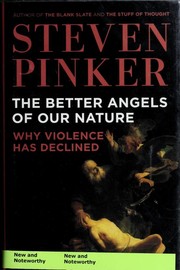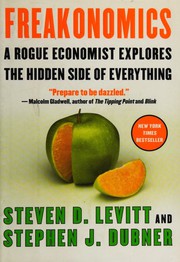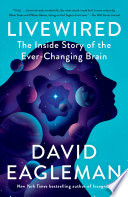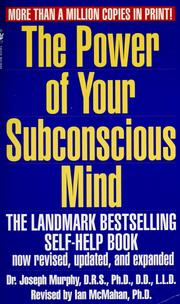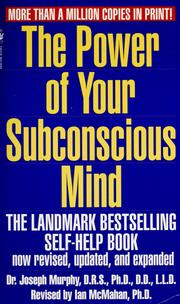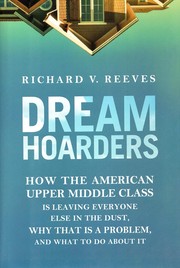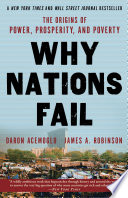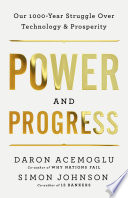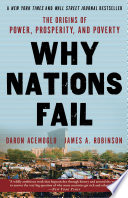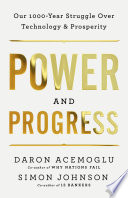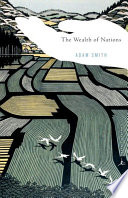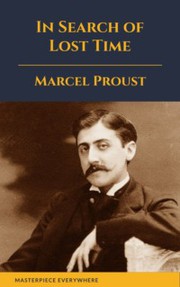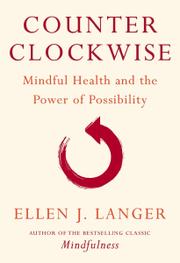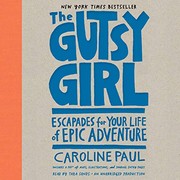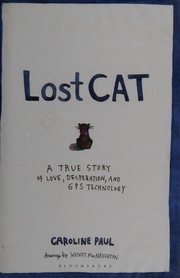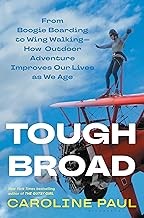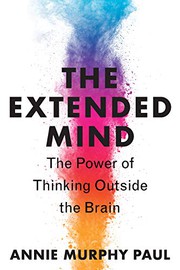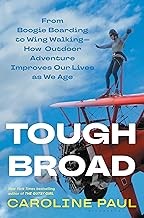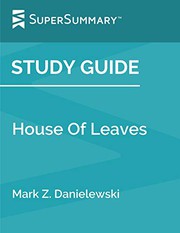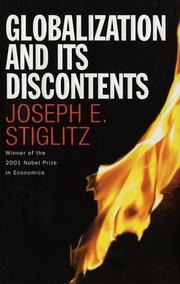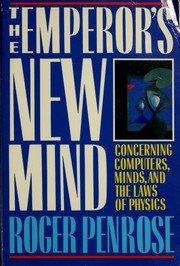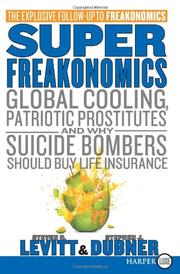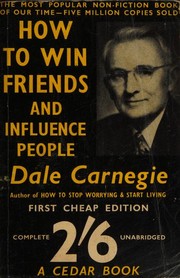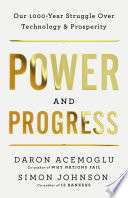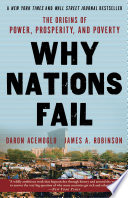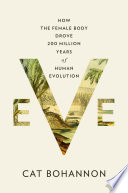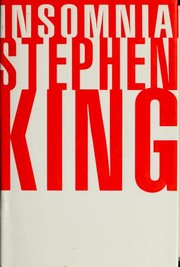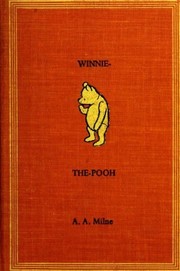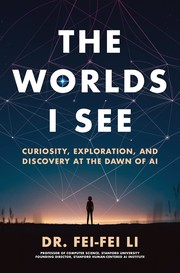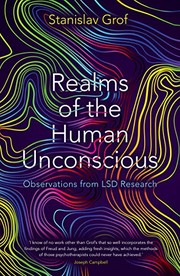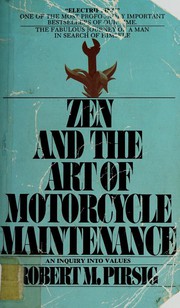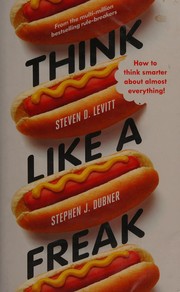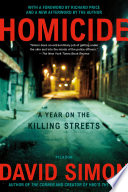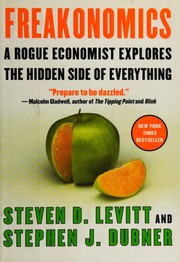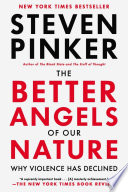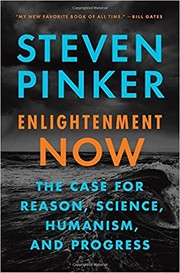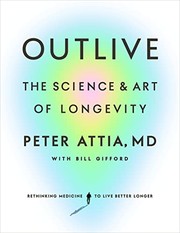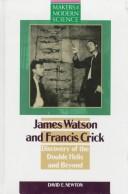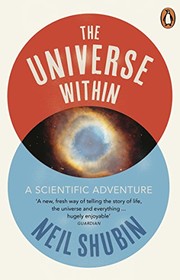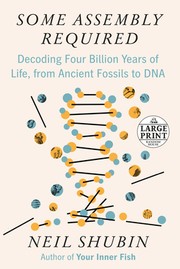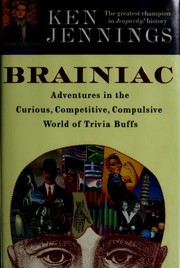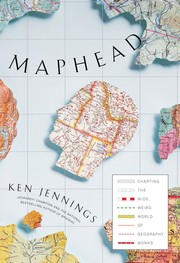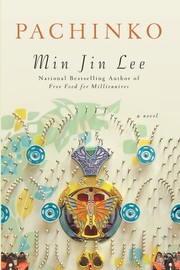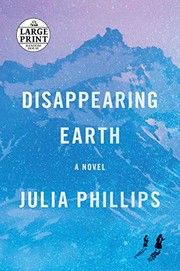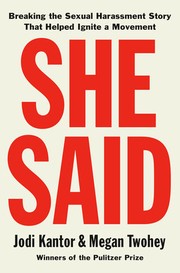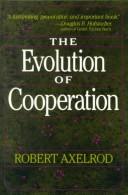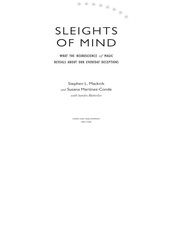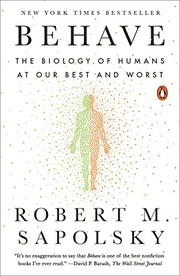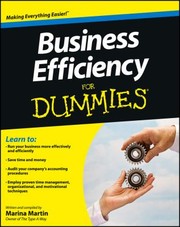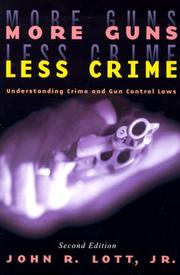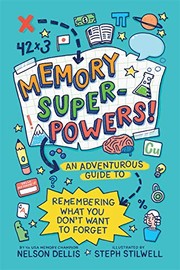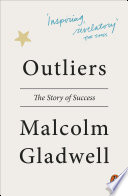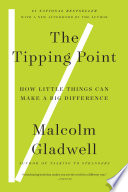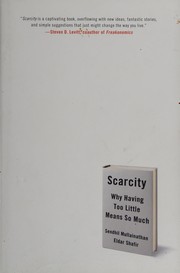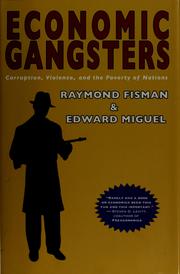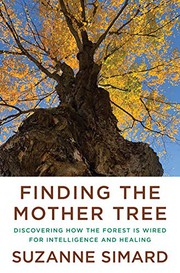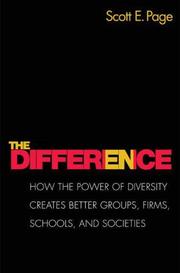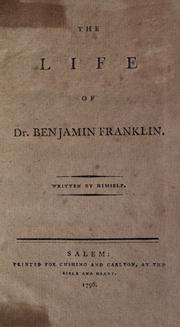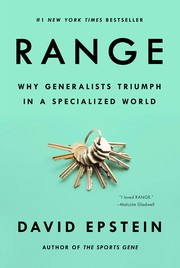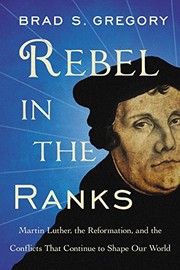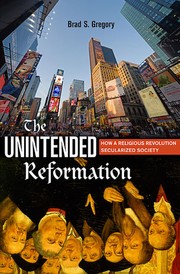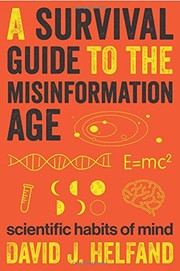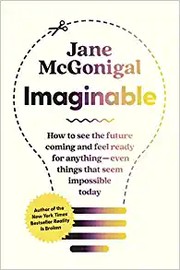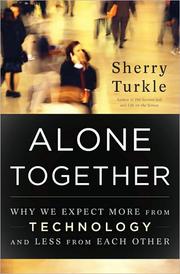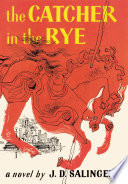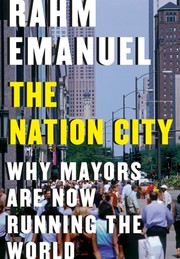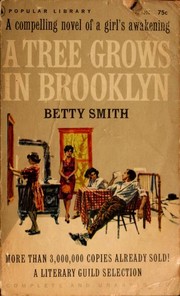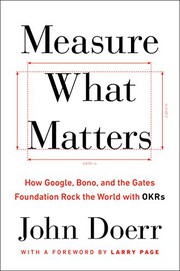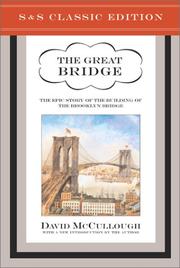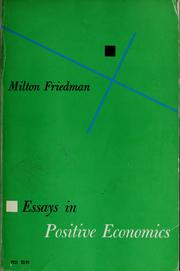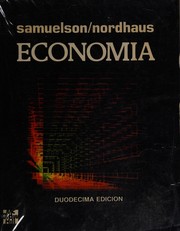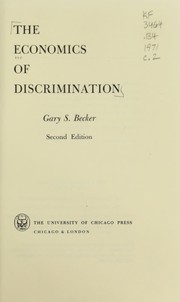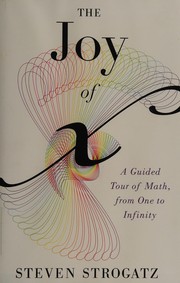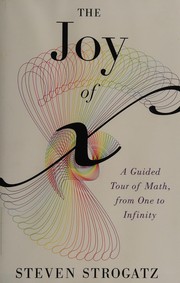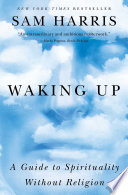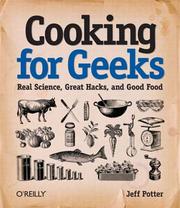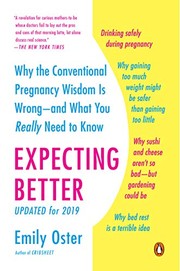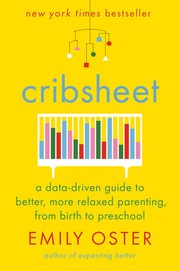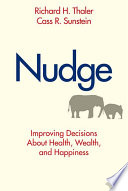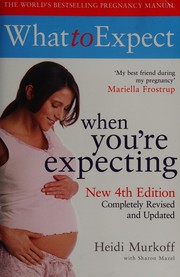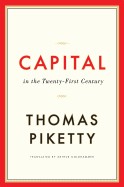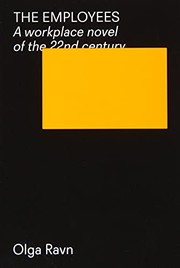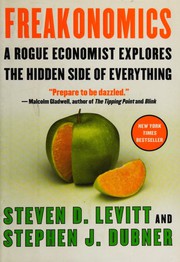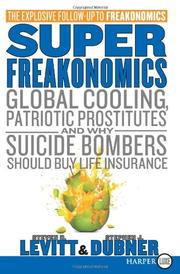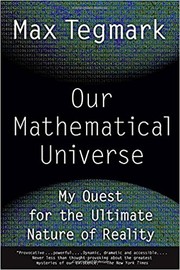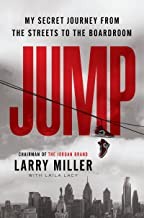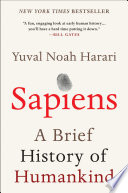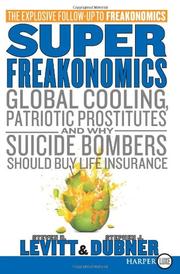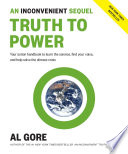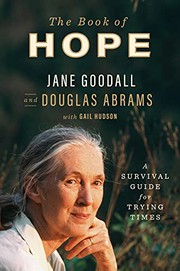Podcast: People I (Mostly) Admire
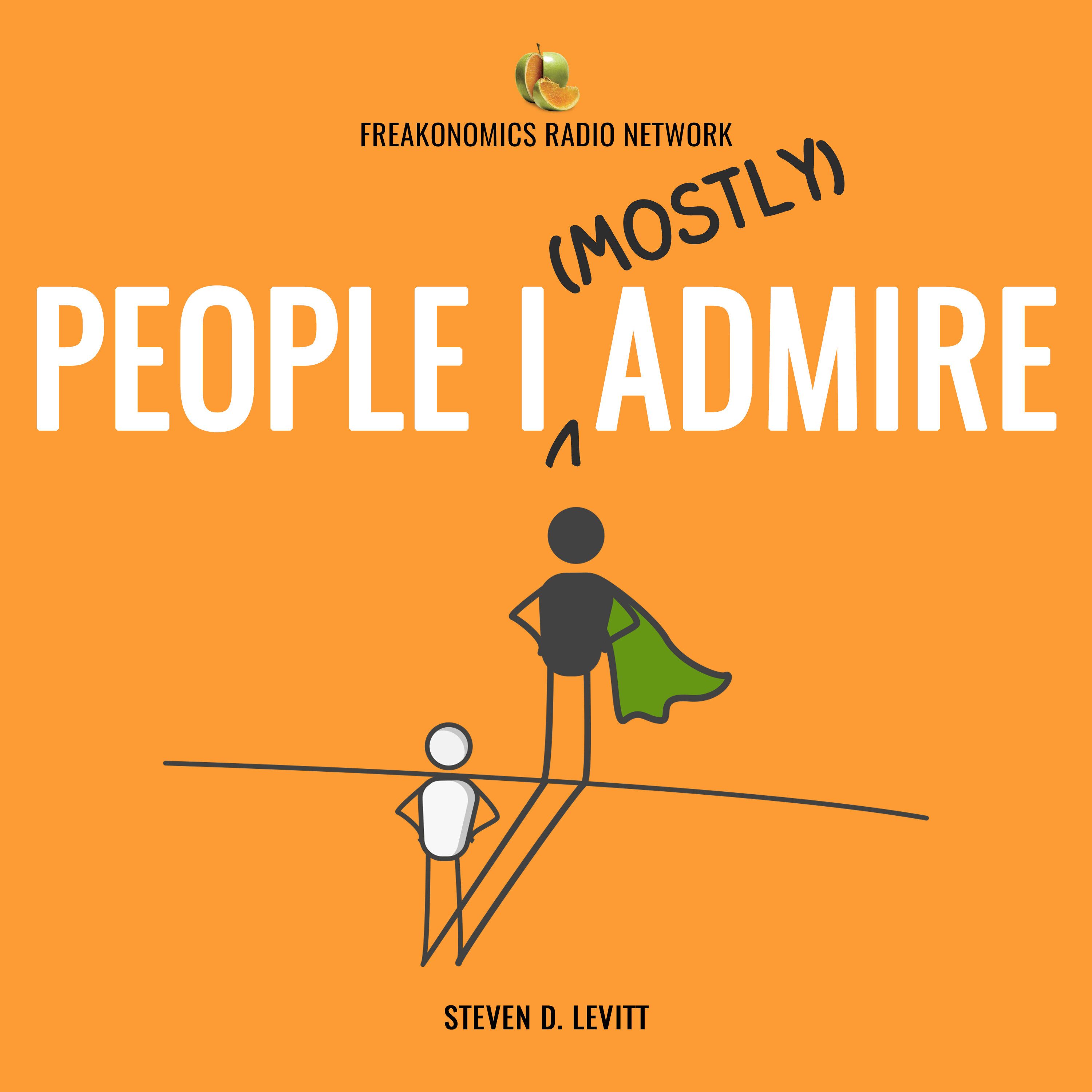
Freakonomics co-author Steve Levitt tracks down other high achievers for surprising, revealing conversations about their lives and obsessions. Join Levitt as he goes through the most interesting midlife crisis you’ve ever heard — and learn how a renegade sheriff is transforming Chicago's jail, how a biologist is finding the secrets of evolution in the Arctic tundra, and how a trivia champion memorized 160,000 flashcards. To get every show in our network without ads and a monthly bonus episode of Freakonomics Radio, sign up for SiriusXM Podcasts+ on Apple Podcasts at http://apple.co/SiriusXM.
178 episodes processed, 171 books extracted
Podcast Playlist: View on YouTube
Books Mentioned Most Often
The Fault in Our Stars
Buy The Fault in Our Stars by John Green on Amazon
Mentioned 27 times
Green built his reputation writing blockbuster young adult novels like The Fault in Our Stars and creating extremely popular YouTube channels, including Crash Course.
The host mentions John Green's reputation built on novels, specifically naming this one.
He's the author of The Fault in Our Stars, which began as a novel for young adults and ended up a cultural phenomenon.
In this segment, Steve Levitt introduces John Green and highlights him as the author of 'The Fault in Our Stars', a novel that started out for young adults but grew into a cultural phenomenon.
So you said it wasn't your dream to write bestsellers, but then you made the mistake of writing The Fault in Our Stars, which turned out to be one of the biggest books of all time.
In this segment, Steve Levitt discusses John Green's book 'The Fault in Our Stars', pointing out its remarkable success as one of the biggest bestsellers.
Hey, so I went back and reread The Fault in Our Stars last week; I had read it many years ago.
In this segment, Steve Levitt shares that he recently revisited 'The Fault in Our Stars,' a book he first read many years ago.
You've been cranking out books every year, every other year, and then after The Fault in Our Stars, there was a five-year gap before your next book, Turtles All the Way Down.
In this segment, host Steve Levitt discusses John Green's writing schedule, noting that after the release of 'The Fault in Our Stars', there was a significant gap before his next publication, 'Turtles All the Way Down'.
So one of the storylines in The Fault in Our Stars is this author who hates his readers. Did you feel a lot of pressure not to be that author?
In this segment, the host, Steve Levitt, brings up a storyline from 'The Fault in Our Stars' that features an author who harbors disdain for his readers. He then inquires if John Green felt any pressure to avoid becoming similar to that type of author.
But by the time I wrote The Fault in Our Stars, I was conscious of the fact that I was going to be read into that novel because I'd been friends with a young person who died of cancer, because I'd worked closely as a chaplain with young people who were dying.
In this segment, John Green reflects on how he was mindful of the perceptions surrounding his book 'The Fault in Our Stars', particularly in light of his personal relationships with young individuals facing terminal illnesses.
I thought that would be sort of a funny joke; I mean, I imagined that The Fault in Our Stars was going to be my least successful novel commercially, and so I imagined that as kind of a joke for the people who were really familiar with me who would get a lot of the sort of subtle references between Van Houten and myself.
In this segment, John Green humorously reflects on how he initially imagined 'The Fault in Our Stars' would be his least successful novel. He thought it would serve as an inside joke for those who were familiar with him, highlighting the subtle references shared between him and the character Van Houten.
I didn't, of course, imagine that I was going to be inundated with this level of fan mail and this amount of, you know, people asking me what happens after the end of the book, which is what the main character in The Fault in Our Stars wants to know from the author.
In this segment, John Green discusses the unexpected influx of fan mail he received after the release of his book 'The Fault in Our Stars', emphasizing the audience's curiosity about the fate of its main character.
And so there was this strange meta experience as a result of writing The Fault in Our Stars.
John Green discusses the unusual meta experience he encountered after writing 'The Fault in Our Stars'.
And there is this real meta experience where sometimes a sick kid will ask me what happens after the end of The Fault in Our Stars, and I'll have to say, like Peter Van Houten, I also don't know.
John Green mentions that children sometimes inquire about what happens after the conclusion of 'The Fault in Our Stars'. He relates his uncertainty in response to the question, echoing the character Peter Van Houten's own lack of answers in the story.
So, after I wrote The Fault in Our Stars, I spent over a year working on a desert island novel, a novel where six young people were stranded on a desert island.
John Green discusses his experience of spending over a year developing a new novel after the success of his famous book 'The Fault in Our Stars', hinting at his creativity and the challenges of writing.
Have you read The Fault in Our Stars?
The host inquires whether the guest has read 'The Fault in Our Stars,' a book that parallels the guest's own experiences with cancer, highlighting themes similar to those in the story.
It was during that time that I got my hands on a copy of The Fault in Our Stars, and I think I read it about half a dozen times.
Suleika, the guest, shares her experience of finding solace in the book 'The Fault in Our Stars,' which she read multiple times during her cancer treatment, seeking comfort through the stories of others facing similar challenges.
He's the author of The Fault in Our Stars, which began as a novel for young adults and ended up a cultural phenomenon.
In this segment, podcast host Steve Levitt introduces his guest, John Green, highlighting his acclaimed book *The Fault in Our Stars*, which started as a young adult novel and evolved into a significant cultural landmark.
So you said it wasn't your dream to write bestsellers, but then you made the mistake of writing The Fault in Our Stars, which turned out to be one of the biggest books of all time: Time Magazine's fiction book of 2012.
In this segment, podcast host Steve Levitt references John Green's book *The Fault in Our Stars*, noting its unexpected success and recognition as one of the most significant works of fiction in 2012 according to Time Magazine.
Hey, I went back and re-read The Fault in Our Stars last week. I had read it many years ago; my oldest girls were young teens when it came out, and I used to read lots of young adult novels to have something to talk about.
In this segment, podcast host Steve Levitt shares his experience of re-reading John Green's book *The Fault in Our Stars*, reflecting on how he used to read many young adult novels during the time his daughters were young teens.
You've been cranking out books every year, every other year, and then after The Fault in Our Stars, there was a five-year gap before your next book, Turtles All the Way Down.
In this segment, podcast host Steve Levitt discusses *The Fault in Our Stars*, highlighting the five-year interval that followed its release before John Green published his next book, *Turtles All the Way Down*.
So one of the storylines in The Fault in Our Stars is this [____] author who hates his readers. Did you feel a lot of pressure not to be that [____] author?
In this segment, podcast host Steve Levitt discusses the book *The Fault in Our Stars*, focusing on the portrayal of an author within its storyline who has a strained relationship with his readers.
I mean, I imagined that The Fault in Our Stars was going to be my least successful novel commercially, and so I imagined that kind of as a joke for the people who were really familiar with me and would get a lot of the subtle references between Manhattan and myself.
In this segment, podcast guest John Green reflects on his expectations for his book *The Fault in Our Stars*, stating that he initially believed it would be his least commercially successful work.
I didn't, of course, imagine that I was going to be inundated with this level of fan mail and this amount of people asking me what happens after the end of the book, which is what the main character in The Fault in Our Stars wants to know from the author.
In this segment, podcast guest John Green shares his experiences with receiving an overwhelming amount of fan mail regarding his book *The Fault in Our Stars*, detailing the curiosity expressed by fans about the characters' futures.
There was this strange, meta experience as a result of writing The Fault in Our Stars.
In this segment, podcast guest John Green describes a unique metatextual experience he encountered while writing his book, *The Fault in Our Stars*.
There is this real, meta experience where sometimes a sick kid will ask me what happens after the end of The Fault in Our Stars, and I'll have to say, like Peter Van Houten, 'I also don't know.'
In this segment, John Green reflects on his experiences with fans of his book *The Fault in Our Stars*, sharing how some young readers inquire about the fates of the characters after the story concludes.
After I wrote 'The Fault in Our Stars,' I spent over a year working on a desert island novel, where these six young people were stranded on a desert island.
In the podcast, John Green discusses his experience after writing *The Fault in Our Stars*, stating that he spent over a year developing a novel set on a desert island, which ultimately did not come to fruition.
I remember highlighting those six words and control-xing and putting them in a new Word document, and that became 'The Fault in Our Stars.'
In this segment, John Green discusses the process of creating his book *The Fault in Our Stars*, recalling how he highlighted key phrases that inspired the title.
I mean, there have been so many after 'The Fault in Our Stars.'
Steve Levitt notes that John Green has written several books following the release of *The Fault in Our Stars*, highlighting the author's ongoing contributions to literature.
In two weeks, we’ll be back with John Green; he’s the author of The Fault in Our Stars and a YouTube sensation. I was just distraught; I was like, ‘I can’t believe I wasted a year of my life.’ There was nothing; there was nothing that could be saved except there was this one sentence.
The host announces an upcoming episode featuring John Green, the author of 'The Fault in Our Stars,' while describing his influence as a popular YouTuber. During the conversation, a moment of personal reflection is shared, highlighting a time of distress.
Freakonomics
Buy Freakonomics by Steven D. Levitt, Stephen J. Dubner, Andrea Montero Cusset on Amazon
Mentioned 27 times
A lot of the content from the Hartley podcast was used in a rather snarky article that the magazine published titled, 'Why Freakonomics Failed to Transform Economics.'
In this segment, Steve Levitt discusses a critical article titled 'Why Freakonomics Failed to Transform Economics,' which addresses the impact of the book 'Freakonomics,' co-authored by Levitt and Stephen Dubner.
The main argument the article makes is that Freakonomics is a failure because it didn't change economics, but that premise is so absurd that I wasn't sure it deserved rebutting because Freakonomics is a book written for a popular audience.
During the conversation, the host, Steve Levitt, refers to the book 'Freakonomics', discussing its impact and the criticism it faces in the context of economics.
My own experience with movies is somewhat like what you're describing; they made a documentary about our book for economics, and it played in theaters.
In this segment, podcast host Steve Levitt shares his experiences related to movies, mentioning that a documentary was made about his book, 'Freakonomics', and reflects on his own challenges and initial lack of success.
So anyway, this night of the World Series game, sleeping on the couch in your house and I was up pretty late for the game and then I couldn't sleep because I wasn't feeling well; I just stayed up all night and I wrote a version of what's the opening, the intro, the prelude of Freakonomics.
In this segment, the podcast host recounts a night when his co-author Stephen Dubner was unable to sleep, ultimately leading him to draft the intro to their book 'Freakonomics'.
So then we talked, and I have to say it took all of your persuasive powers not even to make a book like Freakonomics happen, but even to get Dubner and me to talk on the phone because I would say that we left that New York Times piece not particularly cordial because again I was super anti-social at the time and didn't really want to be written about.
In this section, Steve Levitt discusses the challenges faced in bringing the book 'Freakonomics' to fruition. He recalls how it required significant persuasion to connect with his co-author, Stephen Dubner, despite having left a previous conversation on a less than cordial note.
Actually, it's interesting because Freakonomics is a book that doesn't make that mistake. Freakonomics, right from the start, is a book that says, 'Hey, let me tell you something really interesting about the world using this data.'
Tim Harford discusses the book 'Freakonomics', highlighting how it avoids common mistakes by presenting intriguing insights about the world through data analysis.
Years later, when you and I wrote about it in Freakonomics, where we had the time and space to really describe our hypothesis and approach, we didn't get any of the negative feedback we initially received.
In this segment, the host reflects on their earlier discussions about the abortion-crime hypothesis, noting that it gained acceptance after being thoroughly explored in their book 'Freakonomics'.
I've kept an eye on his progress since then and, wow, even I've been amazed at what he's done, more or less single-handedly bringing Freakonomics-style approaches into the mainstream of medicine.
Steve Levitt discusses Bapu's innovative use of approaches inspired by 'Freakonomics', highlighting how these concepts have been integrated into mainstream medicine.
And we should say that you wrote about this in the original Freakonomics book, correct? We did, so it started out just as academic research.
In this segment, host Steve Levitt discusses how he and his colleague explored real estate advice in their book 'Freakonomics', which was based on their academic research.
Like Michael Lewis wrote about you a long time ago, Stephen Dubner profiled me in a New York Times piece, and it fundamentally changed my life. Publishers came asking me to write a popular book, which ended up being Freakonomics, which Dubner and I wrote together.
In this segment, the podcast host, Steve Levitt, discusses the significant influence of media coverage on his career. He cites his experience of being profiled by Stephen Dubner in a New York Times article, which led him to co-author the book 'Freakonomics'. This mention highlights the interconnectedness of their work and how such opportunities can transform one's public persona.
I think you're selling yourself short on how much you participate, especially in the first book Freakonomics because we talked through a lot of that before I would write—sometimes in person, sometimes on the phone—and I always took a lot of notes.
In this segment, Stephen Dubner acknowledges Steve Levitt's significant contributions to their collaborative book 'Freakonomics', emphasizing how they often discussed ideas before Dubner wrote the content.
This was like the beginning of our starting to write Freakonomics in your office.
Stephen Dubner shares a moment from the early days of writing 'Freakonomics'.
So anyway, this night of the World Series game, sleeping on the couch in your house, and I was up pretty late for the game, and then I couldn't sleep because I wasn't feeling well; I just stayed up all night, and I wrote a version of what's the opening, the intro, the prelude of Freakonomics.
Stephen Dubner recounts a night during the World Series when he struggled to sleep and ended up writing the opening introduction of his book 'Freakonomics'.
My single favorite story about us is what happened when it came time to negotiate how we'd split the payments over Freakonomics because we had gotten this big advance to write a book together, but we'd never actually talked about who would get what share.
Steve Levitt shares a favorite story regarding how he and Stephen Dubner negotiated the payment division for their book 'Freakonomics', highlighting the humorous aspects of their collaboration.
Because we got offered a bunch of money to write the book that would become Freakonomics, right?
Steve Levitt talks about being offered a significant amount of money to write the book that later became known as 'Freakonomics'.
And by that I mean Freakonomics was by Stephen Levitt and Stephen Dubner, and by putting us out of alphabetical order, it was like I was a star, and you were the hired hand.
Steve Levitt humorously comments on the author listing for their book 'Freakonomics', mentioning the alphabetical order of their names.
You want to swallow a lot of pride to write Freakonomics!
Steve Levitt humorously remarks on the level of pride one must overcome to write 'Freakonomics'.
Not for the cash, because honestly, even though the deal for Freakonomics was relatively large for book deals, my half wasn't that much larger than the contracts I was already getting for other books, so it wasn't really that.
Stephen Dubner explains that financial gain wasn't the primary motivation for writing 'Freakonomics', despite the substantial book deal.
I don't think I'm making this up; I think I remember that the publisher even initially insisted that your name had to be in a smaller typeface—you know, on the cover of Freakonomics.
In this segment, Steve Levitt shares a memorable incident regarding the cover of their book 'Freakonomics', where he recalls that the publisher preferred to have his name printed in smaller letters compared to that of co-author Stephen Dubner.
Love it, and this conversation with Stephen Dubner, after this short break, they'll return to talk about what would have happened if they'd never written Freakonomics.
In this segment, host Steve Levitt shares that after the break, he will continue the discussion with Stephen Dubner, focusing on the intriguing question of how their lives might have unfolded if they had never authored 'Freakonomics'.
Have you ever gone back and read just chunks of Freakonomics or Super Freakonomics?
In this segment, podcast host Steve Levitt inquires whether his guest, Stephen Dubner, has revisited sections of 'Freakonomics' or its follow-up, 'SuperFreakonomics'.
Obviously, our two lives would look really different if we'd never written Freakonomics.
Stephen Dubner mentions that their lives would be quite different if they hadn't co-authored 'Freakonomics', highlighting the significant impact of the book on their personal and professional trajectories.
Well, I don't know about that, but for me, the biggest thing that Freakonomics did is that it opened up options outside of academics, and honestly, much to my surprise, a lot of those activities were a lot more fun than academics.
Steve Levitt discusses how the book 'Freakonomics' provided him with various opportunities beyond academia, revealing that some of these activities turned out to be much more enjoyable.
Alright, so let me ask you this, had you not written Freakonomics, do you think you would have won a Nobel Prize by now for the body of academic research you've done?
In this segment, Stephen Dubner poses a thought-provoking question to Steve Levitt regarding the impact of their book 'Freakonomics' on Levitt's potential to win a Nobel Prize for his academic contributions.
So I did think through all this, but when it worked with Freakonomics, it was just like, it wasn't so much joy like, 'Oh my God, this is great for me.'
Stephen Dubner briefly reflects on his feelings when 'Freakonomics' became successful.
When Freakonomics happened, my biggest priority in life was having a family and raising a family and hopefully trying to live in New York City.
Stephen Dubner reflects on the significance of 'Freakonomics' in his life and how it aligned with his priorities at the time.
After "Freakonomics" came out and we had some success in terms of publishing, there was a historian that I knew, and I was at a seminar he was at, and clearly within my earshot, he grumbled that he would never want a wide audience to read his scholarship, with clearly a reference to the fact that I had somehow degraded myself by writing for a popular audience with "Freakonomics."
In this segment, Steve Levitt shares a personal experience where a historian criticized him for appealing to a popular audience through his book, "Freakonomics." Levitt reflects on the disdain the historian had for writers who prioritize accessibility in their work.
Thinking, Fast and Slow
Buy Thinking, Fast and Slow by Daniel Kahneman on Amazon
Mentioned 15 times
He proved he could connect with a popular audience as well; his 2011 book Thinking, Fast and Slow was a blockbuster bestseller.
In this segment, Steve Levitt highlights Daniel Kahneman's book 'Thinking, Fast and Slow,' noting that it became a major bestseller.
So, it's been roughly a decade since Thinking, Fast and Slow was published, and even though that book turned out to be a massive bestseller, I still can't believe you wrote another book.
Steve Levitt discusses the release of Daniel Kahneman's book 'Thinking, Fast and Slow,' noting its success as a bestseller and reflecting on the significant time since its publication.
Oh, I mean, Thinking, Fast and Slow was such an experience that after that, I had forgotten everything that was not in the book, so I really needed a new thing, and Noise was quite new.
In this segment, Daniel Kahneman discusses the profound impact of his book 'Thinking, Fast and Slow,' noting that it was such an enlightening experience that it overshadowed everything else he had read. He also mentions his more recent work, 'Noise,' highlighting the transition between the two.
I think because of books like Thinking, Fast and Slow, you've managed to convince laypeople that behavioral economics is the most powerful tool one has ever encountered.
Steve Levitt discusses how the book 'Thinking, Fast and Slow' by Daniel Kahneman has helped convince the general public of the significance of behavioral economics.
I understand why you wrote Thinking, Fast and Slow, because that was an unbelievable tome that really collected so much knowledge into one place that might have been hard for people to find otherwise.
In this segment, Steve Levitt explores the motivations behind Daniel Kahneman's decision to write 'Thinking, Fast and Slow', highlighting its importance in compiling valuable knowledge for readers.
If you're implying that we've been too persuasive—even books like Thinking, Fast and Slow, which is Danny's popular book, have managed to convince laypeople that behavioral economics is the most powerful tool one has ever encountered.
The host discusses 'Thinking, Fast and Slow' as a significant book by Daniel Kahneman that highlights the influence of behavioral economics.
They know that industrial farms are not pretty places and they are not big fans of slaughterhouses, and yet most consumers think about food systems one way—this concept from Daniel Kahneman's book Thinking, Fast and Slow.
In this segment, the host, Steve Levitt, draws on concepts from Daniel Kahneman's book, Thinking, Fast and Slow, to illustrate how people often make quick, instinctual decisions when it comes to food choices, rather than considering the broader implications of meat production.
Having spent time around Danny Kahneman, a Nobel Laureate in behavioral economics, I once asked him how he could spend his life studying decision-making while being terrible at it.
Podcast host Steve Levitt discusses Danny Kahneman, a Nobel laureate in behavioral economics, and his studies on decision-making. Although a specific book is not directly mentioned, *Thinking, Fast and Slow* is implied as Kahneman is widely recognized for this work.
He has also proven he can connect with a popular audience; his 2011 book, Thinking, Fast and Slow, was a blockbuster bestseller.
In this segment, Steve Levitt discusses Daniel Kahneman's acclaimed book, 'Thinking, Fast and Slow', highlighting its impressive achievement as a bestseller.
It's been roughly a decade since Thinking, Fast and Slow was published, and even though that book turned out to be a massive bestseller, I still can't believe you wrote another book because I remember the last one practically killed you, right?
In this segment, host Steve Levitt discusses the impact of 'Thinking, Fast and Slow', mentioning that it was a massive bestseller, and reflects on the challenges faced by author Daniel Kahneman during its writing.
Oh, I mean, Thinking, Fast and Slow was such an experience that after that, I had forgotten everything that was not in the book, so I really needed a new thing and Noise was quite new.
In this segment, Daniel Kahneman reflects on his book 'Thinking, Fast and Slow,' describing it as such a profound experience that it overshadowed everything else, leading him to seek a new intellectual endeavor like his recent work, 'Noise.'
So, you know, there's come to be a tremendous focus on using behavioral economics to create behavior change, to get either yourself to do something you don't want to do or get someone else to do something they don't want to do, whether it's the UK Nudge Unit or Angela Duckworth and Katie Milkman with their behavior change for good.
In this segment, Steve Levitt discusses the significant emphasis on utilizing behavioral economics to facilitate behavior change, which has been notably influenced by Daniel Kahneman's book, 'Thinking, Fast and Slow'.
I think because of books like Thinking, Fast and Slow, you've managed to convince laypeople that behavioral economics is the most powerful tool one has ever encountered.
In this segment, host Steve Levitt discusses how the book 'Thinking, Fast and Slow' by Daniel Kahneman has played a significant role in making behavioral economics accessible and influential among the general public.
He analyzed Thomas Piketty's work on Capital and Daniel Kahneman's Thinking, Fast and Slow, discovering an alarming decrease in the number of highlighted lines towards the conclusion of these texts.
In the podcast, an analysis by Jordan Ellenberg reveals an alarming decrease in the number of highlights in Daniel Kahneman's book, 'Thinking, Fast and Slow,' as well as other texts.
If you read Kahneman with System One and System Two, it's very clear that you want to use your System Two, your deliberative reasoning thinking, to decide your diet before you go to the supermarket rather than just impulse buying random things that come in front of you because you always shop hungry or something like that.
In a conversation about decision-making and information consumption habits, podcast host Steve Levitt and guest Max Tegmark refer to Daniel Kahneman's influential book, 'Thinking, Fast and Slow'. They discuss how Kahneman's concepts of System One and System Two thinking can guide better choices, like planning meals before grocery shopping to avoid impulse buys.
Creative Act
Buy Creative Act by Rick Rubin on Amazon
Mentioned 14 times
His new book is entitled The Creative Act: A Way of Being, and it's not at all the book you might expect from someone in the music industry. It's a book about...
Steve Levitt, the host of the podcast, introduces Rick Rubin's new book, 'The Creative Act: A Way of Being', at the beginning of the podcast, noting it is not what one might expect from a music industry producer.
But before we get into the book, I'm hoping he'll explain to me how a white college student in the early 1980s became foundational to the development of hip-hop.
The podcast host indicates that prior to delving into Rick Rubin's background, he aims to discuss the book, emphasizing its significance to the episode's theme by remarking the importance of addressing the book first.
I have to confess I know very little about the music industry, and it never would have occurred to me to invite you on the show, but as we were brainstorming potential guests, someone in the meeting noted that Rick Rubin's got a new book out, and he's legendary.
In this segment, the host admits to his limited knowledge of the music industry but reveals that the idea to interview music icon Rick Rubin came about because he has a new book, which brought attention to his influence and expertise.
I picked up a copy of your book knowing literally nothing about it, and I was honestly shocked.
The host discusses acquiring and reading a book, emphasizing the surprise and impact it had on him.
This book isn't a memoir or an expose; it's a book of philosophy, a meditation, and it spoke deeply to me from the very first pages.
The mention highlights that the book is not a typical memoir or expose, but rather a philosophical work that resonates deeply from its opening pages.
I gotta say, I rarely have been so surprised by a book in such a positive way.
The host shares his astonishment at the high quality of the book, indicating a very positive reading experience.
Before we talk about the book, can I ask you an embarrassing question?
The host brings up the book as a foundational point for the conversation, delaying the main topic with a light-hearted question.
The big part of what the book's about is that the artist's work is to live in the world in a way where you notice the things that no one else notices.
The host reflects on the main concept explored in the book, emphasizing the role of the artist in embracing a unique perspective and noticing subtleties in everyday life.
Reading your book, I suddenly stopped in my tracks.
The host mentions his personal reaction to reading Rick Rubin's book, emphasizing its significant impact on him.
But somewhere towards the end of your book, I broke out in this big smile, and I thought, 'Maybe I am an artist.'
The host expresses that while reading the book, he had a realization that he might identify as an artist.
You have an interesting point in the book about being like a spectator to your own failures.
In this segment, the host reflects on a profound idea from the book regarding the importance of observing one's own failures, suggesting that there's an opportunity for growth through this reflective perspective.
There was a lot in Rick Rubin's book that spoke to me.
The host shares insights on the transformative messages from Rick Rubin's book that resonated with him, highlighting its positive influence.
But if there's one big message, one that I would love for you to carry away, it's something early in the book.
In the closing segment, the host emphasizes a key takeaway from the book, highlighting its importance by quoting a passage directly.
He has a new book out about the creative process, and it's one of the strangest things I've ever read. I remember when I started the whole endeavor about eight years ago; meeting with publishers, I explained how I envisioned the book, and all of them said, 'Yeah, but you’re going to tell stories about Johnny Cash and you're going to discuss Jay-Z.'
The host, Steve Levitt, mentions Rick Rubin's new book, 'The Creative Act: A Way of Being,' which explores the creative process and is described as one of the strangest things the host has ever read.
The Selfish Gene
Buy The Selfish Gene by Richard Dawkins on Amazon
Mentioned 12 times
Richard Dawkins is both a distinguished scholar of zoology and evolutionary biology and a remarkably successful popularizer of scientific ideas through his bestselling books, including The Selfish Gene and The God Delusion.
In this episode, host Steve Levitt introduces Richard Dawkins, highlighting his bestselling book 'The Selfish Gene' among his significant contributions to popular science.
In 2017, the Royal Society, the United Kingdom's Academy of Sciences, conducted a public poll asking readers to name the most influential science book of all time. The winner was The Selfish Gene.
In this episode, podcast host Steve Levitt references a 2017 public poll by the Royal Society, which asked readers to choose the most influential science book. 'The Selfish Gene' was declared the winner.
I have to start with a confession: before last week, I'd never read your book, The Selfish Gene. I have now, and I was quite shocked at how eye-opening the book was for me.
In this episode, podcast host Steve Levitt admits that he had never read 'The Selfish Gene' before recording but found it surprisingly eye-opening after doing so. This confessional moment sets the tone for the discussion with Richard Dawkins.
One of the most striking chapters in The Selfish Gene is chapter 11 on memes, and I've often heard people say, 'Oh, Richard Dawkins created the term meme,' but I always honestly thought of memes as being somewhat trivial because now they're very much associated with internet fads.
In this segment, podcast host Steve Levitt discusses a notable chapter about 'memes' in the book 'The Selfish Gene'. He highlights the common misconception that Richard Dawkins coined the term meme, while reflecting on how the concept has evolved and is now often linked to internet trends.
In the concluding chapter of the first edition of The Selfish Gene, I cast around for another example of a replicator. I wasn't then aware of computer viruses; otherwise, I might have chosen the computer virus as my analogy.
Richard Dawkins discusses replicators in his concluding chapter of the first edition of 'The Selfish Gene', where he elaborates on various examples, including the concept of a computer virus, which he was not aware of at the time.
About the same time you were writing The Selfish Gene, Gary Becker was writing a book on the economics of the family, and a lot of the same trade-offs are in place.
In the podcast episode, host Steve Levitt discusses how, around the time Richard Dawkins was writing 'The Selfish Gene', Gary Becker was also writing about similar economic concepts regarding family dynamics.
So you talk in The Selfish Gene about the quantity of children and the trade-off between more offspring and higher investment and so better outcomes per child.
In this segment, Steve Levitt discusses 'The Selfish Gene' by Richard Dawkins while addressing the trade-offs between the number of offspring and the level of investment in each child, highlighting insights from the book.
Next week we're back with a brand new episode featuring evolutionary biologist Richard Dawkins; his books 'The Selfish Gene' and 'The God Delusion' are two of the most influential popular science books of all time.
In the outro of this episode, Steve Levitt announces the next episode featuring the evolutionary biologist Richard Dawkins, highlighting two of his renowned books: 'The Selfish Gene' and 'The God Delusion', both regarded as highly influential in popular science.
The math has supported that for a very long time, but evolutionary biologists are still resistant to it, mostly because many of them grew up reading Richard Dawkins as a teenager, and they feel like their mission in their intellectual life is to rediscover that buzz, and this is the way to do it in birds. So Richard Dawkins is an extremely famous evolutionary biologist who wrote 'The Selfish Gene,' who I think would represent the hardcore adaptation team, the team that you, Richard, are not on, correct?
In the podcast, 'The Selfish Gene' by Richard Dawkins is referenced regarding the resistance of evolutionary biologists to certain concepts. Many of them grew up reading Dawkins, believing their intellectual journey is linked to revisiting his ideas, particularly how they relate to adaptation in birds.
In two weeks, we have an exciting new episode featuring Richard Dawkins, famed author of 'The Selfish Gene' and 'The God Delusion,' amongst others. His name frequently emerges in our discussions, including today’s episode, and I've yearned to meet him for quite some time, which will finally happen in two weeks!
The podcast announces an upcoming episode featuring Richard Dawkins, the renowned author of 'The Selfish Gene.' The host expresses excitement about meeting Dawkins, who is a frequent subject of discussion on the podcast.
You can even turn things upside down a little bit in the same spirit that Dawkins did with selfish genes. They talked about genes having a kind of agency and reproducing, sometimes even at the expense of the larger organism.
Blae Aguera y Arcas references the concept of 'selfish genes' to illustrate how genes can be perceived as having agency, alluding to Richard Dawkins' popular science book. This discussion ties into a broader exploration of identity in relation to humans and nature.
The reception was overwhelmingly positive, and Richard Dawkins, author of The Selfish Gene, wrote one of the most effusive prefaces I've ever seen for a later edition of the book, which must have felt gratifying.
In this segment, Steve Levitt notes the positive reception surrounding a book and highlights that Richard Dawkins, author of 'The Selfish Gene', contributed an enthusiastic preface for a later edition of Robert Axelrod's book, expressing his admiration.
Subtract
Buy Subtract by Leidy Klotz on Amazon
Mentioned 11 times
I give an example: there's this great book by Leidy Klotz; it's called 'Subtract.' It just came out; it's awesome!
In this segment, Sendhil Mullainathan highlights the book 'Subtract' by Leidy Klotz, describing it as an excellent resource that is highly relevant to the app he is developing, which incorporates an interactive game based on the book's central idea.
Leidy summarizes his research ideas in a new book called "Subtract: The Untapped Science of Less."
In this excerpt, Leidy Klotz introduces his book titled "Subtract: The Untapped Science of Less," where he summarizes his research ideas.
Now, being totally honest, when I first saw Leidy's book, I dismissed it as schlock—one of the hundreds of mediocre pop science books published every year.
The host Steve Levitt reflects on how he initially dismissed Leidy Klotz's book, "Subtract: The Untapped Science of Less," as just another mediocre pop science offering, but later reconsidered that opinion.
But my friend Sandal Mullainathan, who you might remember from two previous episodes of this podcast, said, "No, Leidy's book is different.
Sandal Mullainathan, a friend of the host, highlights that Leidy Klotz's book is unique and stands apart from other popular science books.
So I gave" Subtract" a second chance and I realized, yes, there actually is something here.
Steve Levitt discusses his change of heart regarding Leidy Klotz's book "Subtract", mentioning that he initially dismissed it but later recognized its value after giving it another chance.
Now, you've written a book called "Subtract" and you've done a ton of academic research on the topic.
During the episode, the host mentions the book 'Subtract: The Untapped Science of Less' by Leidy Klotz, which serves as a foundation for their discussion.
I tell the story in the book, but he was basically sitting there thinking about how to lighten the drivetrain and then he's like, "What if I just take the whole thing away?"
The host discusses a story from Leidy Klotz's book that illustrates a thought-provoking concept about simplifying problems by removing elements rather than adding to them.
I also dislike many of the other examples in his book, but I give Leidy credit for good taste in this discussion.
The host expresses his dislike for some examples from Leidy Klotz's book, while acknowledging that Leidy has good taste in the choices he made during their discussion.
The one I use in my book is actually less lofty; it's more just about my own house.
Leidy discusses an example from his book that relates to an issue he has experienced in his own home.
In a subtle way, the message I took away from your book is that don't let the fact that everybody else is additive trick you into being additive too.
The host highlights the central message of Leidy Klotz's book, emphasizing the importance of resisting the trend of additive thinking in our decision-making.
One of the examples I use in the book is San Francisco's Embarcadero Freeway.
Leidy Klotz discusses an example from his book that relates to political motivation, specifically mentioning San Francisco's Embarcadero Freeway.
Outlive
Buy Outlive by Peter Attia, Bill Gifford on Amazon
Mentioned 9 times
It has taken him seven years to collect and organize his insights into his first book. It's called 'Outlive: The Science and Art of Longevity.'
In this segment, podcast host Steve Levitt discusses guest Peter Attia's first book, 'Outlive: The Science and Art of Longevity,' which encapsulates seven years of insightful research and organization.
But as we talked, you were hesitant to relive those old stories, and I didn't understand why until I read your new book, just published.
Steve Levitt, the host, shares that he understood the guest's reluctance to discuss past stories only after reading their newly published book.
It's called 'Outlive: The Science and Art of Longevity,' and reading the book, I realized that you have changed more in the last ten years than just about anyone else I know. I now understand why the last time you came on the show, you didn't want to talk about the old Peter.
In this segment, podcast host Steve Levitt mentions the title of Peter Attia's book, 'Outlive: The Science and Art of Longevity,' sharing how his reading of the book helped him appreciate the significant changes Attia has undergone over the past decade.
When it comes to chronic diseases, when you look at chronic conditions—type 2 diabetes, cardiovascular disease, cancer, neurodegenerative disease—that playbook doesn't seem to work very well. All it does is slightly extend life but with a reduction in quality of life and given that this book, 'Outlive,' is about longevity, and longevity is only half about length of life, we have to be just as concerned with quality of life.
Peter Attia discusses his book 'Outlive' while addressing the shortcomings of traditional medicine in dealing with chronic diseases, emphasizing the importance of both longevity and quality of life.
In the book, I use this example, Steve: if I said to you we're going to institute a new policy which is we're going to tell people that it's okay to smoke until their risk of lung cancer reaches five percent, but then we're going to tell people to stop smoking, I think everyone would look at me and say that's a dumb idea.
Peter Attia discusses an illustrative example from his book to explain his perspective on risk management and causality in medicine.
One kind of study that you report on in the book that I wouldn't have thought would be very useful, but you draw real insights from, are studies of people who live to be 100. So looking ex post at the people who live a really long time, what is it that we learn from those studies?
In this segment, the host discusses studies mentioned in Peter Attia's book that focus on the insights gained from examining the lives of people who reach the age of 100.
I've known Peter for a decade, but until I read the book, I had no idea he had suffered physical and sexual abuse as a child. No idea about his lifelong struggles with emotional health.
In this segment, podcast host Steve Levitt discusses the insights he gained about Peter Attia after reading his book, particularly revelations about Attia's childhood experiences and emotional challenges.
It was shocking for me to read, and I can imagine it's not easy for him to talk about this topic, but I found what he wrote in the book so moving, so important, that I at least want to bring up the topic.
The host shares how impactful the insights in Peter Attia's book were, leading him to emphasize the significance of discussing emotional health.
If you find it compelling, I strongly recommend his book; it's called Outlive: The Science and Art of Longevity.
At the conclusion of the episode, the host strongly encourages listeners to read the guest's book, Outlive: The Science and Art of Longevity, if they found the discussion engaging.
Why Nations Fail
Buy Why Nations Fail by Daron Acemoglu, James A. Robinson on Amazon
Mentioned 8 times
You give fascinating examples in the book 'Why Nations Fail,' like there was this guy named William Lee who invented something called a stocking frame that dramatically sped up the rate at which people could knit, and one would expect this guy would get a hero's welcome. But you tell the story in the book that it was quite the opposite.
In the podcast, Steve Levitt discusses 'Why Nations Fail,' highlighting a story about William Lee, who invented a stocking frame that significantly increased knitting efficiency, yet did not receive the hero's welcome one might expect.
Living in the United States in the 21st century, it seems normal, almost inevitable, that there's rule of law, that there are property rights, that there's democracy, but looking back over human history—and I hadn't really fully understood this till I read 'Why Nations Fail'—not only are all of these pretty rare, but the set of circumstances that led to rule of law and property rights and democracy taking hold first in England and then spreading actually seems somewhat miraculous: that at some point early on an autocrat didn't stop the whole process, derail it, and go back to this central control of all the assets.
In this episode, host Steve Levitt reflects on how reading 'Why Nations Fail' has reshaped his understanding of the historical rarity of rule of law, property rights, and democracy.
If you want more of Daron Acemoglu’s thinking, my two favorite books of his are the ones we talked about today: 'Why Nations Fail' and his most recent book, 'Power and Progress.' And next week, we are back with a brand new episode featuring Richard Reeves; his research into the struggles of boys and men is stunning, sobering, and extremely important.
In this segment, podcast host Steve Levitt recommends the book 'Why Nations Fail' by Daron Acemoglu for listeners who want deeper insights into Acemoglu's ideas, concluding this episode with his enthusiastic endorsement.
My guest today, Daron Acemoglu, is a professor of Economics at MIT and co-author of a number of influential books written for a popular audience, including "Why Nations Fail" and "Power and Progress."
In this episode, host Steve Levitt introduces his guest, Daron Acemoglu, highlighting him as the co-author of the influential book 'Why Nations Fail,' which has gained recognition for its insights into economics.
Okay, so back in 2012, you and James Robinson published a book called "Why Nations Fail: The Origins of Power, Prosperity, and Poverty."
In this segment, Steve Levitt refers to the book 'Why Nations Fail: The Origins of Power, Prosperity, and Poverty', co-authored by Daron Acemoglu and James Robinson, highlighting its significance in the discussion.
You give fascinating examples in the book "Why Nations Fail," like there was this guy named William Lee who invented something called a stocking frame that dramatically sped up the rate at which people could knit, and one would expect this guy would get a hero's welcome, but you tell the story in the book that it was quite the opposite.
In this segment, podcast host Steve Levitt discusses the book 'Why Nations Fail,' highlighting intriguing examples, including the narrative of inventor William Lee, who created a stocking frame that significantly increased knitting efficiency, yet faced an unexpected reception.
That's what triggered the "Why Nations Fail" book, which you have so kindly explained in such a masterly way, and that's also what motivated my more recent book "Power and Progress."
Daron Acemoglu discusses how the ideas he presented were the inspiration for his book 'Why Nations Fail', while also referencing the motivation behind his more recent work, 'Power and Progress'.
But looking back over human history, and I hadn't really fully understood this until I read "Why Nations Fail," not only are all of these pretty rare, but the set of circumstances that led to rule of law and property rights and democracy taking hold first in England and then spreading actually seems somewhat miraculous, that at some point early on an autocrat didn't stop the whole process dead and go back to this central control of all the assets.
Podcast host Steve Levitt reflects on how he gained insights into the principles of rule of law by reading 'Why Nations Fail,' a book by Daron Acemoglu and James Robinson.
Power and Progress
Buy Power and Progress by Daron Acemoglu, Simon Johnson on Amazon
Mentioned 7 times
If you want more of Daron Acemoglu’s thinking, my two favorite books of his are the ones we talked about today: 'Why Nations Fail' and his most recent book, 'Power and Progress.' And next week, we are back with a brand new episode featuring Richard Reeves; his research into the struggles of boys and men is stunning, sobering, and extremely important.
The podcast host, Steve Levitt, mentions 'Power and Progress' as a book authored by Daron Acemoglu for the listeners who want to explore Daron's ideas further as the conclusion for the podcast.
That's what triggered the "Why Nations Fail" book, which you have so kindly explained in such a masterly way, and that's also what motivated my more recent book "Power and Progress."
Daron Acemoglu explains that the concepts discussed served as inspiration for his book 'Power and Progress', elaborating on the motivations behind his recent work.
Another point that you make really forcefully in your book is the importance of property rights.
In this segment, podcast host Steve Levitt discusses the significance of property rights, referencing the book 'Power and Progress: Our Thousand-Year Struggle Over Technology and Prosperity' as 'your book'. While the title is not stated outright, the context of the discussion makes the reference clear.
I want to talk about your most recent book; it's co-authored with Simon Johnson and it's called "Power and Progress," it came out in May of 2023.
In the podcast, host Steve Levitt discusses the latest book of Daron Acemoglu, which he co-authored with Simon Johnson, titled "Power and Progress," released in May 2023.
You have a lot of examples in the book of technologies which create a lot of good, but almost all of that good is gobbled up by a set of elites, and it leaves the rest of society no better off.
In this segment, podcast host Steve Levitt discusses concepts and examples from 'Power and Progress: Our Thousand-Year Struggle Over Technology and Prosperity,' highlighting how technological advancements often benefit a select group while leaving the broader society unchanged.
The example that Simon and I give quite centrally in the book is Henry Ford's factories, which were at the forefront of automation.
Steve Levitt discusses an example from the book related to Henry Ford's factories and their role in automation, clarifying that the book in question is 'Power and Progress: Our Thousand-Year Struggle Over Technology and Prosperity'.
If you want more of Daron Acemoglu's thinking, my two favorite books of his are the ones we talked about today: "Why Nations Fail" and his most recent book, "Power and Progress."
In this segment, podcast host Steve Levitt shares his two favorite books by Daron Acemoglu, highlighting 'Power and Progress' as the most recent recommendation.
Life Undercover
Buy Life Undercover by Amaryllis Fox on Amazon
Mentioned 7 times
Amaryllis Fox spent nearly a decade working as a CIA operative, recounting her experiences in the bestselling book, Life Undercover: Coming of Age in the CIA.
In this segment, host Steve Levitt introduces Amaryllis Fox, noting her extensive background as a CIA operative. He highlights her bestselling book, 'Life Undercover: Coming of Age in the CIA,' which captures her unique experiences in the agency.
It's so clear from how you talk and the way you describe yourself that you are very attuned to the pain of others, whether it's the suffering of the Burmese people or the deep shock and pain you felt over 9/11, which you describe in your book.
In this segment, the host mentions the guest's book, 'Life Undercover: Coming of Age in the CIA', highlighting that the guest's empathy is a central theme discussed in it.
It's called Life Undercover: Coming of Age in the CIA, and that doesn't really strike me as a typical recipe for success as a CIA operative, being extremely empathetic, or am I wrong about that?
In this segment, host Steve Levitt mentions the book title, 'Life Undercover: Coming of Age in the CIA'. He raises a question about how empathy relates to success as a CIA operative, tying this inquiry to the themes explored in the book.
A second thing that I found really surprising about your book was the suggestion that a lot of terror groups have close to—or within reach of—some kind of nuclear capabilities.
In this segment, the host highlights a surprising aspect of Amaryllis Fox's book, specifically discussing the suggestion that many terror groups may have access to nuclear capabilities.
I think I read in the book about leaving on the last day and what my mentor had told me, which was like, 'When you leave, however much you think you did good work here and you have relationships and you did something important and you got these exceptional performance awards and la-di-da, when you leave, it’s like getting out of a swimming pool—the water will close in behind you, and no one will ever be able to see that you were here.'
In this segment, Steve Levitt discusses a poignant piece of advice regarding leaving the CIA, which he recalls from Amaryllis Fox's book 'Life Undercover: Coming of Age in the CIA'. Fox's mentor indicated that upon leaving the agency, all the accomplishments and relationships built will be obscured, much like the ripples in a pool after someone has exited.
I think you don't explicitly talk about it in the book, but there's such a brutality somehow associated with the career path you were on this year: you give up everything from your past, you spend all day masquerading as something you're not, and when you leave, as you described, you're gone and it disappears.
In this segment, Steve Levitt discusses Amaryllis Fox's book 'Life Undercover: Coming of Age in the CIA', highlighting how it addresses the harsh realities and emotional toll of her career in the CIA.
A lot of young women read this book and reach out to me, and I think that on a personal level, if I were just their friend or their mom, there’s not a lot of personal happiness to be had on the simple deep personal level doing this work.
Steve Levitt mentions the book "Life Undercover: Coming of Age in the CIA" by Amaryllis Fox, noting that many young women read it and connect with her.
Between Two Kingdoms
Buy Between Two Kingdoms by Suleika Jaouad on Amazon
Mentioned 6 times
Her amazing memoir, Between Two Kingdoms, tells the story of her battle with cancer as well as the challenges of returning to everyday life after years of being in and out of the hospital.
The podcast host, Steve Levitt, introduces the guest, Suleika Jaouad, and highlights her memoir, 'Between Two Kingdoms.' This book details her battle with cancer and the challenges she faced in returning to everyday life after years of hospital stays, setting the stage for a deeper discussion about her experiences.
You've shared your story in various forms: first in a blog, then in a series of New York Times columns entitled Life Interrupted, and eventually in a bestselling book called Between Two Kingdoms. There's also, of course, the Academy Award-nominated documentary American Symphony.
The host highlights Suleika's memoir, 'Between Two Kingdoms,' discussing how she has shared her story through various formats, including a blog, New York Times columns, and even an Academy Award-nominated documentary, showcasing her journey as a storyteller.
So, my first exposure to you was Between Two Kingdoms.
The host mentions their initial encounter with the guest's work, stating that it was through reading her book, 'Between Two Kingdoms'.
I'm not generally an emotional or empathetic person, but I cried over and over while reading your book, Between Two Kingdoms.
The podcast host shares his emotional experience while reading the guest's memoir, 'Between Two Kingdoms', highlighting the profound impact it had on him.
If you liked the episode, I suspect you will love her book, Between Two Kingdoms, and the documentary about her and Jon Batiste entitled American Symphony, which is available on Netflix.
The host suggests that listeners who enjoyed the episode will also appreciate Suleika Jaouad's book, 'Between Two Kingdoms', along with the documentary 'American Symphony' featuring her and Jon Batiste.
We're back with a brand new episode featuring Suad Jwad. Her incredible book, Between Two Kingdoms, documents her battle with cancer, and she's also the subject of the recent documentary film American Symphony.
In this episode, host Steve Levitt introduces guest Suleika Jaouad, highlighting her book 'Between Two Kingdoms,' which chronicles her journey through cancer.
The God Delusion
Buy The God Delusion by Richard Dawkins on Amazon
Mentioned 5 times
Richard Dawkins is both a distinguished scholar of zoology and evolutionary biology and a remarkably successful popularizer of scientific ideas through his bestselling books, including The Selfish Gene and The God Delusion.
Steve Levitt introduces Richard Dawkins and highlights his book 'The God Delusion' as one of his bestselling works during the introduction of episode 137.
This is, in some sense, leading to talking to you about the reactions you've gotten when you've argued against religion in books like The God Delusion.
In this segment, host Steve Levitt mentions the book 'The God Delusion' to transition into a discussion about the reactions that Richard Dawkins has received for his arguments against religion.
It seems, as one reads The God Delusion or your other books and writings on the topic, it's really difficult or even impossible to argue with you.
In this segment, podcast host Steve Levitt discusses 'The God Delusion', emphasizing its role in presenting Richard Dawkins' compelling arguments against religion.
Next week we're back with a brand new episode featuring evolutionary biologist Richard Dawkins; his books 'The Selfish Gene' and 'The God Delusion' are two of the most influential popular science books of all time.
In the outro of this episode of the podcast, it's stated that the next episode features Richard Dawkins, a renowned evolutionary biologist. The hosts highlight his influential works, particularly mentioning two of his seminal books: 'The Selfish Gene' and 'The God Delusion'.
In two weeks, we have an exciting new episode featuring Richard Dawkins, famed author of 'The Selfish Gene' and 'The God Delusion,' amongst others. His name frequently emerges in our discussions, including today’s episode, and I've yearned to meet him for quite some time, which will finally happen in two weeks!
The podcast discusses an upcoming episode featuring Richard Dawkins, the renowned author known for his works including 'The God Delusion.'
The Power of Habit
Buy The Power of Habit by Charles Duhigg on Amazon
Mentioned 5 times
My guest today, Charles Duhigg, is a Pulitzer Prize-winning journalist and the author of blockbuster bestsellers including 'The Power of Habit.'
In this segment, podcast host Steve Levitt introduces Charles Duhigg, a Pulitzer Prize-winning journalist, and highlights his bestselling book, 'The Power of Habit', emphasizing its popularity.
I could talk with you all day about 'Super Communicators,' but I'm also curious about the other things you've done, like your first book, 'The Power of Habit,' which came out in 2012 and was an unbelievable success.
In this segment, podcast host Steve Levitt shifts the conversation to explore Charles Duhigg's earlier work, 'The Power of Habit,' highlighting its remarkable success since its release in 2012.
I wanted to lose weight and had this basic question, which motivates this book, too: 'If I’m so smart and successful, why am I 20 pounds overweight, and why can't I get myself to run in the morning?'
In this segment, Charles Duhigg, the author of 'The Power of Habit', talks about his personal struggles with weight loss and the driving question behind his book.
The core idea in 'The Power of Habit' is quite simple: there's something called a habit loop, and understanding that loop helps people devise strategies to break bad habits and build good ones.
In this segment, guest Charles Duhigg discusses the fundamental concept of 'The Power of Habit' and how understanding the habit loop can empower individuals to change their behaviors.
He's a Pulitzer Prize-winning journalist, the author of the blockbuster bestseller The Power of Habit, and he's back now with a new book on the science behind having better conversations.
In this segment, host Steve Levitt highlights Charles Duhigg's accomplishments as a Pulitzer Prize-winning journalist and mentions his bestseller, 'The Power of Habit', while also teasing a new book focused on improving conversation skills.
Range
Buy Range by David Epstein on Amazon
Mentioned 5 times
He's written some great books like Range and The Sports Gene, and he went from a master's degree in environmental sciences to working for Sports Illustrated.
The host, Steve Levitt, discusses how David Epstein, a past guest on the podcast, has authored the books 'Range' and 'The Sports Gene.' During the conversation with Walt Hickey, Levitt emphasizes the value of diverse backgrounds in providing unique insights across fields like journalism.
His second book, Range, discusses the benefits of being a generalist in a world overrun with specialists.
Podcast host Steve Levitt introduces David Epstein by mentioning his second book, 'Range,' which explores the advantages of being a generalist in an increasingly specialized world.
I hadn't really thought about this; even when I read your book, it's not like necessarily we've made a mistake as a society.
During the conversation, podcast host Steve Levitt reflects on an idea that struck him after reading David Epstein's book, 'Range', indicating that it offered new insights he hadn't previously considered.
To give an example of that short-term long-term trade-off, a study came out too recently for me to get it into my book.
Podcast guest David Epstein discusses a study that was published too recently to be included in his book 'Range', which focuses on the balance between short-term and long-term trade-offs.
What I took from your book was that there are a lot of forces, parental and societal, that push people towards being quite specialized in what they do.
In the podcast, the host shares his insights from David Epstein's book, 'Range', discussing how various forces influence people to specialize in their fields.
The Perfection Trap
Buy The Perfection Trap by Thomas Curran on Amazon
Mentioned 5 times
Lots of people call themselves perfectionists and wear that label as a badge of honor, but the research done by Thomas and others, which he describes in his brand-new book, The Perfection Trap, tells a very different story.
In this episode, podcast host Steve Levitt discusses with guest Thomas Curran, who highlights insights from his new book, 'The Perfection Trap', which explores the detrimental sides of perfectionism.
It’s interesting because you point in your book, The Perfection Trap, towards parents as being an important contributor to the growth of perfectionism.
In a discussion about perfectionism, podcast host Steve Levitt highlights Thomas Curran's book 'The Perfection Trap', noting how it explores the influence of parents on the development of perfectionism. This exchange takes place during the episode titled 'Is Perfectionism Ruining Your Life?'.
I don’t mention capitalism once in the book. You dance around it; you indict our system, but you just don’t use the word capitalism.
In this episode, host Steve Levitt discusses Thomas Curran's book, 'The Perfection Trap', highlighting that while the book does not directly mention 'capitalism', it critiques the existing system.
What I'm communicating in the book, particularly in the final chapter, is that we need to move away from this fixation on growth at all costs.
In the episode, guest Thomas Curran discusses ideas from his book, 'The Perfection Trap.' He emphasizes in the final chapter the importance of moving away from a fixation on relentless growth.
If you're intrigued by our conversation, Thomas's latest book is titled 'The Perfection Trap.'
In this episode, the host Steve Levitt directly mentions the book titled 'The Perfection Trap' by Thomas Curran, suggesting it to listeners who might be interested in exploring the themes discussed during their conversation.
How to Say Goodbye
Buy How to Say Goodbye by Wendy MacNaughton on Amazon
Mentioned 5 times
But the main reason I wanted to talk to her today is that she has produced a stunningly touching book called How to Say Goodbye.
In this segment, host Steve Levitt highlights the main reason for his interview with artist and author Wendy MacNaughton: her beautifully poignant book titled 'How to Say Goodbye.' He describes it as a deeply touching work that captures the essence of farewells.
It's a book of illustrations and prose, and it's called How to Say Goodbye. How do you describe that book?
In a discussion with Wendy MacNaughton, host Steve Levitt mentions 'How to Say Goodbye', a book noted for its beautiful illustrations and prose, prompting her to describe its content.
Going back to your book, How to Say Goodbye, so I have to admit the first time I opened it, I was in a completely wrong frame of mind. I was under a little bit of deadline pressure; I was in a work mode, okay?
Host Steve Levitt revisits the book 'How to Say Goodbye,' sharing that his initial approach to reading it was influenced by deadline pressure, affecting his mindset.
And the irony of this book, I think it's kind of funny. It's called How to Say Goodbye, and I'd grab it off the shelf and be like, 'Oh, it's going to tell me how to do this thing.'
In this segment, host Steve Levitt humorously reflects on the book 'How to Say Goodbye,' noting the irony of its title suggesting it offers guidance, while it actually focuses on the lack of a definitive way to approach the subject.
And if you're interested, check out Wendy's book 'How to Say Goodbye'; it really is very special—a book I will always cherish.
In this segment, Steve Levitt encourages listeners to explore 'How to Say Goodbye' by Wendy MacNaughton, emphasizing how precious the book is to him.
Animal Liberation
Buy Animal Liberation by Peter Singer on Amazon
Mentioned 5 times
I personally know at least a dozen people who became vegetarian after they read his book, Animal Liberation.
Steve Levitt discusses how Peter Singer's book 'Animal Liberation' has motivated many individuals to adopt a vegetarian lifestyle.
I was recently rereading the latest edition of your book, Animal Liberation, which was from 2015, and in the preface, you note the fact that meat consumption in the US, which had been rising for decades, suddenly fell every year from 2008 to 2015.
In a conversation about meat consumption trends in America, Steve Levitt mentions Peter Singer's book 'Animal Liberation', highlighting insights from the latest edition released in 2015.
I probably know at least a dozen people who became vegetarian after they read his book, Animal Liberation, and the effective altruism movement is in large part the consequence of his early writings on the topic.
In this segment, podcast host Steve Levitt discusses how Peter Singer's book, Animal Liberation, influenced many individuals to adopt a vegetarian lifestyle. He also highlights that the effective altruism movement owes much of its foundation to the ideas presented in Singer's earlier works.
And I was recently rereading the latest edition of your book, Animal Liberation, which was from 2015.
In this segment, host Steve Levitt talks about recently re-reading the 2015 edition of Peter Singer's influential book, Animal Liberation.
There are now significantly more animals in factory farms than there were when Animal Liberation was first published in 1975, and despite the fact that there's been some progress in some countries and certainly much greater awareness of the issues of factory farming and of speciesism, the suffering inflicted on animals from the point of view of how much suffering humans do inflict on animals, the world is a lot worse than it was in 1975.
In this segment, host Steve Levitt discusses Peter Singer's book, Animal Liberation, published in 1975. He highlights how the situation for animals in factory farms has worsened since then, despite some progress in awareness and advocacy for animal rights.
Liar's Poker
Buy Liar's Poker by Michael Lewis on Amazon
Mentioned 5 times
I read Liar's Poker, Michael Lewis's first book, just after I graduated college.
Steve Levitt recalls reading 'Liar's Poker', the first book by Michael Lewis, shortly after graduating college.
I was doing a job I hated, management consulting, and when I read Liar's Poker, my immediate reaction was that I would give anything to be at Solomon Brothers with 30 years of hindsight.
Steve Levitt shares his thoughts on reading 'Liar's Poker,' expressing a longing to have worked at Solomon Brothers, reflecting on his job in management consulting.
I recently went back and reread your book Liar's Poker; 30 years must have passed since I first read it, and I have to say it has aged amazingly well.
Steve Levitt talks about rereading 'Liar's Poker' after three decades and expresses his admiration for how well the book has aged over time.
The other thing that shocked me rereading Liar's Poker is exactly what you just said.
In this segment, Michael Lewis expresses his surprise upon revisiting the book 'Liar's Poker', reflecting on its impact and relevance.
Let's go back to Liar's Poker, because another thing that struck me looking back was just how awful the people in the book behaved.
Steve Levitt revisits the book 'Liar's Poker', reflecting on the troubling behavior of its characters.
Woke Racism
Buy Woke Racism by John McWhorter on Amazon
Mentioned 5 times
After this short break, they’ll return to talk about John's book 'Woke Racism.' So our listener, I know, wrote us an email about the high gas prices we’re currently seeing as a result of Russia’s war with Ukraine.
In this segment, the podcast highlights the forthcoming discussion about 'Woke Racism,' a book by guest John McWhorter.
Your book entitled 'Woke Racism' was published last year, and the subtitle of that book is 'How a New Religion Has Betrayed Black America.' So how about we start with you defining the group, ideology, or way of thinking that you're reacting to in your book—the thing that you characterize as a new religion?
In this segment, Steve Levitt introduces John McWhorter's book 'Woke Racism,' highlighting its full title and subtitle. He sets the stage for a discussion by asking McWhorter to define the ideology that the book responds to, framing it as a new religion.
So 'Woke Racism' was not a book meant to just complain about the woke; it's not a book that Tucker Carlson would have written. What I was writing was that black people are being hurt by people who call themselves helping us and that we need to start being able to tell the difference.
In this segment, John McWhorter elaborates on the goals of his book, 'Woke Racism'. He emphasizes that the book aims to critique the harmful impacts of the so-called 'woke' movement on Black individuals, rather than merely expressing discontent with it.
You know what that woman is? That’s who I wrote 'Woke Racism' for; that is exactly what I mean. That is somebody whose heart is very much in the right place, but she’s so afraid of being called the dirtiest name other than pedophile in our current cultural vocabulary that she’s basically hamstrung.
John McWhorter discusses how the situation of a white mother hesitating to invite a black girl for a play date exemplifies a key argument in his book 'Woke Racism', illustrating the complexities surrounding racial dynamics and fear of societal judgment.
So towards the end of your book 'Woke Racism,' you suggest a few ideas that you believe would actually make a positive impact on black America, and I want to talk about one in particular which is about teaching kids to read using phonics. I'm not a specialist in education, but I know just enough to know that teaching kids how to read by sounding out the words is more effective, especially with kids from homes that don't have many books in them, than teaching them how to read through a more holistic process where you teach them to recognize the outer contours of the words and surround the kids with content-rich material and give them a little bit of social justice ideology along the lines of teaching empathy in educational schools.
The podcast host refers back to 'Woke Racism' to initiate a final discussion point on solutions the guest proposes within the book.
Superfreakonomics
Buy Superfreakonomics by Steven D. Levitt, Stephen J. Dubner on Amazon
Mentioned 5 times
We had just written SuperFreakonomics; Stephen Dubner and I, our second book, and we had worked with a bunch of environmentalists on global warming. We had this chapter where we talked about global warming, and I think it was a thoughtful and honest chapter.
In this segment, Steve Levitt recalls writing his second book, SuperFreakonomics, alongside Stephen Dubner. He discusses the collaboration with environmentalists on global warming and reflects on a specific chapter that offered a thoughtful and honest perspective on the issue.
And a prediction that I made that I wish hadn't been true but turned out to be quite true was Stephen Dubner in the book Super Freakonomics. We suggested that because of private incentives, the attempts to rein in carbon emissions just weren't going to work, and we predicted that the globe would struggle to control our emissions of greenhouse gases, and many people were angry at us.
In this segment, Steve Levitt discusses a prediction from the book they co-authored with Stephen Dubner, 'Super Freakonomics'. He reflects on their assertion that private incentives would hinder effective attempts to control carbon emissions, a prediction that has unfortunately proven correct.
Stephen Dubner and I wrote about solar geoengineering in our book SuperFreakonomics back in 2009, and we were strong supporters.
In this segment, host Steve Levitt discusses the book 'SuperFreakonomics', which he co-authored with Stephen Dubner. He highlights their strong support for solar geoengineering, a topic they covered in their 2009 publication.
And yet, when you and I spoke a few years ago, you mentioned that you believed SuperFreakonomics had set back the field of geoengineering by five years and slowed down progress and research.
In a previous conversation, guest David Keith expressed that he believes the book 'SuperFreakonomics' has had a detrimental impact on the field of geoengineering, suggesting it caused a five-year setback in research and progress.
To be honest, I've looked back at that section of SuperFreakonomics in the past five or ten years, and in preparation for our conversation, I reread it, and I have to admit that what you just criticized was true: it was somewhat starry-eyed and overly optimistic regarding what we could achieve.
In preparation for the conversation, host Steve Levitt discusses revisiting the section on geoengineering from his book 'SuperFreakonomics', recognizing the criticisms about its overly optimistic outlook.
Contact
Buy Contact by Carl Sagan on Amazon
Mentioned 5 times
If you've read the book "Contact" written by Carl Sagan or seen the movie, Jill was the inspiration for the hero played in the movie by Jodie Foster.
In this segment, the podcast host brings up the book 'Contact' by Carl Sagan, highlighting that Jill Tarter, who is a guest on the show, served as the inspiration for the character portrayed by Jodie Foster in the movie adaptation.
After this short break, they'll return to talk about Jill's role in Carl Sagan's story, "Contact."
The podcast transitions to a break, highlighting that they will return to discuss Jill Tarter's role in Carl Sagan's story 'Contact' after the break.
Back in the 1970s, the famous novel where Carl Sagan wrote was called "Contact," in which the heroine was essentially a fictionalized version of you.
The host refers to the novel 'Contact,' by Carl Sagan, mentioning that its heroine is modeled after Jill Tarter, the guest on the podcast.
I had mentioned this to Carl and given him a copy of that report many years before he wrote "Contact," and it turns out that I'm pretty prototypical of the female profile that came out of that report, and so I think that's what really drives home the truth.
The guest recalls sharing a report with Carl Sagan before he wrote 'Contact,' noting that her profile closely resembles a character in the book.
Yes, Carl and I were colleagues; we worked together, but I think probably more than just knowing me, he was aware of what women who succeeded in male-dominated fields were usually like, and that book was made into the blockbuster movie "Contact" starring Jodie Foster playing you.
The host mentions that the book 'Contact' by Carl Sagan was adapted into a blockbuster movie starring Jodie Foster, who portrayed the character based on Jill Tarter.
Scarcity
Buy Scarcity by Sendhil Mullainathan on Amazon
Mentioned 4 times
You wrote a book, and I know it must have been almost a decade ago, and the book was called 'Scarcity,' and I loved the book.
In this segment of the podcast, host Steve Levitt recalls the book 'Scarcity' written by his guest Sendhil Mullainathan. He shares his admiration for the book, acknowledging that while he appreciated and endorsed it, he struggles to remember many specific details about it.
In this week's episode, I pick up in the middle of our conversation, where I tell Sendhil about my first reaction to hearing that he had written a book entitled Scarcity.
Steve Levitt, the host, shares his initial thoughts upon learning that Sendhil Mullainathan authored a book called 'Scarcity'.
One of the things I found so unbelievable about that book was its title, Scarcity.
Steve Levitt, the host, shares his astonishment regarding the book 'Scarcity,' expressing that its title struck him as particularly remarkable, to the point that he initially interpreted it as somewhat arrogant.
If two episodes of Sendhil weren't enough for you, check out his new app; it's called Peak, P-I-Q-U-E, or his book Scarcity: Why Having Too Little Means So Much.
The host suggests that if listeners wanted more from the guest, Sendhil, they could check out his new app 'Peak' or the book 'Scarcity: Why Having Too Little Means So Much', which directly mentions the full title of the book.
The Signal and the Noise
Buy The Signal and the Noise by Nate Silver on Amazon
Mentioned 4 times
He's also the author of the bestselling book "The Signal and the Noise."
In this segment, the podcast host highlights Nate Silver's credentials by referencing his bestselling book, 'The Signal and the Noise', which underscores his expertise in data analysis.
So I want to go back to the book you wrote; it's called "The Signal and the Noise."
The host seamlessly redirects the conversation to Nate Silver's book, 'The Signal and the Noise', emphasizing its relevance to the discussion's broader themes.
The second best thing you can do to learn about analyzing data, short of doing it yourself, is to read what Nate Silver has to say, either in his outstanding book "The Signal and the Noise" or in his new Substack entitled "Silver Bulletin."
In a closing statement, the host of the podcast recommends Nate Silver's book 'The Signal and the Noise' as a valuable resource for learning about data analysis.
We're back with a brand new episode featuring data scientist Nate Silver. She’s the founder of the website 538 and the author of the bestselling book The Signal and the Noise.
In this episode, Steve Levitt introduces Nate Silver, a data scientist and the author of the bestselling book 'The Signal and the Noise.' Silver is known for founding the website 538, where he analyzes data and predictions.
Triumph of the City
Buy Triumph of the City by Edward L. Glaeser on Amazon
Mentioned 4 times
He's the author of the best-selling book, Triumph of the City, and now he's back with a new book co-authored with David Cutler called Survival of the City.
In this segment, host Steve Levitt introduces guest Ed Glaeser by highlighting his best-selling book, 'Triumph of the City,' and mentions that he has a new book co-authored with David Cutler titled 'Survival of the City.'
So back in 2008, Ed, you wrote a book called Triumph of the City, and now, 13 years later, you've got a new book called Survival of the City.
In this segment, host Steve Levitt refers to Ed Glaeser's book, 'Triumph of the City', acknowledging its release in 2008 and introducing his new book, 'Survival of the City', which was published 13 years later.
I wandered around before writing Triumph in Detroit for a while and the sort of eerily empty moonscape—there are just not any people.
In the podcast, host Steve Levitt talks about wandering through Detroit prior to his guest, Ed Glaeser, writing his book 'Triumph of the City', describing the desolate landscape.
It sure feels like a conflict; it was very hard when I started working on Triumph 15 years ago. You remember that you've got to tell stories with narrative because we just purge it in our economic papers.
The guest, Ed Glaeser, reflects on the difficulties of intertwining narrative elements with economic analysis as he recalls the start of his work on 'Triumph of the City' 15 years prior.
Drug Use for Grown-Ups
Buy Drug Use for Grown-Ups by Carl L. Hart on Amazon
Mentioned 4 times
In his new book, "Drug Use for Grown-Ups," he argues for a radical overhaul of drug policy.
The host, Steve Levitt, introduces Carl Hart's new book, 'Drug Use for Grown-Ups', highlighting its significance in the discussion on drug policy reform.
I've read your book, "Drug Use for Grown-Ups," which is an excellent book, and you really advocate for a lot of drugs that many people are against.
In this segment, Steve Levitt mentions that he has read Carl Hart's book, 'Drug Use for Grown-Ups'. He praises the book as excellent and points out that it advocates for drug policies that might be seen as controversial.
In your book, you mentioned that you use heroin, and there must have been a hundred headlines about Columbia professor admits to heroin; did it surprise you how the reporting went about that issue?
Steve Levitt asks Carl Hart about the media's sensational reaction to his admission of heroin use as discussed in his book, 'Drug Use for Grown-Ups', which triggered a flurry of headlines.
Yeah, so in chapter four of the book, The Brain chapter, I ask the reader to pay attention to the language that's used; oftentimes, researchers use language like 'drug users' brains have atrophied or you see this decrease in volume., Yet they only took a measure of the person's brain at one moment in time, and so they can't say anything about a change, but oftentimes they do, and that's a clear violation of what they can actually say with their current methods.
Carl Hart discusses chapter 4 of his book, focusing on brain imaging and how findings related to neuroimaging can be manipulated, often misrepresenting the effects of drugs.
The Premonition
Buy The Premonition by Michael Lewis on Amazon
Mentioned 4 times
Charity was one of the few heroes in Michael Lewis's book on COVID-19 called 'The Premonition.'
In this segment, the host references Michael Lewis's book 'The Premonition,' highlighting Charity Dean as one of the heroes featured in the narrative on COVID-19.
She's one of the heroes in Michael Lewis's book on the pandemic called 'The Premonition', but her work on COVID is just the tip of the iceberg.
In this episode, Steve Levitt highlights Charity Dean as one of the heroes in Michael Lewis's book 'The Premonition', which focuses on the pandemic. This mention serves to introduce a discussion about Dean's contributions and the significance of the book in portraying her work.
Something implicit in Michael Lewis's book 'The Premonition' confuses me, but he and I never had a chance to talk about it.
In this segment, host Steve Levitt brings up the book 'The Premonition' by Michael Lewis, expressing his confusion about an implicit point related to California's COVID response, which he believes reflects broader national and global issues.
Then the writer Michael Lewis made you one of the heroes of his best-selling book 'The Premonition' about the COVID crisis.
In this segment, the host discusses how Michael Lewis's book 'The Premonition' significantly impacted Charity Dean's life, elevating her from a lesser-known public servant to a prominent figure. The mention underscores the book's role in showcasing her contributions during the COVID crisis.
Turtles All the Way Down
Buy Turtles All the Way Down by John Green on Amazon
Mentioned 3 times
But I also think after The Fallen Our Stars and Turtles All the Way Down came out, my last two novels, something weird happens when you I mean, look, this is the ultimate first world problem, so I'm reluctant to even talk about it, but something weird happens when you achieve all of your dreams, like when all of your goals for your career come true.
John Green mentions this book (and another) as his last two novels and discusses the feeling of achieving career goals after their success.
You've been cranking out books every year, every other year, and then after The Fault in Our Stars, there was a five-year gap before your next book, Turtles All the Way Down.
Steve Levitt discusses John Green's writing history, referencing a five-year gap after 'The Fault in Our Stars' before his next book, 'Turtles All the Way Down.'
You've been cranking out books every year, every other year, and then after The Fault in Our Stars, there was a five-year gap before your next book, Turtles All the Way Down.
In this segment, podcast host Steve Levitt discusses how the author experienced a five-year gap in book releases following *The Fault in Our Stars*, specifically mentioning the book *Turtles All the Way Down*.
Be Useful
Buy Be Useful by Arnold Schwarzenegger on Amazon
Mentioned 3 times
I remember Ted Turner would always say, 'Early to bed, early to rise, work like hell, and advertise.' In my book, I say, 'You know, advertise, sell, sell, sell.'
Arnold references a rule from his book while connecting it to a quote by Ted Turner about working hard and promoting oneself.
So rule number two of your new book is 'Never Think Small,' and I'm holding your book and looking at it right now. I love how you start that chapter; it says, 'By the end of 1987, I'd killed 283 people, more than anyone else in Hollywood during that time, by far.'
In this segment, Steve Levitt discusses a rule from Arnold Schwarzenegger's book while holding it. He quotes a striking line from the book that reflects Schwarzenegger's experiences.
That's why I said in my book, 'Don't listen to the naysayers,' because I realized very quickly anytime you have a vision that is very much out there, people say, 'This is impossible; this can't be done.'
Arnold shares advice from his book, emphasizing the importance of not listening to naysayers when pursuing one's vision.
The Wealth of Nations
Buy The Wealth of Nations by Adam Smith on Amazon
Mentioned 3 times
Adam Smith's book, The Wealth of Nations, laid out what's called the Invisible Hand Theory, which is the idea that in a market setting, if every individual pursues their own self-interest, the market equilibrium is one that has many amazing characteristics.
In this segment, Steve Levitt discusses the Invisible Hand Theory from Adam Smith's book, The Wealth of Nations, emphasizing how individual self-interest in a market can lead to beneficial outcomes.
It really crashes headlong into this view in economics which I've been so indoctrinated into with so many years in the field and Adam Smith's book, The Wealth of Nations.
In this segment, host Steve Levitt reflects on his deep-rooted beliefs in economics and discusses Adam Smith's influential book, The Wealth of Nations, highlighting its impact on his understanding.
You're referring to the Adam Smith of The Wealth of Nations, but there's also the Adam Smith of The Theory of Moral Sentiments.
In this discussion, Peter Singer highlights the contrast between Adam Smith's 'The Wealth of Nations' and his other renowned work, 'The Theory of Moral Sentiments'. He emphasizes that 'The Wealth of Nations' primarily addresses economic principles rather than ethical considerations.
The Anthropocene Reviewed
Buy The Anthropocene Reviewed by John Green on Amazon
Mentioned 3 times
I've secretly been a fan of John Green for a while, but when I stumbled onto his latest book, The Anthropocene Reviewed, I was shocked to discover that it was non-fiction, actually meant for adults.
In this segment, podcast host Steve Levitt shares his admiration for John Green, revealing his surprise upon discovering that Green's latest work, *The Anthropocene Reviewed*, is a non-fiction book aimed at adult readers, differing from his previous writings.
So I moved to Germany recently and was in a German bookstore that had a tiny section of books in English: one shelf, maybe 30 total, and one of them was The Anthropocene Reviewed, your latest book released in 2021.
Podcast host Steve Levitt shares his experience of discovering John Green's book *The Anthropocene Reviewed* while visiting a small section of English books in a German bookstore.
I must have been living under a rock for the last year because I had been completely unaware of the book's existence despite the fact that it was a New York Times bestseller.
In this segment, podcast host Steve Levitt shares his surprise at being unaware of the book *The Anthropocene Reviewed*, which had recently become a New York Times bestseller.
Your inner fish
Buy Your inner fish by Neil Shubin on Amazon
Mentioned 3 times
He's made breakthrough fossil discoveries, like finding the missing link between fish and land animals, now known as Tiktaalik, and is a leading popularizer of science through his best-selling books, Your Inner Fish, The Universe Within, and Some Assembly Required.
The host, Steve Levitt, introduces Neil Shubin, highlighting his role as a science popularizer and mentioning his book 'Your Inner Fish' among his other popular science works.
So reading your books was actually the first time that I ever understood what was wrong about that logic.
Steve Levitt mentions reading Neil Shubin's books, indicating that his previous encounters with Shubin's writings helped him grasp a specific evolutionary concept.
If you want to learn more about Neil Shubin’s research, check out his popular books, especially 'Your Inner Fish.'
In a brief recommendation, Steve Levitt encourages listeners to explore Neil Shubin's book, 'Your Inner Fish,' for deeper insights into Shubin’s research.
Grit
Buy Grit by Angela Duckworth on Amazon
Mentioned 3 times
In 2016, you wrote a book called Grit that really touched a nerve in society. It became a mega bestseller.
Angela Duckworth discusses her book 'Grit', highlighting its significant societal impact and success as a bestseller. This mention occurs within the episode titled 'Angela Duckworth Explains How to Manage Your Goal Hierarchy'.
I sat down at the table with them, and as the camera started to roll, there was a stack of index cards in front of him that his producer had prepared with questions about my book. He asked me the first question, and I answered it okay, but then he took that stack of index cards and pushed them aside.
The podcast host recounts a previous interview experience with Stephen Colbert on 'The Colbert Report', where he discussed his book, which is implied to be 'Grit'. This moment occurred during the episode titled 'Angela Duckworth Explains How to Manage Your Goal Hierarchy'.
When I wrote Grit, I thought to myself, well, I guess I'll just try to explain without jargon things that psychological scientists would be able to appreciate with jargon. But I have to say it was the most intellectually challenging thing I had done because I had to put things together without the artifice of jargon.
During the podcast, Angela Duckworth discusses her book 'Grit', sharing the challenges she faced in writing it without using academic jargon. She highlights her efforts to make complex psychological concepts accessible to a broader audience.
The Soul of an Octopus
Buy The Soul of an Octopus by Sy Montgomery on Amazon
Mentioned 3 times
Her best-known book is The Soul of an Octopus, which was a finalist for the National Book Award for Non-Fiction in 2015.
In this segment, the host, Steve Levitt, introduces guest Sy Montgomery by highlighting her renowned book, The Soul of an Octopus, and points out that it received recognition as a finalist for the National Book Award for Non-Fiction in 2015.
But of all your books, the one about octopuses, called The Soul of an Octopus, seems to be the one that really captured people’s imaginations.
During this episode, the host, Steve Levitt, highlights Sy Montgomery's book, The Soul of an Octopus, remarking on how it has captivated the imagination of many.
Yeah, among many other books, she wrote one called The Soul of the Octopus. Yeah, and it describes a deep bond, a love affair really, that she shared with a particular octopus.
In the podcast, host Steve Levitt mentions 'The Soul of the Octopus' by Sy Montgomery when discussing Jane Goodall's approach to animal research. He emphasizes the author's profound connection with an octopus, using the book as a reference to illustrate the importance of empathy in scientific studies of animals.
The catcher in the rye, J.D. Salinger
Buy The catcher in the rye, J.D. Salinger by J. D. Salinger on Amazon
Mentioned 3 times
It ends up being that I’m going to write the 7 millionth essay about Catcher in the Rye. The world doesn't need another essay on Catcher in the Rye; the world needs kids who can pick a topic they like and then teach us about it!
Podcast host Steve Levitt refers to 'Catcher in the Rye' as a commonly discussed subject in high school essays, highlighting the need for students to explore topics they are passionate about rather than rehashing familiar literature. He critiques the educational approach that promotes such overused themes.
The world doesn't need another essay on Catcher in the Rye; the world needs kids who can pick a topic they like and then teach us about it! I've always wondered why that's the case; probably because the system believes that's how they can evaluate whether someone has read Catcher in the Rye.
In this segment, podcast guest Sal Khan reflects on the book 'Catcher in the Rye,' emphasizing the need for a shift in educational practices. He critiques the traditional focus on essays about classic novels, advocating instead for an approach that encourages students to choose topics that interest them, thereby enhancing their ability to engage and share knowledge.
But as we know, that's not the case either; you could probably go get the cliff notes and write an even better essay about Catcher in the Rye than if you were to actually just sit and enjoy the book.
In this part of the podcast, guest Sal Khan refers to 'Catcher in the Rye' to illustrate a point about how students might excel in writing essays based on summaries rather than fully engaging with the book, which calls into question the effectiveness of conventional essay assignments.
Plant Hunter
Buy Plant Hunter by Cassandra Leah Quave on Amazon
Mentioned 3 times
Professor Cassandra Quave, an ethnobotanist at Emory University, tells her story in an amazing new memoir entitled The Plant Hunter. Her right leg was amputated when she was three years old, and a subsequent staph infection nearly killed her.
In this episode, Steve Levitt highlights 'The Plant Hunter,' a memoir by Cassandra Quave. The book chronicles Quave's inspiring life story, including overcoming challenges such as the amputation of her leg at a young age.
I've never really taken it very seriously until I started reading your book, The Plant Hunter. Do you have the facts about how many people die each year because of drug-resistant bugs and what the projections are for, say, the year 2050?
In this segment, the host, Steve Levitt, reflects on how his perspective on antibiotic resistance changed after reading the book 'The Plant Hunter' by guest Cassandra Quave.
Reading your amazing book, The Plant Hunter, it seems like you've embraced a radically different vision for finding new antibiotics than most of your colleagues. Tell us about that approach.
The host, Steve Levitt, discusses 'The Plant Hunter,' highlighting Cassandra Quave's innovative strategies for discovering new antibiotics as outlined in her book.
Collapse
Buy Collapse by Jared Diamond on Amazon
Mentioned 3 times
My guest today, Jared Diamond, has written some of the best-selling popular science books of all time, including "Guns, Germs, and Steel" and "Collapse."
In this episode, host Steve Levitt introduces his guest, esteemed author Jared Diamond, highlighting his renowned works, including the book "Collapse."
So many listeners know your books like "Guns, Germs, and Steel" and "Collapse," which are massive bestsellers.
In this segment, Steve Levitt highlights the popularity of Jared Diamond's works, calling attention to "Collapse," which stands out as one of his massive bestsellers.
I think I've read all your books, and my single favorite passage is when you write about the Norse Greenland settlement, and I found that part of your book in "Collapse" so remarkable because the mistakes that the settlers in North Greenland made were so preposterous, but somehow they were incredibly familiar as well.
In this episode, Steve Levitt discusses his fondness for a specific passage in Jared Diamond's book "Collapse," which talks about the Norse settlement in Greenland. He finds the mistakes made by the settlers both absurd and surprisingly relatable.
The Black Poets
Buy The Black Poets by Dudley Randall on Amazon
Mentioned 2 times
yo somebody sent me a book and I end up getting this book called the black poet and it changed my life
Speaker recounts receiving this book while in solitary confinement and how it changed his life.
But yo, somebody sent me a book, and I ended up getting this book called The Black Poets, and it changed my life. The first poem I read by Etheridge Knight was called 'For Freckle Face Gerald'—it had a line in it that says 16 years hadn't done a good job on his voice—and it talked about how the 160 okay ends up in prison and ends up being raped, and I'm reading this poem, and it's people that are dealing with this in the prison that I'm locked up in right.
During the podcast, Reginald Dwayne Betts shares how 'The Black Poets' profoundly impacted him while he was in solitary confinement, highlighting the emotional resonance of a poem by Etheridge Knight.
A Brief History of Time
Buy A Brief History of Time by Stephen Hawking on Amazon
Mentioned 2 times
It makes me think maybe I could go read A Brief History of Time, and maybe if Neil were sitting next to me, I'd actually understand A Brief History of Time!
The podcast host refers to Stephen Hawking's book, A Brief History of Time, expressing a desire to read it and suggesting that with Neil's help, the complicated concepts in the book might become clearer.
Have I ever told you the story of the Stephen Hawking book A Brief History of Time? No, so this is a book where you see it on everybody's shelf, but nobody's actually read this book, right?
During the podcast, guest Sendhil Mullainathan mentions 'A Brief History of Time' by Stephen Hawking. He highlights the irony of this book being a common presence on many shelves, yet it often remains unread, illustrating a broader commentary on how people absorb information.
King Henry V
Buy King Henry V by William Shakespeare on Amazon
Mentioned 2 times
Well, first of all, it's not true that nobody had ever heard of me, because I wrote a biography of John Stuart Mill a few years ago—last time I checked, at least 17 people had read it, so that's very rude of you.
In this segment, the podcast guest mentions that they authored a biography of John Stuart Mill as a way to argue against the host's implication that few people were familiar with their work before their latest publication.
It will probably surprise listeners because you're so focused on data and solving practical problems that back in 2007, you wrote a biography of John Stuart Mill, a big thick book that runs to more than 600 pages.
During the episode, the host mentions that the guest, who is normally focused on data and practical problem-solving, authored a substantial biography of John Stuart Mill, a work that exceeds 600 pages.
Moby Dick
Buy Moby Dick by Herman Melville on Amazon
Mentioned 2 times
He started reciting Moby Dick; the opening to Moby Dick was really striking.
Ken Ono recalls his mentor, Basil Gordon, reciting the opening of 'Moby Dick' and using its themes as an analogy for the journey of discovery in mathematics.
I'm getting there. I wrote an academic paper actually about the mathematics in Moby Dick, and that came out in 2021.
In this segment, Sarah Hart shares that she wrote an academic paper focused on the mathematics found in the book 'Moby Dick'. Though the specific author of the paper is not mentioned, it is inferred to be Herman Melville, the author of the book.
Breath
Buy Breath by James Nestor on Amazon
Mentioned 2 times
Let's turn to your more recent book; it's called Breath.
Podcast host Steve Levitt shifts the conversation to James Nestor's more recent book titled 'Breath'.
In two weeks, we're back with a brand new episode featuring author James Nestor. He's written two absolutely fascinating books; they're called Deep and Breath.
The podcast host highlights the book 'Breath' as one of the works by their upcoming guest, James Nestor.
Looking for Alaska
Buy Looking for Alaska by John Green on Amazon
Mentioned 2 times
Can you take me back to your first book? It's called Looking for Alaska.
In this segment, host Steve Levitt engages John Green in a discussion about his debut book, 'Looking for Alaska', highlighting the significance of this work in Green's writing career.
Can you take me back to your first book? It's called Looking for Alaska.
Podcast host Steve Levitt inquires about John Green's first book, to which Green mentions the title: *Looking for Alaska*.
Road to Freedom
Buy Road to Freedom by Joseph E. Stiglitz on Amazon
Mentioned 2 times
That's precisely the set of ideas that I address in my new book, The Road to Freedom: Economics and the Good Society.
In this segment, Joseph Stiglitz refers to his new book, 'The Road to Freedom: Economics and the Good Society,' noting that it explores the ideas of neoliberalism.
So, let's talk about your most recent work; you've got a new book out called The Road to Freedom: Economics and the Good Society.
Steve Levitt introduces Joseph Stiglitz's book, 'The Road to Freedom: Economics and the Good Society,' to transition the conversation towards that book.
Smarter Faster Better
Buy Smarter Faster Better by Charles Duhigg on Amazon
Mentioned 2 times
Charles Duhigg has one more big book we haven’t yet discussed, titled 'Smarter Faster Better'; it tackles productivity and uses great storytelling to convey its points.
In this segment, podcast host Steve Levitt refers to Charles Duhigg's book 'Smarter Faster Better', which focuses on enhancing productivity through engaging storytelling.
But then, in your book, you share the real story behind 'Frozen,' and I couldn't believe the difficult path the creators experienced to create what 'Frozen' eventually became.
In this segment, podcast host Steve Levitt references Charles Duhigg's book 'Smarter Faster Better' while discussing the challenges faced by the creators of the movie 'Frozen,' highlighting the intricate process behind its development.
Storm in a Teacup
Buy Storm in a Teacup by Helen Czerski on Amazon
Mentioned 2 times
It's not exactly a life-changing insight, but one example that you gave in your book 'Storm in a Teacup' that really sticks with me is how to use physics to figure out whether an egg is raw or whether it's been boiled.
In this episode, host Steve Levitt discusses a specific example from Helen Czerski's book 'Storm in a Teacup,' where she illustrates how physics can determine whether an egg is raw or boiled.
Her first book about everyday physics is called 'Storm in a Teacup,' and her most recent book about the physics of the ocean is called 'The Blue Machine.'
The host discusses Helen Czerski and references her first book, 'Storm in a Teacup,' which explores the concepts of everyday physics.
Blue Machine
Buy Blue Machine by Helen Czerski on Amazon
Mentioned 2 times
So a lot of what we’re talking about is coming from your new book; it's called 'The Blue Machine,' and I have to say, when I heard that you were going to write a book about the physics of the ocean, I was skeptical.
In this segment, host Steve Levitt discusses the guest's new book, 'The Blue Machine,' which focuses on the physics of the ocean. He shares his initial skepticism upon learning about the book.
Her first book about everyday physics is called 'Storm in a Teacup,' and her most recent book about the physics of the ocean is called 'The Blue Machine.'
In this segment, the host discusses Helen Czerski's latest book, 'The Blue Machine,' which explores the fascinating physics of the ocean.
Every Man for Himself and God Against All
Buy Every Man for Himself and God Against All by Werner Herzog on Amazon
Mentioned 2 times
Reading his recent memoir entitled 'Every Man for Himself and God Against All,' one can't help but think that Werner Herzog himself isn't so different.
In this segment, the host, Steve Levitt, discusses Werner Herzog's recent memoir titled 'Every Man for Himself and God Against All,' reflecting on Herzog's unique perspective and character.
So Werner, you've had a truly remarkable life, and you tell your story in a new memoir entitled 'Every Man for Himself and God Against All.'
In this segment, host Steve Levitt discusses Werner Herzog's memoir, 'Every Man for Himself and God Against All,' highlighting how Herzog shares his remarkable life story.
The Theory of Moral Sentiments
Buy The Theory of Moral Sentiments by Adam Smith on Amazon
Mentioned 2 times
You're referring to the Adam Smith of The Wealth of Nations, but there's also the Adam Smith of The Theory of Moral Sentiments.
In the podcast, the host highlights that in addition to 'The Wealth of Nations,' there is another important work by Adam Smith titled 'The Theory of Moral Sentiments.'
You're referring to the Adam Smith of The Wealth of Nations, but there's also the Adam Smith of The Theory of Moral Sentiments.
Peter Singer points out 'The Theory of Moral Sentiments' by Adam Smith in a discussion contrasting Smith's two influential works, highlighting the distinction between ethics, explored in the former, and economics, which is the focus of the latter.
Power in Numbers
Buy Power in Numbers by Talithia Williams on Amazon
Mentioned 2 times
You need to know the history of math; you need to understand that, you know, part of my book, 'Power in Numbers: The Rebel Women of Mathematics,' was really to highlight that women have also contributed.
Talithia Williams, the podcast guest, discusses her book, 'Power in Numbers: The Rebel Women of Mathematics', emphasizing the significance of recognizing women's contributions to mathematics. This mention occurs during a conversation with host Steve Levitt.
I also feel like we spend so much time in high school on math that was relevant in the 1960s to people like Katherine Johnson, who you write about in your book, 'Power in Numbers: The Rebel Women of Mathematics', that isn't very relevant anymore.
In this part of the conversation, guest Talithia Williams references her book 'Power in Numbers: The Rebel Women of Mathematics' while discussing Katherine Johnson's contributions to mathematics and how traditional education may overlook such relevant figures.
Survival of the City
Buy Survival of the City by Edward L. Glaeser, David Cutler on Amazon
Mentioned 2 times
So back in 2008, Ed, you wrote a book called Triumph of the City, and now, 13 years later, you've got a new book called Survival of the City.
During the podcast, host Steve Levitt references Ed Glaeser's new book, 'Survival of the City', highlighting it as a follow-up to his earlier work, 'Triumph of the City', published in 2008.
Something I was really struck by in Survival of the City was when it came time for you and your co-author David Cutler to offer your advice to policymakers on what we should be doing to build thriving cities. You emphasize that the solutions are complex, not simple, and almost no book says that because no policymaker wants to hear that the solutions are complex.
In the podcast, Steve Levitt discusses Ed Glaeser's book, 'Survival of the City', highlighting how it addresses complex solutions for policymakers aimed at building thriving cities. He points out that it's unusual for books to tackle such nuanced topics, as most avoid indicating the complexity behind the solutions.
Doing Good Better
Buy Doing Good Better by William MacAskill on Amazon
Mentioned 2 times
So Will, do you remember how I came to blurb your book, Doing Good Better?
During the conversation, podcast host Steve Levitt reminisces with Will MacAskill about how he came to blurb MacAskill's book titled "Doing Good Better."
That's my second book, but it's for academics, so it's never going to get read quite as widely as Doing Good Better.
Will MacAskill mentions his book, "Doing Good Better", while explaining that his second book is aimed at academics and will likely not reach as wide an audience as the former.
Uncle Tom's Cabin
Buy Uncle Tom's Cabin by Harriet Beecher Stowe on Amazon
Mentioned 1 time
We think that Uncle Tom's Cabin is really more responsible for ending slavery than any other thing because the thought of slavery became untenable.
Abraham Verghese mentions 'Uncle Tom's Cabin' as a book that was influential in ending slavery.
Women of Strength
Buy Women of Strength by Betty Jane Cooper Johnson, Suzan Huney on Amazon
Mentioned 1 time
your books have been extremely well received both liked by readers and by book critics and you've got a new book called the age of diagnosis which I think people will like as well but I think your book is also going to make a lot of people angry
The host mentions the guest's new book by title and anticipates controversy.
Harry Potter and the Sorcerer's Stone
Buy Harry Potter and the Sorcerer's Stone by J.K. Rowling on Amazon
Mentioned 1 time
so I'm going to maybe embarrass myself but I love the Harry Potter series
Speaker mentions loving the Harry Potter series when asked about a favorite fiction book.
The Things They Carried
Buy The Things They Carried by Tim O'Brien on Amazon
Mentioned 1 time
yesterday actually I was having lunch with somebody and he said the things they carry and I was like of course we have Tim O'Brien in the collection
Speaker mentions someone recommending this book and confirming it's in the collection, mentioning the author.
Black Boy [Seventy-fifth Anniversary Edition]
Buy Black Boy [Seventy-fifth Anniversary Edition] by Richard Wright on Amazon
Mentioned 1 time
So we got black boy and that's a 300 page book that's fit to a 45 minute solo show
Speaker mentions this book as one that was adapted into a solo show to make it accessible.
Hamlet
Buy Hamlet by William Shakespeare on Amazon
Mentioned 1 time
and Hamlet and we were holding up Hamlet when he said blah blah
Speaker discusses a line from this play by Shakespeare during a conversation with incarcerated women.
Atheism is Winning!
Buy Atheism is Winning! by Anonymous on Amazon
Mentioned 1 time
in 19 39 when Alcoholics Anonymous published the big books of Alcoholics Anonymous they realized oh my God our book is a bestseller and we're a nonprofit
Owen mentions the publication of the foundational text of Alcoholics Anonymous.
The expression of emotions in man and animals
Buy The expression of emotions in man and animals by Charles Darwin on Amazon
Mentioned 1 time
It really reminds me of — have you ever read Charles Darwin's "Expression of Emotions in Man and Animals"?
In this segment, the host inquires whether the guest has read Charles Darwin's "Expression of Emotions in Man and Animals." This mention serves as a reference to discuss the unusual attention that children of scientifically inclined parents tend to receive, although it is not the central theme of the conversation.
The better angels of our nature
Buy The better angels of our nature by Steven Pinker on Amazon
Mentioned 1 time
I believe, yeah, there's no doubt, and my colleague Steve Pinker has now written several books convincingly arguing, at least convincingly, I think, that on most parameters, the world is getting better.
In this section of the podcast, guest Dan Gilbert discusses how his colleague, Steve Pinker, has authored several books that convincingly argue that the world is improving on various fronts.
The Federalist Papers
Buy The Federalist Papers by Alexander Hamilton, James Madison, John Jay on Amazon
Mentioned 1 time
Go back to the Federalist Papers, and you'll see the argument that these constituencies around the country are going to have so-called competing local jealousies.
The host, Steve Levitt, refers to the Federalist Papers to highlight the argument made by the authors that constituencies around the country would have conflicting local interests.
Hamlet
Buy Hamlet by William Shakespeare on Amazon
Mentioned 1 time
One of the attorneys in the case actually used the analogy: a drunken monkey can eventually type Hamlet, there's this kind of old saw about how randomly typing you'll eventually type Hamlet, but why should we outsource our redistricting to a drunken monkey?
In this segment, the book 'Hamlet' is referenced in a metaphor by an attorney, suggesting that a random process could eventually yield a masterpiece like Shakespeare's 'Hamlet'. The point being made is that relying on a haphazard method to determine fair districting is not advisable, particularly in the context of a Pennsylvania court case concerning redistricting.
Freakonomics
Buy Freakonomics by Steven D. Levitt, Stephen J. Dubner, Andrea Montero Cusset on Amazon
Mentioned 1 time
So you're a theoretical mathematician who, because of your applied work, has gotten to see the real world in action, and at least for me, when I wrote Freakonomics and got a taste of the real world, I was really poisoned to academics after that because I found the real world to be much more fun.
In this segment, host Steve Levitt shares his insights from writing 'Freakonomics' and contrasts his academic experience with the more engaging and enjoyable lessons learned from real-world applications.
Livewired
Buy Livewired by David Eagleman on Amazon
Mentioned 1 time
If you want to learn more about David Eagleman's ideas, I really enjoyed a couple of his mini books, like Livewired, which talks about his brain research, and Some 40 Tales from the Afterlives, his book of speculative fiction. So this is the point in the show where we take a listener question, and I welcome my producer, Morgan.
In this segment, host Steve Levitt highlights David Eagleman's book Livewired, which delves into Eagleman's research on the brain. He also mentions another work by Eagleman, 'Some 40 Tales from the Afterlives,' showcasing the diversity in his writings.
The Power of Your Subconscious Mind
Buy The Power of Your Subconscious Mind by Joseph Murphy on Amazon
Mentioned 1 time
In your book, you talk a lot about how gender roles in marriage have changed as women are doing better economically.
The host refers to the guest's book, emphasizing its focus on the evolving gender roles in marriage as women achieve greater economic success.
The Power of Your Subconscious Mind
Buy The Power of Your Subconscious Mind by Joseph Murphy on Amazon
Mentioned 1 time
I find your arguments about boys and men very compelling, but nonetheless, I am really surprised that your book found an audience.
In this segment, the host expresses his fascination with the guest's insights on boys and men, mentioning surprise that the guest's book resonated with an audience.
Dream hoarders
Buy Dream hoarders by Richard V. Reeves on Amazon
Mentioned 1 time
A great example would be the book you wrote before, which is called Dream Hoarders, which is about how the upper middle class is moving away from the rest of society.
In this segment, the podcast host references a previous book titled 'Dream Hoarders' authored by Richard Reeves. The discussion focuses on the book's exploration of the upper middle class and its separation from broader society.
On Liberty
Buy On Liberty by John Stuart Mill on Amazon
Mentioned 1 time
John Stuart Mill is a liberal philosopher from 19th century in the UK and he's probably most famous for his 1859 essay On Liberty.
During the discussion, the guest highlights that John Stuart Mill, a prominent 19th-century liberal philosopher, is best known for his influential essay, On Liberty, published in 1859.
Little men
Buy Little men by Louisa May Alcott on Amazon
Mentioned 1 time
I want to honor that, and what's really interesting about this is that, you know how when you write a book, by the time you finish the book and it's out there, you're sick of it?
In this segment, the podcast guest discusses the experience of writing a book and the emotional fatigue that often accompanies its completion. He contrasts this sentiment with his own journey related to his book, 'Boys and Men', highlighting the nuances of authorship.
Bible
Mentioned 1 time
Your book on boys and men was chosen by President Obama to be on his summer reading list, how was that like?
The podcast host refers to the guest's book that was selected by President Obama for his summer reading list, prompting a discussion as the episode nears its conclusion.
Why Nations Fail
Buy Why Nations Fail by Daron Acemoglu, James A. Robinson on Amazon
Mentioned 1 time
My guest today, Daron Acemoglu, is a professor of economics at MIT and co-author of a number of influential books written for a popular audience, including 'Why Nations Fail' and 'Power and Progress.' He is also, without a doubt, one of the greatest economists I have ever met.
In this episode, podcast host Steve Levitt introduces Daron Acemoglu as the co-author of the impactful book 'Why Nations Fail.' Acemoglu is recognized as an esteemed professor of economics at MIT and is noted for his influential writings aimed at a general audience.
Power and Progress
Buy Power and Progress by Daron Acemoglu, Simon Johnson on Amazon
Mentioned 1 time
My guest today, Daron Acemoglu, is a professor of economics at MIT and co-author of a number of influential books written for a popular audience, including 'Why Nations Fail' and 'Power and Progress.' He is also, without a doubt, one of the greatest economists I have ever met.
In this episode of the podcast, host Steve Levitt introduces Daron Acemoglu, highlighting his co-authorship of the notable book 'Power and Progress' along with his distinguished career in economics.
Why Nations Fail
Buy Why Nations Fail by Daron Acemoglu, James A. Robinson on Amazon
Mentioned 1 time
Okay, so back in 2012, you and James Robinson published a book called 'Why Nations Fail: The Origins of Power, Prosperity, and Poverty.' I remember at the time thinking it took a lot of audacity to tackle a topic that was so huge and so fundamental and so complex that it wasn't likely to have an easy answer.
In this segment, Steve Levitt discusses the book 'Why Nations Fail: The Origins of Power, Prosperity, and Poverty,' co-authored by Daron Acemoglu and James Robinson. He reflects on the boldness required to address such a vast and complex subject during their publication in 2012.
Power and Progress
Buy Power and Progress by Daron Acemoglu, Simon Johnson on Amazon
Mentioned 1 time
I want to talk about your most recent book; it's co-authored with Simon Johnson, and it's called 'Power and Progress,' which came out in May of 2023. So this is a book about technology and prosperity, and it comes to a very different conclusion than most people would expect from economists as authors.
In this segment, podcast host Steve Levitt introduces the book 'Power and Progress' by Daron Acemoglu and Simon Johnson. He highlights the book's focus on technology and prosperity, noting that it presents conclusions that differ from the common expectations surrounding economic discussions.
The Wealth of Nations
Buy The Wealth of Nations by Adam Smith on Amazon
Mentioned 1 time
I'd forgotten that Dubner had done this three-part series on Adam Smith, and to win the Adam Smith Award, Dubner crafted an absolutely brilliant speech in which he talked about Adam Smith's life and details; it was really masterful.
In this segment, podcast host Steve Levitt recounts Steven Dubner's impressive speech, which intricately covers various aspects of Adam Smith's life, particularly in the context of a three-part series dedicated to him.
A la recherche du temps perdu
Buy A la recherche du temps perdu by Marcel Proust on Amazon
Mentioned 1 time
And it reminds me of—I’m not going to ask if you've read it, but have you at least pretended to read Marcel Proust's 'Remembrance of Things Past'?
In this segment, host Steve Levitt brings up Marcel Proust's 'Remembrance of Things Past' when discussing memory and how people often claim to have read this lengthy and complex novel. He uses it to illustrate how sensory experiences can evoke powerful memories.
Counter clockwise
Buy Counter clockwise by Ellen J. Langer on Amazon
Mentioned 1 time
If you blame, you certainly should learn how to forgive, but as I talk about in the mindful body, if you understand it obviates the necessity for blame, and if you don't blame, then you don't need to forgive.
Ellen Langer, the guest on the podcast, discusses her book 'The Mindful Body' in the context of blame and forgiveness. She emphasizes that understanding situations can eliminate the need for blame and, consequently, forgiveness.
Fighting fire
Buy Fighting fire by Caroline Paul on Amazon
Mentioned 1 time
So you wrote a memoir about your years as a firefighter called Fighting Fire, and you tell one incredibly powerful story after another about your experiences. Do you have your own personal favorite story from that book?
In this segment, Steve Levitt discusses with guest Caroline Paul, who authored a memoir titled 'Fighting Fire' that details her experiences as a firefighter. The conversation shifts to her favorite anecdotes from the book.
The gutsy girl
Buy The gutsy girl by Caroline Paul on Amazon
Mentioned 1 time
Now, that can get toxic for sure, but later I wrote a book about instilling bravery in girls because it was becoming really clear to me when I looked around that women defaulted to fear and that women were really missing out on something important. So the book you're talking about now is The Gutsy Girl.
In the podcast, Steve Levitt discusses the book 'The Gutsy Girl,' authored by Caroline Paul, which addresses the importance of instilling bravery in girls and the societal pressures that often lead women to default to fear.
Lost cat
Buy Lost cat by Caroline Paul on Amazon
Mentioned 1 time
You wrote a book about, of all things, your cat running away; it's called Lost Cat, and I have to say, being just totally honest, in a million years I never would have read that book if I didn't know I was going to talk to you today.
In this segment, podcast host Steve Levitt discusses the book 'Lost Cat,' authored by Caroline Paul, which recounts her experience when her cat went missing. He shares his humorous surprise at reading a book on such a topic, noting he likely wouldn't have picked it up otherwise.
Tough Broad
Buy Tough Broad by Caroline Paul on Amazon
Mentioned 1 time
Your most recent book is called Tough Broad, and one thing I like about your books is they're also different from one another, but this one starts with an observation which I think is 100% true but almost never talked about, which is that our society is incredibly dismissive of older women.
In this segment, podcast host Steve Levitt brings up Caroline Paul's most recent book titled 'Tough Broad,' highlighting how it starts with a keen observation about society's dismissive attitude towards older women, setting the stage for a deeper discussion.
Extended Mind
Buy Extended Mind by Annie Murphy Paul on Amazon
Mentioned 1 time
I did read Annie Murphy Paul’s book, The Extended Mind, and she talks about awe in there. It turns out awe is really good for us and is really easily triggered by going outside.
In the episode, Caroline Paul shares her thoughts on 'The Extended Mind' by Annie Murphy Paul, highlighting how the book discusses the positive effects of awe and how it can be easily sparked by nature.
Tough Broad
Buy Tough Broad by Caroline Paul on Amazon
Mentioned 1 time
If you're interested in learning more about awe and its role in aging gracefully, pick up Caroline Paul's book, Tough Broad: From Boogie Boarding to Wing Walking—How Outdoor Adventure Improves Our Lives as We Age.
In this segment, host Steve Levitt recommends Caroline Paul's book, 'Tough Broad: From Boogie Boarding to Wing Walking—How Outdoor Adventure Improves Our Lives as We Age', highlighting its insights on how awe can affect aging gracefully.
The Night Before Christmas
Buy The Night Before Christmas by Clement Clarke Moore on Amazon
Mentioned 1 time
But there are things in this book that do not look high octane at all because I understood how important it was for people just to get outside.
Steve Levitt discusses 'this book', written by Caroline Paul, emphasizing the value of outdoor activities and the types of adventures featured in the forthcoming episode.
Study Guide
Buy Study Guide by SuperSummary on Amazon
Mentioned 1 time
One of the arguments in my book is that, in a sense, neoliberal capitalism is self-devouring.
In the opening statement of the podcast, Joseph Stiglitz refers to 'my book' while discussing an argument regarding neoliberal capitalism, establishing the theme for the upcoming conversation.
Globalization and its discontents
Buy Globalization and its discontents by Joseph E. Stiglitz on Amazon
Mentioned 1 time
One of the things I found most interesting when I read Globalization and Its Discontents, which was your first book for a popular audience, is that I've known a lot of economists and almost every one of them sits in their office reflecting on the world in their head.
In this segment, Steve Levitt refers to 'Globalization and Its Discontents', describing it as Joseph Stiglitz's inaugural book aimed at a general audience. He emphasizes how Stiglitz's practical experiences are intertwined with the insights presented in the book.
The Night Before Christmas
Buy The Night Before Christmas by Clement Clarke Moore on Amazon
Mentioned 1 time
I will admit that when I came into this book, I had a definition of adventure that was high-octane and that I'd often done things that almost killed me, thinking that this was kind of part of adventure.
In this segment, the podcast host Steve Levitt shares his insights about a book that will be discussed in an upcoming episode with guest Caroline Paul. While the specific title isn’t mentioned, it's evident from the context that the focus will be on Caroline Paul's work regarding the concept of adventure.
The Emperor's New Mind
Buy The Emperor's New Mind by Roger Penrose on Amazon
Mentioned 1 time
His book—I don't know if it's the same book we both read, *The Emperor's New Mind*? Yes, exactly, that's the book that blew my mind as a teenager. By that point, I already liked math, but he talked about these things called Turing machines, which are theoretical computers.
In this segment, Steve Levitt inquires whether Sarah Hart had also read *The Emperor's New Mind* by Roger Penrose. She affirms it was the book that profoundly impacted her during her teenage years, prompting a discussion on Turing machines.
Superfreakonomics
Buy Superfreakonomics by Steven D. Levitt, Stephen J. Dubner on Amazon
Mentioned 1 time
Let's take *Super Freakonomics*, the second book that Steven Dubner and I wrote. There was every reason for it to be a huge success. We had just written *Freakonomics*, we knew how to write a book, but honestly, it didn't sell nearly as many copies as *Freakonomics* did.
In this segment, the podcast host, Steve Levitt, discusses his book, *Super Freakonomics*, which he co-authored with Steven Dubner. He reflects on its performance compared to their earlier work, *Freakonomics*, and uses it as an example to explain the phenomenon known as the 'sophomore slump'.
How to Win Friends and Influence People
Buy How to Win Friends and Influence People by Dale Carnegie on Amazon
Mentioned 1 time
Dale Carnegie was really good at winning friends and influencing people, and Tiger Woods and Jack Nicklaus write books about how to golf.
In the podcast, host Steve Levitt references Dale Carnegie's book 'How to Win Friends and Influence People' to illustrate the concept of authors providing guidance through their writings.
Little Women
Buy Little Women by Louisa May Alcott on Amazon
Mentioned 1 time
One of the directors was the first female director in Disney’s history, and they’d share stories such as, 'My favorite book as a kid was “Little Women.”
During a conversation about personal influences, a director from the 'Frozen' development team recalls that 'Little Women' was her favorite book as a child.
Power and Progress
Buy Power and Progress by Daron Acemoglu, Simon Johnson on Amazon
Mentioned 1 time
My guest today, Daron Acemoglu, is a professor of Economics at MIT and co-author of a number of influential books written for a popular audience, including "Why Nations Fail" and "Power and Progress."
In this episode, podcast host Steve Levitt introduces his guest, Daron Acemoglu, highlighting that he is the co-author of 'Power and Progress,' among other influential books aimed at a general audience.
Why Nations Fail
Buy Why Nations Fail by Daron Acemoglu, James A. Robinson on Amazon
Mentioned 1 time
If you want more of Daron Acemoglu's thinking, my two favorite books of his are the ones we talked about today: "Why Nations Fail" and his most recent book, "Power and Progress."
In this segment, podcast host Steve Levitt shares his recommendations for two of Daron Acemoglu's books, highlighting 'Why Nations Fail' as one of his favorites.
Eve
Buy Eve by Cat Bohannon on Amazon
Mentioned 1 time
My guest will be Cat Bohannan, who has written an absolutely stunning book; it's called "Eve: How the Female Body Drove 200 Million Years of Human Evolution."
Steve Levitt introduces his next guest, Cat Bohannon, who has authored a remarkable book titled "Eve: How the Female Body Drove 200 Million Years of Human Evolution."
Insomnia
Buy Insomnia by Stephen King on Amazon
Mentioned 1 time
I've been so looking forward to this, and in your new book, you talk about shutting your mouth and opening your mind. That's exactly what I'm going to do today.
In this episode, Steve Levitt expresses his anticipation for Arnold Schwarzenegger's new book, which emphasizes the theme of being open-minded.
Winnie-the-Pooh
Buy Winnie-the-Pooh by A. A. Milne on Amazon
Mentioned 1 time
In one case, one of the packages contained a book, and it was Winnie the Pooh.
Werner Herzog recalls a childhood memory of receiving a care package that contained the book 'Winnie the Pooh'.
Werner Herzog - Of Walking in Ice
Buy Werner Herzog - Of Walking in Ice by Werner Herzog on Amazon
Mentioned 1 time
And of course, my first book, 'Walking in Ice,' when I traveled on foot from Munich to Paris, writing has been all the time equally tied to filmmaking.
In this segment, Werner Herzog discusses his first book, 'Walking in Ice,' in which he narrates his journey on foot from Munich to Paris, emphasizing the connection between his writing and filmmaking.
Twilight World
Buy Twilight World by Werner Herzog on Amazon
Mentioned 1 time
Then another one of your books that has had a tremendous impact on me, I think about it all the time, it's called 'The Twilight World.' Could you talk a bit about Hero Onoda's story and how you came to know him?
In this segment, podcast host Steve Levitt shares how Werner Herzog's book, 'The Twilight World', has profoundly impacted him. He encourages Herzog to discuss the character Hiroo Onoda and how he became acquainted with his story.
Worlds I See
Buy Worlds I See by Fei-Fei Li on Amazon
Mentioned 1 time
One of the many things I loved about a book that you just wrote, entitled The Worlds I See, is how beautifully you lead the reader through your field's many dead ends and struggles, which is unusual. So often we hear only about the triumphs, the AlphaZeros, the ChatGPTs, not the many, many failures.
In this segment, podcast host Steve Levitt discusses the book 'The Worlds I See' by Fei-Fei Li, emphasizing the author's unique perspective on the challenges encountered in the field of computer vision. Levitt highlights how the book provides insight into the less-discussed setbacks and struggles that contrast with the typical narratives focusing solely on successes.
Realms of the human unconscious
Buy Realms of the human unconscious by Stanislav Grof on Amazon
Mentioned 1 time
I had just read a book by Stanislav Grof, the world’s leading LSD researcher at Hopkins, whose research was being shut down after the backlash against the psychedelic 60s. His book was about the therapeutic use of LSD, called Realms of the Human Unconscious: Observations from LSD Research.
Rick Doblin shares that he read a book by Stanislav Grof entitled 'Realms of the Human Unconscious: Observations from LSD Research' when he was 18. This influential book, which discusses the therapeutic applications of LSD, played a significant role in shaping Doblin's work in the field of psychedelics.
Zen and the Art of Motorcycle Maintenance
Buy Zen and the Art of Motorcycle Maintenance by Robert M. Pirsig on Amazon
Mentioned 1 time
Fadis was his name; is that in the Art of Motorcycle Maintenance? Exactly!
During the discussion, host Steve Levitt brings up the book title 'Art of Motorcycle Maintenance', prompting the guest to confirm that it is indeed the correct reference. This exchange occurs while they are talking about the guest's pet wolf named Fadis.
Extraterrestrial
Buy Extraterrestrial by Avi Loeb on Amazon
Mentioned 1 time
Your last two books, 'Extraterrestrial' and 'Interstellar,' and what's interesting is the tone of those books is very different than your tone now; they're very measured; they're very scientific.
During the podcast, host Steve Levitt discusses the book 'Extraterrestrial' authored by Avi Loeb, noting the contrast between the measured, scientific tone of the book and the guest's current tone in the episode.
Think Like a Freak
Buy Think Like a Freak by Steven D. Levitt, Stephen J. Dubner on Amazon
Mentioned 1 time
It's interesting because in the book that Stephen Dubner and I wrote called Think Like a Freak, we talk about the business context. One of the things we say is nobody ever in a business context says, 'I don't know.'
In this segment, Steve Levitt discusses his co-authored book 'Think Like a Freak.' He highlights how the book explores the business context and addresses the common tendency for people to avoid admitting uncertainty, which ties into deeper themes around vulnerability, particularly concerning death and dying.
Sonnets
Buy Sonnets by William Shakespeare on Amazon
Mentioned 1 time
So what we did at X is we had this image of a monkey on a pedestal, and the story was: imagine you’re trying to train a monkey to recite Shakespeare's sonnets while standing on a pedestal; what do you work on first? The monkey training or the pedestal?
Obi Felton uses a metaphor of training a monkey to recite Shakespeare's sonnets to illustrate X's strategy of tackling the hardest part of a problem first. This emphasizes the importance of focusing on the core challenge (the monkey) before addressing the peripheral elements (the pedestal).
Homicide
Buy Homicide by David Simon on Amazon
Mentioned 1 time
At the time, I was reading your book, Homicide: A Year on the Killing Streets, which had just come out. My favorite TV show at that time was Cops, and the answer was right in front of me: I should study crime.
In this podcast episode, Steve Levitt reflects on his time as a PhD student and shares how he was reading 'Homicide: A Year on the Killing Streets' by David Simon, a book that significantly impacted his decision to study crime through the lens of economics.
Freakonomics
Buy Freakonomics by Steven D. Levitt, Stephen J. Dubner, Andrea Montero Cusset on Amazon
Mentioned 1 time
All right, here it is: which word appeared in the title of a 2005 book by Stephen Levitt and Stephen Dubner that explored the hidden side of many processes?
In this segment of the podcast, host Steve Levitt refers to his book, 'Freakonomics', co-authored with Stephen Dubner. This reference comes up as part of a trivia question introduced by producer Morgan Levy, showcasing Levitt's trivia training and the guests featured on the show.
The Better Angels of Our Nature
Buy The Better Angels of Our Nature by Steven Pinker on Amazon
Mentioned 1 time
I think a great example comes from another one of your books called 'The Better Angels of Our Nature,' which argues that violence has greatly decreased over time, and that doesn't strike me as being a very funny topic. But your synopsis of the Old Testament in that book made me laugh so hard that I could barely breathe.
In this segment, podcast host Steve Levitt discusses another book by guest Steven Pinker, titled 'The Better Angels of Our Nature.' He highlights a particular observation from the book, noting that despite its serious focus on the decrease of violence over time, Pinker's synopsis of the Old Testament elicited a strong sense of humor from him.
Enlightenment now
Buy Enlightenment now by Steven Pinker on Amazon
Mentioned 1 time
Here is a clip from our very first episode with psychologist Stephen Pinker, and you just asked him to describe his book, Enlightenment.
In this segment, the podcast host plays a clip from an earlier episode featuring psychologist Stephen Pinker, where he is asked to explain his book 'Enlightenment'. The discussion clarifies that this refers to his work, 'Enlightenment Now: The Case for Reason, Science, Humanism, and Progress'.
Outlive
Buy Outlive by Peter Attia, Bill Gifford on Amazon
Mentioned 1 time
In two weeks, we're back with a brand-new interview with former guest Peter Attia, who's a medical doctor who has written a new book that has changed the way I live my life, and I suspect it will change the way you live your life as well.
In the upcoming episode, the podcast host shares excitement for an interview with Peter Attia, a medical doctor, who discusses his new book that has profoundly changed the host's approach to life.
James Watson & Francis Crick
Buy James Watson & Francis Crick by David E. Newton on Amazon
Mentioned 1 time
So a really disruptive paper, like Watson and Crick's seminal work that showed that DNA was in the form of a double helix, is really disruptive because all the models people proposed before them suddenly become irrelevant, and nobody will cite those papers anymore—so that's really disruptive research.
In this segment, podcast host Steve Levitt discusses the groundbreaking influence of Watson and Crick's research on the structure of DNA, specifically highlighting their book 'The Double Helix.' He emphasizes how their findings rendered previous scientific models obsolete and marked a transformative moment in scientific research.
The universe within
Buy The universe within by Neil Shubin on Amazon
Mentioned 1 time
He's made breakthrough fossil discoveries, like finding the missing link between fish and land animals, now known as Tiktaalik, and is a leading popularizer of science through his best-selling books, Your Inner Fish, The Universe Within, and Some Assembly Required.
The host, Steve Levitt, introduces Neil Shubin by highlighting his contributions to popular science, referencing his well-known book 'The Universe Within' along with others. This underscores Shubin's role as an influential science popularizer.
Some Assembly Required
Buy Some Assembly Required by Neil Shubin on Amazon
Mentioned 1 time
He's made breakthrough fossil discoveries, like finding the missing link between fish and land animals, now known as Tiktaalik, and is a leading popularizer of science through his best-selling books, Your Inner Fish, The Universe Within, and Some Assembly Required.
In this episode, host Steve Levitt introduces Neil Shubin, highlighting his contributions to science and mentioning his popular science books, including 'Some Assembly Required', as part of his achievements in popularizing complex scientific concepts.
Animal species and evolution
Buy Animal species and evolution by Ernst Mayr on Amazon
Mentioned 1 time
And Mayr was one of the architects of this, so he was just like a god — and I ran into him once in the hallway, and I was reading his great tome Animal Species and Evolution, which is an 800-page book on how new species form, which was very influential in the field.
Neil Shubin recounts a story about his interaction with Ernst Mayr, where he was reading Mayr's influential book 'Animal Species and Evolution'.
Brainiac
Buy Brainiac by Ken Jennings on Amazon
Mentioned 1 time
Yeah, there seems to be, and I don't think I knew this until I wrote Brainiac and interviewed dozens of people like this, that there is such a type that just seems to be like this from the womb.
Ken Jennings discusses his book 'Brainiac,' where he reflects on his research and interviews with individuals who seem to have an innate affinity for trivia.
Maphead
Buy Maphead by Ken Jennings on Amazon
Mentioned 1 time
I wrote a book called Maphead about people with weird geographic quirks and hobbies, and one thing I found while writing the book is that I see the world through a very geographic lens that many people do not share, but other people with weird geography fixations do.
Ken Jennings discusses his book 'Maphead,' which explores the peculiar geographic interests and quirks of individuals. He reflects on how writing the book influenced his perspective of viewing the world through a geographic lens that is not commonly shared.
Alice's Adventures in Wonderland
Buy Alice's Adventures in Wonderland by Lewis Carroll on Amazon
Mentioned 1 time
So it's called 'A Kids' Book About Mindfulness.' Have you ever asked yourself that question?
Caverly Morgan discusses her children's book titled 'A Kids' Book About Mindfulness' and prepares to read a portion from it during the podcast.
Pachinko
Buy Pachinko by Min Jin Lee, Allison Hiroto on Amazon
Mentioned 1 time
Well, of late, one of the novels that I'm very proud of is Pachinko by Min Jin Lee, which I assure you many people you know have read and loved.
Suzanne Gluck, a literary agent, proudly discusses 'Pachinko' by Min Jin Lee, highlighting its popularity among readers and her admiration for the novel.
The Yellow House
Buy The Yellow House by Sarah M. Broom on Amazon
Mentioned 1 time
This year at the National Book Awards, I was very excited because I had to duck and run between tables because Sarah Broom, who wrote the memoir The Yellow House, was up for a National Book Award as was my other client, Julia Phillips, who wrote Disappearing Earth, which she was up for fiction.
During a discussion about the National Book Awards, Suzanne Gluck expressed her excitement about Sarah Broom's memoir 'The Yellow House' being nominated, along with another client, Julia Phillips, whose book 'Disappearing Earth' was also nominated for fiction.
Disappearing Earth
Buy Disappearing Earth by Julia Phillips on Amazon
Mentioned 1 time
This year at the National Book Awards, I was very excited because I had to duck and run between tables because Sarah Broom, who wrote the memoir The Yellow House, was up for a National Book Award as was my other client, Julia Phillips, who wrote Disappearing Earth, which she was up for fiction.
Suzanne Gluck mentions the book 'Disappearing Earth' by Julia Phillips while discussing her clients nominated for the National Book Award. She highlights the excitement around both Julia Phillips and Sarah Broom being contenders.
She Said
Buy She Said by Jodi Kantor, Megan Twohey on Amazon
Mentioned 1 time
I think that for anybody who has daughters, you should make them read 'She Said,' which is Watergate for girls; it's the New York Times reporters writing about breaking the Harvey Weinstein story and the reluctance of women to come forward.
Suzanne Gluck recommends reading 'She Said' by Jodi Kantor and Megan Twohey, the New York Times reporters who broke the Harvey Weinstein story. She suggests this book especially for people with daughters to help them understand the dynamics of the MeToo movement.
The evolution of cooperation
Buy The evolution of cooperation by Robert M. Axelrod on Amazon
Mentioned 1 time
So from a game theory perspective, I was always a fan of Robert Axelrod's work around the evolution of cooperation. He was a political scientist.
Yul Kwon discusses Robert Axelrod's book, 'The Evolution of Cooperation', highlighting its significance as a foundational text in game theory. He talks about how the principles outlined in the book influenced his strategic decisions while competing on Survivor.
The undercover economist
Buy The undercover economist by Tim Harford on Amazon
Mentioned 1 time
His first book, The Undercover Economist, came out over 15 years ago, and it's still the first book I recommend to anyone who asks me for advice about what to read.
In this segment, Steve Levitt discusses Tim Harford's first book, 'The Undercover Economist,' highlighting that it has been a go-to recommendation for him for over 15 years.
Sleights of mind
Buy Sleights of mind by Stephen L. Macknik on Amazon
Mentioned 1 time
There were, I don't know, 250 kids in this hall, and they had all been assigned to read a book called 'Slight of Mind,' which is a book on the neuroscience of magic. I did my show, and afterwards they were asking great questions, and one after the next, I realized we don't know the answers to these questions.
Joshua J. discusses a book titled 'Slight of Mind,' which focuses on the neuroscience behind magic, highlighting that the students he performed for were assigned to read it. This mention arises during a conversation about Joshua's academic studies of magic on the podcast.
Behave
Buy Behave by Robert M. Sapolsky on Amazon
Mentioned 1 time
He wrote a book called 'Behave,' and I would say it's the most thorough and thoughtful, enlightening scientific book I've ever read about violence.
In this episode, host Steve Levitt discusses the book 'Behave' by Robert Sapolsky, highlighting it as a comprehensive and enlightening scientific exploration of violence, calling it the most thorough book on the topic he has ever encountered.
Business Efficiency For Dummies
Buy Business Efficiency For Dummies by Marina Martin on Amazon
Mentioned 1 time
At the time, if you Googled 'business efficiency consultant,' I was like the only search result, which led to me being offered to write 'Business Efficiency for Dummies.'
Marina Nitze discusses how being the sole search result for 'business efficiency consultant' led to her being offered a book deal for 'Business Efficiency for Dummies.'
More guns, less crime
Buy More guns, less crime by John R. Lott on Amazon
Mentioned 1 time
Lott ended up writing a book called More Guns, Less Crime; it was quite a big seller and he received a lot of praise in certain circles for it. He became a sort of hero of the NRA crowd.
In this segment, the host, Steve Levitt, discusses John Lott's book 'More Guns, Less Crime,' noting its popularity and the acclaim it has received in certain circles, especially among NRA supporters.
Memory Superpowers!
Buy Memory Superpowers! by Nelson Dellis on Amazon
Mentioned 1 time
I want to learn how to remember things better, and I feel incredibly lucky to have the chance to sit down with four-time USA Memory Tournament champion Nelson Dellis, who has authored the books Memory Superpowers and Remember It.
The host, Steve Levitt, introduces Nelson Dellis as the author of 'Memory Superpowers' when explaining who he is and his background at the start of the podcast.
Outliers
Buy Outliers by Malcolm Gladwell on Amazon
Mentioned 1 time
The Sports Gene was popularized by Gladwell in his book Outliers.
The podcast host discusses Malcolm Gladwell's book 'Outliers' and explains how it relates to 'The Sports Gene' by David Epstein.
The Tipping Point
Buy The Tipping Point by Malcolm Gladwell on Amazon
Mentioned 1 time
This was back in 2006, when Malcolm argued in The Tipping Point that innovative policing was the reason crime went down in the 1990s.
During the podcast, the host refers to Malcolm Gladwell's influential book, 'The Tipping Point', discussing how it argues that innovative policing contributed to the decline in crime rates during the 1990s.
Scarcity
Buy Scarcity by Sendhil Mullainathan on Amazon
Mentioned 1 time
It reminds me a little bit about what you said about rereading scarcity because when you were saying that, I was thinking I have this experience myself with things I've written.
In this segment, Steve Levitt references the book 'Scarcity' to underscore a personal experience related to revisiting his own written material.
Economic Gangsters
Buy Economic Gangsters by Raymond Fisman, Edward Miguel on Amazon
Mentioned 1 time
If you enjoyed what you heard from Ted Miguel today, check out his book titled "Economic Gangsters," which he co-authored with another one of my favorite economists, Ray Fisman.
In this segment, podcast host Steve Levitt recommends the book "Economic Gangsters," authored by Edward Miguel and Ray Fisman. He mentions providing a blurb for the book's cover.
Quest for the tree kangaroo
Buy Quest for the tree kangaroo by Sy Montgomery, Nic Bishop on Amazon
Mentioned 1 time
I had committed to do two books; one was Quest for the Tree Kangaroo, and the other was my memoir, The Good Pig, that I wrote to honor Christopher Hogwood.
Sy Montgomery discusses her commitment to write two books, including "Quest for the Tree Kangaroo", while reflecting on her past experiences and challenges.
Finding the Mother Tree
Buy Finding the Mother Tree by Suzanne Simard on Amazon
Mentioned 1 time
If you want to learn more about how Suzanne Simard took on the flawed conventional wisdom of forestry, check out her fascinating book entitled Finding the Mother Tree.
In this segment, the podcast host, Steve Levitt, advises listeners to read the book 'Finding the Mother Tree' by Suzanne Simard to gain insights into her challenging of conventional forestry practices.
The Difference
Buy The Difference by Scott E. Page on Amazon
Mentioned 1 time
There's an old book called 'The Difference,' which explores what makes the best teams for judgment. It shows that teams comprised of people with different views outperform teams of experts.
During the conversation, Austan Goolsbee references a book titled 'The Difference,' which discusses how diverse perspectives contribute to the effectiveness of teams in decision-making. He highlights that teams with varied viewpoints tend to be more successful than those composed solely of experts.
Autobiography
Buy Autobiography by Benjamin Franklin on Amazon
Mentioned 1 time
Because I read your first book, which is called "High Price," and you were the nerdiest lab rat that ever existed; I would have never imagined you emerging as an advocate.
Steve Levitt mentions reading Carl Hart's book, 'High Price', highlighting the surprising contrast between Hart's advocacy work and his persona as described in the book.
Career and Family
Buy Career and Family by Claudia Dale Goldin on Amazon
Mentioned 1 time
Claudia has pulled this research together into a brand new book entitled "Career and Family: Women's Century-Long Journey Towards Equity."
In this segment, podcast host Steve Levitt highlights Claudia Goldin's new book, 'Career and Family: Women's Century-Long Journey Towards Equity'. He introduces it as the central focus of their discussion, emphasizing how it represents a culmination of her extensive research.
Career and Family
Buy Career and Family by Claudia Dale Goldin on Amazon
Mentioned 1 time
If you liked what you heard today, consider picking up Claudia Goldin's new book, 'Career and Family: Women's Century-Long Journey Toward Equity.'
In this segment, host Steve Levitt invites listeners to consider buying Claudia Goldin's book, 'Career and Family: Women's Century-Long Journey Toward Equity,' which has been a key point of discussion in the podcast.
Range
Buy Range by David J. Epstein on Amazon
Mentioned 1 time
That's Sal Khan, the founder of the hugely popular education non-profit Khan Academy. Here's David Epstein, the author of Range: Why Generalists Triumph in a Specialized World.
In this segment, David Epstein is introduced as the author of 'Range: Why Generalists Triumph in a Specialized World.' This mention is used in the podcast episode 'Who Gives the Worst Advice?' to illustrate the advantages of being a generalist.
Rebel in the ranks
Buy Rebel in the ranks by Brad S. Gregory, Brad S. Gregory on Amazon
Mentioned 1 time
You've written a book called Rebel in the Ranks, which is about Martin Luther; could you just paint a picture of Martin Luther, this figure who so profoundly influenced the path of humanity? Was he an obvious person to trigger the Reformation?
In this segment, Steve Levitt prompts Brad Gregory to delve into his book *Rebel in the Ranks*, which explores the life of Martin Luther. This question sets the stage for a deeper discussion about Luther's significant impact on history.
The unintended Reformation
Buy The unintended Reformation by Brad S. Gregory on Amazon
Mentioned 1 time
I'm now embarked on a project that's going to take me several years, I'm sure, and it makes Unintended Reformation look like a micro-history.
Brad Gregory refers to his previous book, *Unintended Reformation*, to highlight how much larger his new project is in comparison. This serves to illustrate the ambitious nature of his upcoming work.
A Survival Guide to the Misinformation Age
Buy A Survival Guide to the Misinformation Age by David Helfand on Amazon
Mentioned 1 time
He's got over 200 scientific publications, written a popular book entitled 'A Survival Guide to the Misinformation Age,' and won a bundle of teaching awards.
In the introduction, host Steve Levitt highlights David Helfand's achievements, noting that he has authored a widely recognized book called 'A Survival Guide to the Misinformation Age'.
Imaginable
Buy Imaginable by Jane McGonigal on Amazon
Mentioned 1 time
She's also the author of three books on the topic, the most recent of which is called 'Imaginable: How to See the Future Coming and Feel Ready for Anything,' even things that seem impossible today.
In the podcast, host Steve Levitt discusses gaming with Jane McGonigal, noting that she is the author of three books on the subject. He highlights her most recent work titled 'Imaginable: How to See the Future Coming and Feel Ready for Anything.'
Alone Together
Buy Alone Together by Sherry Turkle on Amazon
Mentioned 1 time
You know, Sherry Turkle went and wrote a book about that idea, 'Alone Together.' Maybe you should write 'Alone Alone.'
In a light-hearted conversation, host Steve Levitt casually remarks that Jane McGonigal might want to consider writing a book titled 'Alone Alone,' in reference to Sherry Turkle's insightful book, 'Alone Together,' which discusses the themes of connection and isolation.
The Catcher in the Rye
Buy The Catcher in the Rye by J. D. Salinger on Amazon
Mentioned 1 time
It might be reflected in some of your writing, but it doesn't have to be; you should write an op-ed in your local paper, post a blog, or answer a Quora post thoughtfully—like, not only is it legitimate in some ways, it's more legitimate than the 9 millionth essay on The Catcher in the Rye!
In this segment, podcast guest Sal Khan emphasizes the value of personal writing assignments over traditional essays. He argues that students should engage in more practical writing formats, such as op-eds and blog posts, rather than relying solely on essays about 'The Catcher in the Rye'. His argument reflects his belief in fostering real-world writing skills.
The Nation City
Buy The Nation City by Rahm Emanuel on Amazon
Mentioned 1 time
But I was eager to talk with Rahm because I just finished reading his fascinating book, 'The Nation City: Why Mayors Are Now Running the World.' It's full of deep insights, and that's no surprise since he has a reputation for being one of the smartest people in politics.
In this episode, podcast host Steve Levitt shares that he invited Rahm Emanuel to the podcast because he just finished reading Emanuel's insightful book, 'The Nation City: Why Mayors Are Now Running the World.' This sets the stage for an engaging discussion based on the themes and ideas presented in the book.
A tree grows in Brooklyn
Buy A tree grows in Brooklyn by Betty Smith on Amazon
Mentioned 1 time
Stephen, I've been thinking about a conversation we had about A Tree Grows in Brooklyn. You said you loved that book, but you couldn't remember a single thing about it.
The host reflects on a prior discussion about 'A Tree Grows in Brooklyn,' highlighting how it's possible to love a book while struggling to recall its details.
Measure What Matter
Buy Measure What Matter by John Doerr on Amazon
Mentioned 1 time
In addition, his New York Times number one bestseller, called "Measure What Matters," popularized the management approach known as Objectives and Key Results, or OKRs.
Podcast host Steve Levitt discusses John Doerr's bestseller, 'Measure What Matters', and highlights how it contributed to the widespread adoption of Objectives and Key Results (OKRs) in management.
The Great Bridge
Buy The Great Bridge by David McCullough on Amazon
Mentioned 1 time
but I was bullheaded and persevering, and after being turned down hundreds, literally hundreds of times, was able to make this film with the help of, as always, lots of really important and talented people, including David McCullough, who written a book that I'd read about the building of the Brooklyn Bridge called The Great Bridge, and I've just devoured it and sent to my partners, 'Let's make a film on this,' and they looked at me like I was crazy.
Ken Burns refers to the book 'The Great Bridge' by David McCullough as a significant source of inspiration for his film about the Brooklyn Bridge. He passionately read the book and suggested to his partners that they create a film based on it, despite their initial skepticism.
The Protocols of the Elders of Zion
Buy The Protocols of the Elders of Zion by Victor, E Marsden on Amazon
Mentioned 1 time
Henry Ford was certain that the Jews were responsible for the assassination of Abraham Lincoln; he bought a newspaper, and he printed over many editions the protocols of the Elders of Zion, which is the worst anti-Semitic tract—a hoax written in Russia.
Ken Burns discusses Henry Ford's controversial history with an anti-Semitic tract titled 'The Protocols of the Elders of Zion,' which Ford printed in his newspaper.
Essays in positive economics
Buy Essays in positive economics by Milton Friedman on Amazon
Mentioned 1 time
When you look at Friedman's work on say the 53 positive economics book, he says economists must rely on evidence gleaned from the experiments that happen to occur.
In the podcast, Steve Levitt refers to Milton Friedman's book 'Essays in Positive Economics' to make a point about the reliance on evidence from experiments in the field of economics.
Economics, an introductory analysis
Mentioned 1 time
The first book I used was in 1985. It was by Samuelson and Nordhaus.
In this segment, John List references a book he utilized back in 1985 authored by Paul Samuelson and William Nordhaus, which he cites to illustrate the lack of experimentation among economists.
The economics of discrimination
Buy The economics of discrimination by Gary Stanley Becker on Amazon
Mentioned 1 time
On the one hand is what Gary Becker wrote about in his dissertation in 1957, which is people just get satisfaction out of hurting another person in a different group—that's one kind of theory.
In this segment, John List discusses Gary Becker's dissertation from 1957, highlighting one of the economic models that explains discrimination based on an individual's satisfaction derived from harming others in different groups.
The Joy of X
Buy The Joy of X by Steven H. Strogatz on Amazon
Mentioned 1 time
You tell a story in one of your books, called The Joy of X, about a time when your second grader asked you for help on a multiplication problem.
In the podcast, Steve Levitt shares a story from Steven Strogatz's book 'The Joy of X', where Strogatz recounts an experience helping his second grader with a multiplication problem. This sets the stage for a broader discussion about mathematics education.
The Joy of X
Buy The Joy of X by Steven H. Strogatz on Amazon
Mentioned 1 time
So in writing the book The Joy of X, I was asked by the op-ed page editor of the New York Times, 'Can't you write for my readers, the people who read the opinion page, just an educated smart person who doesn't know anything about math? What’s it all about?
In this segment, Steven Strogatz discusses his book, 'The Joy of X,' recounting how he was invited by the New York Times op-ed editor to write for an audience that might not have a strong background in mathematics. He reflects on the aim of the book to make math relatable and engaging for everyone.
Waking Up
Buy Waking Up by Sam Harris on Amazon
Mentioned 1 time
I'd love to talk about your book, 'Waking Up.' I'm going to say something that I literally have never said about any book, and that is that I think 'Waking Up' is important.
The podcast host, Steve Levitt, transitions the conversation to focus specifically on Sam Harris's book, 'Waking Up,' expressing how important he thinks it is. This marks the beginning of a dedicated discussion about this book within the episode.
Cooking for Geeks
Buy Cooking for Geeks by Jeff Potter, Jeff Potter on Amazon
Mentioned 1 time
Please, I couldn't have a conversation with you without talking about cooking because you've written probably the craziest, in a good way, cookbook of all time. I actually have to make a confession; I picked up your book, and it was delivered to my office, and the only time I've ever hated you, Nathan, was when I decided that I would carry your cookbook home.
In this segment, host Steve Levitt discusses Nathan Myhrvold's cookbook, remarking on its unique nature and how its considerable size made it a challenge to carry home. This highlights Myhrvold's distinct approach to cooking and continues the earlier discussion about his work.
Narratives from the crib
Buy Narratives from the crib by Katherine Nelson on Amazon
Mentioned 1 time
Even before that, as a precocious two-year-old, her nighttime ramblings while lying alone in bed were so remarkable that they were tape-recorded and analyzed, resulting in a book called 'Narratives from the Crib,' which is still in print today more than 30 years later, now with an introduction written by Emily Oster herself.
In this segment, Steve Levitt discusses the book 'Narratives from the Crib,' which captures the fascinating nighttime observations of a two-year-old Emily Oster. The book, notable for including an introduction by Oster in its latest edition, highlights how her early expressions were tape-recorded and later analyzed.
Expecting better
Buy Expecting better by Emily Oster on Amazon
Mentioned 1 time
And so you decided, in the midst of all your academic success, but still young and untenured, to do something that many people would perceive as crazy: you decided to write a book for a non-academic audience on pregnancy, even though you’re an economist. That book, of course, was called 'Expecting Better.'
In this episode, Steve Levitt discusses Emily Oster's decision to write 'Expecting Better', a book aimed at a non-academic audience that provides insights into pregnancy from an economist's perspective.
Cribsheet
Buy Cribsheet by Emily Oster on Amazon
Mentioned 1 time
So 'Cribsheet,' which is your second book about child-rearing, is very much in the same spirit as 'Expecting Better,' but in many ways, I think it’s harder to write because the data are not nearly as extensive or as conclusive on child-rearing as they are on pregnancy. So how did you deal with that?
In this segment, podcast host Steve Levitt discusses Emily Oster's second book titled 'Cribsheet'. The book focuses on child-rearing, exploring insights similar to her earlier work, 'Expecting Better', while confronting the challenges due to less comprehensive data on parenting.
Nudge
Buy Nudge by Richard H. Thaler, Cass R. Sunstein on Amazon
Mentioned 1 time
It's the U.S. version of the highly successful British nudge unit, which was launched by Prime Minister David Cameron in 2010 and named after Richard Thaler and Cass Sunstein's hugely impactful book, Nudge.
In the podcast, the book 'Nudge' by Richard Thaler and Cass Sunstein is referenced as the inspiration behind the British 'nudge unit', which was established by Prime Minister David Cameron in 2010.
What to expect when you're expecting
Buy What to expect when you're expecting by Heidi Eisenberg Murkoff on Amazon
Mentioned 1 time
I'm not sure whether you know that book, but roughly every first-time parent I know has three copies of it; one that they bought for themselves and two that were gifted to them by friends. And I suspect your book will be gifted much less frequently than 'What to Expect When You’re Expecting,' given people's discomfort with death.
In this segment, podcast host Steve Levitt references the book 'What to Expect When You’re Expecting,' mentioning that it is a staple for first-time parents, as many own multiple copies. He contrasts this with the anticipated reception of BJ Miller's book on end-of-life planning, suggesting it may not be as widely shared due to its sensitive subject matter.
Le capital au XXIe siècle
Buy Le capital au XXIe siècle by Thomas Piketty on Amazon
Mentioned 1 time
Here's another question that was absolutely easy for me, but that I'm guessing might have been hard for you: which French economist, author of Capital in the Twenty-First Century, claims that increasing wealth inequality is a feature of capitalism and suggests steeply progressive capital taxes and a cap on the possible total wealth of a person in order to get the capital distribution back to a normal level?
During a quiz segment, the host asks Victoria Gross an intriguing question about the ideas presented by French economist Thomas Piketty in his book, 'Capital in the Twenty-First Century.' The question highlights Piketty's views on wealth inequality and his proposal for progressive capital taxes.
De ansatte
Buy De ansatte by Olga Ravn on Amazon
Mentioned 1 time
Oh okay, there was a group of people, mostly people who finished in the top 10 to 20, who did a little crowdsourced spreadsheet to see who got which of all the questions on the test, and for that sample I think a majority of the questions had 10 or 11 of us getting it correct, but the two that I had that nobody else in that group had were the Danish author Olga Ravn, who was a finalist for the International Booker recently with her novel 'The Employees,' and you knew that from your flashcards?
The mention highlights the Danish author Olga Ravn and her novel 'The Employees,' which she was recognized for by being a finalist for the International Booker Prize.
Freakonomics
Buy Freakonomics by Steven D. Levitt, Stephen J. Dubner, Andrea Montero Cusset on Amazon
Mentioned 1 time
You no doubt know Stephen as the co-author of the Freakonomics books and the creator and host of Freakonomics Radio.
The podcast host, Steve Levitt, introduces Stephen Dubner, identifying him as the co-author of the 'Freakonomics' books. This highlights their collaboration on the 'Freakonomics' series.
Superfreakonomics
Buy Superfreakonomics by Steven D. Levitt, Stephen J. Dubner on Amazon
Mentioned 1 time
Have you ever gone back and read just chunks of Freakonomics or Super Freakonomics?
In this segment, host Steve Levitt inquires if guest Stephen Dubner has revisited sections of 'Freakonomics' or 'Super Freakonomics'.
Our Mathematical Universe
Buy Our Mathematical Universe by Max Tegmark on Amazon
Mentioned 1 time
In the meantime, if you want to learn more about Max's worldview, check out his book titled 'Our Mathematical Universe: My Quest for the Ultimate Nature of Reality.' This is a guy who definitely does not think small.
In the episode, podcast host Steve Levitt suggests listeners check out Max Tegmark's book, 'Our Mathematical Universe: My Quest for the Ultimate Nature of Reality,' for those interested in exploring his unique perspective.
Jump
Buy Jump by Larry Miller, Laila Lacy on Amazon
Mentioned 1 time
On this podcast, I put a huge emphasis on data analysis; in your book, you do not talk much about using data as a source of your insights. It seems to me your success has been more instinctual, that you just have a knack for seeing where the future is going and taking your companies in the right direction; is that a fair assessment? No, I think data is an incredibly important part of it because you have to have information that feeds what that vision should be.
Steve Levitt, the host of 'People I (Mostly) Admire', discusses Larry Miller's book, suggesting it lacks a focus on data analysis. This leads to a conversation about Larry's intuitive approach to business and how he navigates his companies toward success.
Sapiens
Buy Sapiens by Yuval Noah Harari on Amazon
Mentioned 1 time
My guest today is Yuval Noah Harari, author of the blockbuster book Sapiens, which tells the entire history of our species in under 450 pages.
In this episode, host Steve Levitt introduces Yuval Noah Harari, the acclaimed author of 'Sapiens.' He describes the book as a captivating exploration of human history that condenses the entire narrative of our species into a concise 450-page format, setting an intriguing backdrop for their conversation.
Superfreakonomics
Buy Superfreakonomics by Steven D. Levitt, Stephen J. Dubner on Amazon
Mentioned 1 time
I discovered firsthand just how sensitive the topic of geoengineering is when Stephen Dubner and I wrote about it in our book, SuperFreakonomics.
In this segment, host Steve Levitt reflects on the sensitive nature of geoengineering, discussing how it was addressed in 'SuperFreakonomics,' a book he co-authored with Stephen Dubner. He shares that the book generated significant backlash, highlighting the controversy surrounding the subject.
An Inconvenient Sequel: Truth to Power
Buy An Inconvenient Sequel: Truth to Power by Al Gore on Amazon
Mentioned 1 time
Reflecting on Al Gore's An Inconvenient Truth, many points addressed consumers and what they needed to do differently.
During the discussion, guest David Keith references Al Gore's book 'An Inconvenient Truth' to illustrate how it emphasizes the need for changes in consumer behavior concerning climate issues.
The Book of Hope
Buy The Book of Hope by Jane Goodall, Douglas Abrams on Amazon
Mentioned 1 time
So your latest book is entitled The Book of Hope: A Survival Guide for Trying Times. And if I'm counting correctly, it's your fifth book that has the word 'hope' in the title, and you've got a podcast called Jane Goodall Hope Cast.
Steve Levitt brings up Jane Goodall's latest book, 'The Book of Hope: A Survival Guide for Trying Times,' mentioning it as her fifth book with 'hope' in the title. This leads into a broader discussion about her message of hope.
Latest Books Mentioned
The Fault in Our Stars
Buy The Fault in Our Stars by John Green on Amazon
The host mentions John Green's reputation built on novels, specifically naming this one.
Green built his reputation writing blockbuster young adult novels like The Fault in Our Stars and creating extremely popular YouTube channels, including Crash Course.
Turtles All the Way Down
Buy Turtles All the Way Down by John Green on Amazon
John Green mentions this book (and another) as his last two novels and discusses the feeling of achieving career goals after their success.
But I also think after The Fallen Our Stars and Turtles All the Way Down came out, my last two novels, something weird happens when you I mean, look, this is the ultimate first world problem, so I'm reluctant to even talk about it, but something weird happens when you achieve all of your dreams, like when all of your goals for your career come true.
Uncle Tom's Cabin
Buy Uncle Tom's Cabin by Harriet Beecher Stowe on Amazon
Abraham Verghese mentions 'Uncle Tom's Cabin' as a book that was influential in ending slavery.
We think that Uncle Tom's Cabin is really more responsible for ending slavery than any other thing because the thought of slavery became untenable.
Women of Strength
Buy Women of Strength by Betty Jane Cooper Johnson, Suzan Huney on Amazon
The host mentions the guest's new book by title and anticipates controversy.
your books have been extremely well received both liked by readers and by book critics and you've got a new book called the age of diagnosis which I think people will like as well but I think your book is also going to make a lot of people angry
Harry Potter and the Sorcerer's Stone
Buy Harry Potter and the Sorcerer's Stone by J.K. Rowling on Amazon
Speaker mentions loving the Harry Potter series when asked about a favorite fiction book.
so I'm going to maybe embarrass myself but I love the Harry Potter series
The Things They Carried
Buy The Things They Carried by Tim O'Brien on Amazon
Speaker mentions someone recommending this book and confirming it's in the collection, mentioning the author.
yesterday actually I was having lunch with somebody and he said the things they carry and I was like of course we have Tim O'Brien in the collection
Black Boy [Seventy-fifth Anniversary Edition]
Buy Black Boy [Seventy-fifth Anniversary Edition] by Richard Wright on Amazon
Speaker mentions this book as one that was adapted into a solo show to make it accessible.
So we got black boy and that's a 300 page book that's fit to a 45 minute solo show
Hamlet
Buy Hamlet by William Shakespeare on Amazon
Speaker discusses a line from this play by Shakespeare during a conversation with incarcerated women.
and Hamlet and we were holding up Hamlet when he said blah blah
The Black Poets
Buy The Black Poets by Dudley Randall on Amazon
Speaker recounts receiving this book while in solitary confinement and how it changed his life.
yo somebody sent me a book and I end up getting this book called the black poet and it changed my life
Atheism is Winning!
Buy Atheism is Winning! by Anonymous on Amazon
Owen mentions the publication of the foundational text of Alcoholics Anonymous.
in 19 39 when Alcoholics Anonymous published the big books of Alcoholics Anonymous they realized oh my God our book is a bestseller and we're a nonprofit
The expression of emotions in man and animals
Buy The expression of emotions in man and animals by Charles Darwin on Amazon
In this segment, the host inquires whether the guest has read Charles Darwin's "Expression of Emotions in Man and Animals." This mention serves as a reference to discuss the unusual attention that children of scientifically inclined parents tend to receive, although it is not the central theme of the conversation.
It really reminds me of — have you ever read Charles Darwin's "Expression of Emotions in Man and Animals"?
The better angels of our nature
Buy The better angels of our nature by Steven Pinker on Amazon
In this section of the podcast, guest Dan Gilbert discusses how his colleague, Steve Pinker, has authored several books that convincingly argue that the world is improving on various fronts.
I believe, yeah, there's no doubt, and my colleague Steve Pinker has now written several books convincingly arguing, at least convincingly, I think, that on most parameters, the world is getting better.
The Federalist Papers
Buy The Federalist Papers by Alexander Hamilton, James Madison, John Jay on Amazon
The host, Steve Levitt, refers to the Federalist Papers to highlight the argument made by the authors that constituencies around the country would have conflicting local interests.
Go back to the Federalist Papers, and you'll see the argument that these constituencies around the country are going to have so-called competing local jealousies.
Hamlet
Buy Hamlet by William Shakespeare on Amazon
In this segment, the book 'Hamlet' is referenced in a metaphor by an attorney, suggesting that a random process could eventually yield a masterpiece like Shakespeare's 'Hamlet'. The point being made is that relying on a haphazard method to determine fair districting is not advisable, particularly in the context of a Pennsylvania court case concerning redistricting.
One of the attorneys in the case actually used the analogy: a drunken monkey can eventually type Hamlet, there's this kind of old saw about how randomly typing you'll eventually type Hamlet, but why should we outsource our redistricting to a drunken monkey?
Freakonomics
Buy Freakonomics by Steven D. Levitt, Stephen J. Dubner, Andrea Montero Cusset on Amazon
In this segment, host Steve Levitt shares his insights from writing 'Freakonomics' and contrasts his academic experience with the more engaging and enjoyable lessons learned from real-world applications.
So you're a theoretical mathematician who, because of your applied work, has gotten to see the real world in action, and at least for me, when I wrote Freakonomics and got a taste of the real world, I was really poisoned to academics after that because I found the real world to be much more fun.
A Brief History of Time
Buy A Brief History of Time by Stephen Hawking on Amazon
The podcast host refers to Stephen Hawking's book, A Brief History of Time, expressing a desire to read it and suggesting that with Neil's help, the complicated concepts in the book might become clearer.
It makes me think maybe I could go read A Brief History of Time, and maybe if Neil were sitting next to me, I'd actually understand A Brief History of Time!
Livewired
Buy Livewired by David Eagleman on Amazon
In this segment, host Steve Levitt highlights David Eagleman's book Livewired, which delves into Eagleman's research on the brain. He also mentions another work by Eagleman, 'Some 40 Tales from the Afterlives,' showcasing the diversity in his writings.
If you want to learn more about David Eagleman's ideas, I really enjoyed a couple of his mini books, like Livewired, which talks about his brain research, and Some 40 Tales from the Afterlives, his book of speculative fiction. So this is the point in the show where we take a listener question, and I welcome my producer, Morgan.
The Power of Your Subconscious Mind
Buy The Power of Your Subconscious Mind by Joseph Murphy on Amazon
The host refers to the guest's book, emphasizing its focus on the evolving gender roles in marriage as women achieve greater economic success.
In your book, you talk a lot about how gender roles in marriage have changed as women are doing better economically.
The Power of Your Subconscious Mind
Buy The Power of Your Subconscious Mind by Joseph Murphy on Amazon
In this segment, the host expresses his fascination with the guest's insights on boys and men, mentioning surprise that the guest's book resonated with an audience.
I find your arguments about boys and men very compelling, but nonetheless, I am really surprised that your book found an audience.
King Henry V
Buy King Henry V by William Shakespeare on Amazon
In this segment, the podcast guest mentions that they authored a biography of John Stuart Mill as a way to argue against the host's implication that few people were familiar with their work before their latest publication.
Well, first of all, it's not true that nobody had ever heard of me, because I wrote a biography of John Stuart Mill a few years ago—last time I checked, at least 17 people had read it, so that's very rude of you.
Dream hoarders
Buy Dream hoarders by Richard V. Reeves on Amazon
In this segment, the podcast host references a previous book titled 'Dream Hoarders' authored by Richard Reeves. The discussion focuses on the book's exploration of the upper middle class and its separation from broader society.
A great example would be the book you wrote before, which is called Dream Hoarders, which is about how the upper middle class is moving away from the rest of society.
King Henry V
Buy King Henry V by William Shakespeare on Amazon
During the episode, the host mentions that the guest, who is normally focused on data and practical problem-solving, authored a substantial biography of John Stuart Mill, a work that exceeds 600 pages.
It will probably surprise listeners because you're so focused on data and solving practical problems that back in 2007, you wrote a biography of John Stuart Mill, a big thick book that runs to more than 600 pages.
On Liberty
Buy On Liberty by John Stuart Mill on Amazon
During the discussion, the guest highlights that John Stuart Mill, a prominent 19th-century liberal philosopher, is best known for his influential essay, On Liberty, published in 1859.
John Stuart Mill is a liberal philosopher from 19th century in the UK and he's probably most famous for his 1859 essay On Liberty.
Little men
Buy Little men by Louisa May Alcott on Amazon
In this segment, the podcast guest discusses the experience of writing a book and the emotional fatigue that often accompanies its completion. He contrasts this sentiment with his own journey related to his book, 'Boys and Men', highlighting the nuances of authorship.
I want to honor that, and what's really interesting about this is that, you know how when you write a book, by the time you finish the book and it's out there, you're sick of it?
Bible
The podcast host refers to the guest's book that was selected by President Obama for his summer reading list, prompting a discussion as the episode nears its conclusion.
Your book on boys and men was chosen by President Obama to be on his summer reading list, how was that like?
Why Nations Fail
Buy Why Nations Fail by Daron Acemoglu, James A. Robinson on Amazon
In this episode, podcast host Steve Levitt introduces Daron Acemoglu as the co-author of the impactful book 'Why Nations Fail.' Acemoglu is recognized as an esteemed professor of economics at MIT and is noted for his influential writings aimed at a general audience.
My guest today, Daron Acemoglu, is a professor of economics at MIT and co-author of a number of influential books written for a popular audience, including 'Why Nations Fail' and 'Power and Progress.' He is also, without a doubt, one of the greatest economists I have ever met.
Power and Progress
Buy Power and Progress by Daron Acemoglu, Simon Johnson on Amazon
In this episode of the podcast, host Steve Levitt introduces Daron Acemoglu, highlighting his co-authorship of the notable book 'Power and Progress' along with his distinguished career in economics.
My guest today, Daron Acemoglu, is a professor of economics at MIT and co-author of a number of influential books written for a popular audience, including 'Why Nations Fail' and 'Power and Progress.' He is also, without a doubt, one of the greatest economists I have ever met.
Why Nations Fail
Buy Why Nations Fail by Daron Acemoglu, James A. Robinson on Amazon
In this segment, Steve Levitt discusses the book 'Why Nations Fail: The Origins of Power, Prosperity, and Poverty,' co-authored by Daron Acemoglu and James Robinson. He reflects on the boldness required to address such a vast and complex subject during their publication in 2012.
Okay, so back in 2012, you and James Robinson published a book called 'Why Nations Fail: The Origins of Power, Prosperity, and Poverty.' I remember at the time thinking it took a lot of audacity to tackle a topic that was so huge and so fundamental and so complex that it wasn't likely to have an easy answer.
Why Nations Fail
Buy Why Nations Fail by Daron Acemoglu, James A. Robinson on Amazon
In the podcast, Steve Levitt discusses 'Why Nations Fail,' highlighting a story about William Lee, who invented a stocking frame that significantly increased knitting efficiency, yet did not receive the hero's welcome one might expect.
You give fascinating examples in the book 'Why Nations Fail,' like there was this guy named William Lee who invented something called a stocking frame that dramatically sped up the rate at which people could knit, and one would expect this guy would get a hero's welcome. But you tell the story in the book that it was quite the opposite.
Why Nations Fail
Buy Why Nations Fail by Daron Acemoglu, James A. Robinson on Amazon
In this episode, host Steve Levitt reflects on how reading 'Why Nations Fail' has reshaped his understanding of the historical rarity of rule of law, property rights, and democracy.
Living in the United States in the 21st century, it seems normal, almost inevitable, that there's rule of law, that there are property rights, that there's democracy, but looking back over human history—and I hadn't really fully understood this till I read 'Why Nations Fail'—not only are all of these pretty rare, but the set of circumstances that led to rule of law and property rights and democracy taking hold first in England and then spreading actually seems somewhat miraculous: that at some point early on an autocrat didn't stop the whole process, derail it, and go back to this central control of all the assets.
Power and Progress
Buy Power and Progress by Daron Acemoglu, Simon Johnson on Amazon
In this segment, podcast host Steve Levitt introduces the book 'Power and Progress' by Daron Acemoglu and Simon Johnson. He highlights the book's focus on technology and prosperity, noting that it presents conclusions that differ from the common expectations surrounding economic discussions.
I want to talk about your most recent book; it's co-authored with Simon Johnson, and it's called 'Power and Progress,' which came out in May of 2023. So this is a book about technology and prosperity, and it comes to a very different conclusion than most people would expect from economists as authors.
Power and Progress
Buy Power and Progress by Daron Acemoglu, Simon Johnson on Amazon
The podcast host, Steve Levitt, mentions 'Power and Progress' as a book authored by Daron Acemoglu for the listeners who want to explore Daron's ideas further as the conclusion for the podcast.
If you want more of Daron Acemoglu’s thinking, my two favorite books of his are the ones we talked about today: 'Why Nations Fail' and his most recent book, 'Power and Progress.' And next week, we are back with a brand new episode featuring Richard Reeves; his research into the struggles of boys and men is stunning, sobering, and extremely important.
Why Nations Fail
Buy Why Nations Fail by Daron Acemoglu, James A. Robinson on Amazon
In this segment, podcast host Steve Levitt recommends the book 'Why Nations Fail' by Daron Acemoglu for listeners who want deeper insights into Acemoglu's ideas, concluding this episode with his enthusiastic endorsement.
If you want more of Daron Acemoglu’s thinking, my two favorite books of his are the ones we talked about today: 'Why Nations Fail' and his most recent book, 'Power and Progress.' And next week, we are back with a brand new episode featuring Richard Reeves; his research into the struggles of boys and men is stunning, sobering, and extremely important.
The Wealth of Nations
Buy The Wealth of Nations by Adam Smith on Amazon
In this segment, podcast host Steve Levitt recounts Steven Dubner's impressive speech, which intricately covers various aspects of Adam Smith's life, particularly in the context of a three-part series dedicated to him.
I'd forgotten that Dubner had done this three-part series on Adam Smith, and to win the Adam Smith Award, Dubner crafted an absolutely brilliant speech in which he talked about Adam Smith's life and details; it was really masterful.
Moby Dick
Buy Moby Dick by Herman Melville on Amazon
Ken Ono recalls his mentor, Basil Gordon, reciting the opening of 'Moby Dick' and using its themes as an analogy for the journey of discovery in mathematics.
He started reciting Moby Dick; the opening to Moby Dick was really striking.
Breath
Buy Breath by James Nestor on Amazon
Podcast host Steve Levitt shifts the conversation to James Nestor's more recent book titled 'Breath'.
Let's turn to your more recent book; it's called Breath.
Breath
Buy Breath by James Nestor on Amazon
The podcast host highlights the book 'Breath' as one of the works by their upcoming guest, James Nestor.
In two weeks, we're back with a brand new episode featuring author James Nestor. He's written two absolutely fascinating books; they're called Deep and Breath.
A la recherche du temps perdu
Buy A la recherche du temps perdu by Marcel Proust on Amazon
In this segment, host Steve Levitt brings up Marcel Proust's 'Remembrance of Things Past' when discussing memory and how people often claim to have read this lengthy and complex novel. He uses it to illustrate how sensory experiences can evoke powerful memories.
And it reminds me of—I’m not going to ask if you've read it, but have you at least pretended to read Marcel Proust's 'Remembrance of Things Past'?
Scarcity
Buy Scarcity by Sendhil Mullainathan on Amazon
In this segment of the podcast, host Steve Levitt recalls the book 'Scarcity' written by his guest Sendhil Mullainathan. He shares his admiration for the book, acknowledging that while he appreciated and endorsed it, he struggles to remember many specific details about it.
You wrote a book, and I know it must have been almost a decade ago, and the book was called 'Scarcity,' and I loved the book.
Subtract
Buy Subtract by Leidy Klotz on Amazon
In this segment, Sendhil Mullainathan highlights the book 'Subtract' by Leidy Klotz, describing it as an excellent resource that is highly relevant to the app he is developing, which incorporates an interactive game based on the book's central idea.
I give an example: there's this great book by Leidy Klotz; it's called 'Subtract.' It just came out; it's awesome!
The Selfish Gene
Buy The Selfish Gene by Richard Dawkins on Amazon
In this episode, host Steve Levitt introduces Richard Dawkins, highlighting his bestselling book 'The Selfish Gene' among his significant contributions to popular science.
Richard Dawkins is both a distinguished scholar of zoology and evolutionary biology and a remarkably successful popularizer of scientific ideas through his bestselling books, including The Selfish Gene and The God Delusion.
The God Delusion
Buy The God Delusion by Richard Dawkins on Amazon
Steve Levitt introduces Richard Dawkins and highlights his book 'The God Delusion' as one of his bestselling works during the introduction of episode 137.
Richard Dawkins is both a distinguished scholar of zoology and evolutionary biology and a remarkably successful popularizer of scientific ideas through his bestselling books, including The Selfish Gene and The God Delusion.
The Selfish Gene
Buy The Selfish Gene by Richard Dawkins on Amazon
In this episode, podcast host Steve Levitt references a 2017 public poll by the Royal Society, which asked readers to choose the most influential science book. 'The Selfish Gene' was declared the winner.
In 2017, the Royal Society, the United Kingdom's Academy of Sciences, conducted a public poll asking readers to name the most influential science book of all time. The winner was The Selfish Gene.
The Selfish Gene
Buy The Selfish Gene by Richard Dawkins on Amazon
In this episode, podcast host Steve Levitt admits that he had never read 'The Selfish Gene' before recording but found it surprisingly eye-opening after doing so. This confessional moment sets the tone for the discussion with Richard Dawkins.
I have to start with a confession: before last week, I'd never read your book, The Selfish Gene. I have now, and I was quite shocked at how eye-opening the book was for me.
The Selfish Gene
Buy The Selfish Gene by Richard Dawkins on Amazon
In this segment, podcast host Steve Levitt discusses a notable chapter about 'memes' in the book 'The Selfish Gene'. He highlights the common misconception that Richard Dawkins coined the term meme, while reflecting on how the concept has evolved and is now often linked to internet trends.
One of the most striking chapters in The Selfish Gene is chapter 11 on memes, and I've often heard people say, 'Oh, Richard Dawkins created the term meme,' but I always honestly thought of memes as being somewhat trivial because now they're very much associated with internet fads.
The Selfish Gene
Buy The Selfish Gene by Richard Dawkins on Amazon
Richard Dawkins discusses replicators in his concluding chapter of the first edition of 'The Selfish Gene', where he elaborates on various examples, including the concept of a computer virus, which he was not aware of at the time.
In the concluding chapter of the first edition of The Selfish Gene, I cast around for another example of a replicator. I wasn't then aware of computer viruses; otherwise, I might have chosen the computer virus as my analogy.
The Selfish Gene
Buy The Selfish Gene by Richard Dawkins on Amazon
In the podcast episode, host Steve Levitt discusses how, around the time Richard Dawkins was writing 'The Selfish Gene', Gary Becker was also writing about similar economic concepts regarding family dynamics.
About the same time you were writing The Selfish Gene, Gary Becker was writing a book on the economics of the family, and a lot of the same trade-offs are in place.
The Selfish Gene
Buy The Selfish Gene by Richard Dawkins on Amazon
In this segment, Steve Levitt discusses 'The Selfish Gene' by Richard Dawkins while addressing the trade-offs between the number of offspring and the level of investment in each child, highlighting insights from the book.
So you talk in The Selfish Gene about the quantity of children and the trade-off between more offspring and higher investment and so better outcomes per child.
The God Delusion
Buy The God Delusion by Richard Dawkins on Amazon
In this segment, host Steve Levitt mentions the book 'The God Delusion' to transition into a discussion about the reactions that Richard Dawkins has received for his arguments against religion.
This is, in some sense, leading to talking to you about the reactions you've gotten when you've argued against religion in books like The God Delusion.
The God Delusion
Buy The God Delusion by Richard Dawkins on Amazon
In this segment, podcast host Steve Levitt discusses 'The God Delusion', emphasizing its role in presenting Richard Dawkins' compelling arguments against religion.
It seems, as one reads The God Delusion or your other books and writings on the topic, it's really difficult or even impossible to argue with you.
The Selfish Gene
Buy The Selfish Gene by Richard Dawkins on Amazon
In the outro of this episode, Steve Levitt announces the next episode featuring the evolutionary biologist Richard Dawkins, highlighting two of his renowned books: 'The Selfish Gene' and 'The God Delusion', both regarded as highly influential in popular science.
Next week we're back with a brand new episode featuring evolutionary biologist Richard Dawkins; his books 'The Selfish Gene' and 'The God Delusion' are two of the most influential popular science books of all time.
The God Delusion
Buy The God Delusion by Richard Dawkins on Amazon
In the outro of this episode of the podcast, it's stated that the next episode features Richard Dawkins, a renowned evolutionary biologist. The hosts highlight his influential works, particularly mentioning two of his seminal books: 'The Selfish Gene' and 'The God Delusion'.
Next week we're back with a brand new episode featuring evolutionary biologist Richard Dawkins; his books 'The Selfish Gene' and 'The God Delusion' are two of the most influential popular science books of all time.
The Selfish Gene
Buy The Selfish Gene by Richard Dawkins on Amazon
In the podcast, 'The Selfish Gene' by Richard Dawkins is referenced regarding the resistance of evolutionary biologists to certain concepts. Many of them grew up reading Dawkins, believing their intellectual journey is linked to revisiting his ideas, particularly how they relate to adaptation in birds.
The math has supported that for a very long time, but evolutionary biologists are still resistant to it, mostly because many of them grew up reading Richard Dawkins as a teenager, and they feel like their mission in their intellectual life is to rediscover that buzz, and this is the way to do it in birds. So Richard Dawkins is an extremely famous evolutionary biologist who wrote 'The Selfish Gene,' who I think would represent the hardcore adaptation team, the team that you, Richard, are not on, correct?
The Selfish Gene
Buy The Selfish Gene by Richard Dawkins on Amazon
The podcast announces an upcoming episode featuring Richard Dawkins, the renowned author of 'The Selfish Gene.' The host expresses excitement about meeting Dawkins, who is a frequent subject of discussion on the podcast.
In two weeks, we have an exciting new episode featuring Richard Dawkins, famed author of 'The Selfish Gene' and 'The God Delusion,' amongst others. His name frequently emerges in our discussions, including today’s episode, and I've yearned to meet him for quite some time, which will finally happen in two weeks!
The God Delusion
Buy The God Delusion by Richard Dawkins on Amazon
The podcast discusses an upcoming episode featuring Richard Dawkins, the renowned author known for his works including 'The God Delusion.'
In two weeks, we have an exciting new episode featuring Richard Dawkins, famed author of 'The Selfish Gene' and 'The God Delusion,' amongst others. His name frequently emerges in our discussions, including today’s episode, and I've yearned to meet him for quite some time, which will finally happen in two weeks!
Counter clockwise
Buy Counter clockwise by Ellen J. Langer on Amazon
Ellen Langer, the guest on the podcast, discusses her book 'The Mindful Body' in the context of blame and forgiveness. She emphasizes that understanding situations can eliminate the need for blame and, consequently, forgiveness.
If you blame, you certainly should learn how to forgive, but as I talk about in the mindful body, if you understand it obviates the necessity for blame, and if you don't blame, then you don't need to forgive.
The Fault in Our Stars
Buy The Fault in Our Stars by John Green on Amazon
In this segment, Steve Levitt introduces John Green and highlights him as the author of 'The Fault in Our Stars', a novel that started out for young adults but grew into a cultural phenomenon.
He's the author of The Fault in Our Stars, which began as a novel for young adults and ended up a cultural phenomenon.
Looking for Alaska
Buy Looking for Alaska by John Green on Amazon
In this segment, host Steve Levitt engages John Green in a discussion about his debut book, 'Looking for Alaska', highlighting the significance of this work in Green's writing career.
Can you take me back to your first book? It's called Looking for Alaska.
The Fault in Our Stars
Buy The Fault in Our Stars by John Green on Amazon
In this segment, Steve Levitt discusses John Green's book 'The Fault in Our Stars', pointing out its remarkable success as one of the biggest bestsellers.
So you said it wasn't your dream to write bestsellers, but then you made the mistake of writing The Fault in Our Stars, which turned out to be one of the biggest books of all time.
The Fault in Our Stars
Buy The Fault in Our Stars by John Green on Amazon
In this segment, Steve Levitt shares that he recently revisited 'The Fault in Our Stars,' a book he first read many years ago.
Hey, so I went back and reread The Fault in Our Stars last week; I had read it many years ago.
The Fault in Our Stars
Buy The Fault in Our Stars by John Green on Amazon
In this segment, host Steve Levitt discusses John Green's writing schedule, noting that after the release of 'The Fault in Our Stars', there was a significant gap before his next publication, 'Turtles All the Way Down'.
You've been cranking out books every year, every other year, and then after The Fault in Our Stars, there was a five-year gap before your next book, Turtles All the Way Down.
Turtles All the Way Down
Buy Turtles All the Way Down by John Green on Amazon
Steve Levitt discusses John Green's writing history, referencing a five-year gap after 'The Fault in Our Stars' before his next book, 'Turtles All the Way Down.'
You've been cranking out books every year, every other year, and then after The Fault in Our Stars, there was a five-year gap before your next book, Turtles All the Way Down.
The Fault in Our Stars
Buy The Fault in Our Stars by John Green on Amazon
In this segment, the host, Steve Levitt, brings up a storyline from 'The Fault in Our Stars' that features an author who harbors disdain for his readers. He then inquires if John Green felt any pressure to avoid becoming similar to that type of author.
So one of the storylines in The Fault in Our Stars is this author who hates his readers. Did you feel a lot of pressure not to be that author?
The Fault in Our Stars
Buy The Fault in Our Stars by John Green on Amazon
In this segment, John Green reflects on how he was mindful of the perceptions surrounding his book 'The Fault in Our Stars', particularly in light of his personal relationships with young individuals facing terminal illnesses.
But by the time I wrote The Fault in Our Stars, I was conscious of the fact that I was going to be read into that novel because I'd been friends with a young person who died of cancer, because I'd worked closely as a chaplain with young people who were dying.
The Fault in Our Stars
Buy The Fault in Our Stars by John Green on Amazon
In this segment, John Green humorously reflects on how he initially imagined 'The Fault in Our Stars' would be his least successful novel. He thought it would serve as an inside joke for those who were familiar with him, highlighting the subtle references shared between him and the character Van Houten.
I thought that would be sort of a funny joke; I mean, I imagined that The Fault in Our Stars was going to be my least successful novel commercially, and so I imagined that as kind of a joke for the people who were really familiar with me who would get a lot of the sort of subtle references between Van Houten and myself.
The Fault in Our Stars
Buy The Fault in Our Stars by John Green on Amazon
In this segment, John Green discusses the unexpected influx of fan mail he received after the release of his book 'The Fault in Our Stars', emphasizing the audience's curiosity about the fate of its main character.
I didn't, of course, imagine that I was going to be inundated with this level of fan mail and this amount of, you know, people asking me what happens after the end of the book, which is what the main character in The Fault in Our Stars wants to know from the author.
The Fault in Our Stars
Buy The Fault in Our Stars by John Green on Amazon
John Green discusses the unusual meta experience he encountered after writing 'The Fault in Our Stars'.
And so there was this strange meta experience as a result of writing The Fault in Our Stars.
The Fault in Our Stars
Buy The Fault in Our Stars by John Green on Amazon
John Green mentions that children sometimes inquire about what happens after the conclusion of 'The Fault in Our Stars'. He relates his uncertainty in response to the question, echoing the character Peter Van Houten's own lack of answers in the story.
And there is this real meta experience where sometimes a sick kid will ask me what happens after the end of The Fault in Our Stars, and I'll have to say, like Peter Van Houten, I also don't know.
The Fault in Our Stars
Buy The Fault in Our Stars by John Green on Amazon
John Green discusses his experience of spending over a year developing a new novel after the success of his famous book 'The Fault in Our Stars', hinting at his creativity and the challenges of writing.
So, after I wrote The Fault in Our Stars, I spent over a year working on a desert island novel, a novel where six young people were stranded on a desert island.
Between Two Kingdoms
Buy Between Two Kingdoms by Suleika Jaouad on Amazon
The podcast host, Steve Levitt, introduces the guest, Suleika Jaouad, and highlights her memoir, 'Between Two Kingdoms.' This book details her battle with cancer and the challenges she faced in returning to everyday life after years of hospital stays, setting the stage for a deeper discussion about her experiences.
Her amazing memoir, Between Two Kingdoms, tells the story of her battle with cancer as well as the challenges of returning to everyday life after years of being in and out of the hospital.
Between Two Kingdoms
Buy Between Two Kingdoms by Suleika Jaouad on Amazon
The host highlights Suleika's memoir, 'Between Two Kingdoms,' discussing how she has shared her story through various formats, including a blog, New York Times columns, and even an Academy Award-nominated documentary, showcasing her journey as a storyteller.
You've shared your story in various forms: first in a blog, then in a series of New York Times columns entitled Life Interrupted, and eventually in a bestselling book called Between Two Kingdoms. There's also, of course, the Academy Award-nominated documentary American Symphony.
Between Two Kingdoms
Buy Between Two Kingdoms by Suleika Jaouad on Amazon
The host mentions their initial encounter with the guest's work, stating that it was through reading her book, 'Between Two Kingdoms'.
So, my first exposure to you was Between Two Kingdoms.
Between Two Kingdoms
Buy Between Two Kingdoms by Suleika Jaouad on Amazon
The podcast host shares his emotional experience while reading the guest's memoir, 'Between Two Kingdoms', highlighting the profound impact it had on him.
I'm not generally an emotional or empathetic person, but I cried over and over while reading your book, Between Two Kingdoms.
The Fault in Our Stars
Buy The Fault in Our Stars by John Green on Amazon
The host inquires whether the guest has read 'The Fault in Our Stars,' a book that parallels the guest's own experiences with cancer, highlighting themes similar to those in the story.
Have you read The Fault in Our Stars?
The Fault in Our Stars
Buy The Fault in Our Stars by John Green on Amazon
Suleika, the guest, shares her experience of finding solace in the book 'The Fault in Our Stars,' which she read multiple times during her cancer treatment, seeking comfort through the stories of others facing similar challenges.
It was during that time that I got my hands on a copy of The Fault in Our Stars, and I think I read it about half a dozen times.
Between Two Kingdoms
Buy Between Two Kingdoms by Suleika Jaouad on Amazon
The host suggests that listeners who enjoyed the episode will also appreciate Suleika Jaouad's book, 'Between Two Kingdoms', along with the documentary 'American Symphony' featuring her and Jon Batiste.
If you liked the episode, I suspect you will love her book, Between Two Kingdoms, and the documentary about her and Jon Batiste entitled American Symphony, which is available on Netflix.
Fighting fire
Buy Fighting fire by Caroline Paul on Amazon
In this segment, Steve Levitt discusses with guest Caroline Paul, who authored a memoir titled 'Fighting Fire' that details her experiences as a firefighter. The conversation shifts to her favorite anecdotes from the book.
So you wrote a memoir about your years as a firefighter called Fighting Fire, and you tell one incredibly powerful story after another about your experiences. Do you have your own personal favorite story from that book?
The gutsy girl
Buy The gutsy girl by Caroline Paul on Amazon
In the podcast, Steve Levitt discusses the book 'The Gutsy Girl,' authored by Caroline Paul, which addresses the importance of instilling bravery in girls and the societal pressures that often lead women to default to fear.
Now, that can get toxic for sure, but later I wrote a book about instilling bravery in girls because it was becoming really clear to me when I looked around that women defaulted to fear and that women were really missing out on something important. So the book you're talking about now is The Gutsy Girl.
Lost cat
Buy Lost cat by Caroline Paul on Amazon
In this segment, podcast host Steve Levitt discusses the book 'Lost Cat,' authored by Caroline Paul, which recounts her experience when her cat went missing. He shares his humorous surprise at reading a book on such a topic, noting he likely wouldn't have picked it up otherwise.
You wrote a book about, of all things, your cat running away; it's called Lost Cat, and I have to say, being just totally honest, in a million years I never would have read that book if I didn't know I was going to talk to you today.
Tough Broad
Buy Tough Broad by Caroline Paul on Amazon
In this segment, podcast host Steve Levitt brings up Caroline Paul's most recent book titled 'Tough Broad,' highlighting how it starts with a keen observation about society's dismissive attitude towards older women, setting the stage for a deeper discussion.
Your most recent book is called Tough Broad, and one thing I like about your books is they're also different from one another, but this one starts with an observation which I think is 100% true but almost never talked about, which is that our society is incredibly dismissive of older women.
Extended Mind
Buy Extended Mind by Annie Murphy Paul on Amazon
In the episode, Caroline Paul shares her thoughts on 'The Extended Mind' by Annie Murphy Paul, highlighting how the book discusses the positive effects of awe and how it can be easily sparked by nature.
I did read Annie Murphy Paul’s book, The Extended Mind, and she talks about awe in there. It turns out awe is really good for us and is really easily triggered by going outside.
Tough Broad
Buy Tough Broad by Caroline Paul on Amazon
In this segment, host Steve Levitt recommends Caroline Paul's book, 'Tough Broad: From Boogie Boarding to Wing Walking—How Outdoor Adventure Improves Our Lives as We Age', highlighting its insights on how awe can affect aging gracefully.
If you're interested in learning more about awe and its role in aging gracefully, pick up Caroline Paul's book, Tough Broad: From Boogie Boarding to Wing Walking—How Outdoor Adventure Improves Our Lives as We Age.
Between Two Kingdoms
Buy Between Two Kingdoms by Suleika Jaouad on Amazon
In this episode, host Steve Levitt introduces guest Suleika Jaouad, highlighting her book 'Between Two Kingdoms,' which chronicles her journey through cancer.
We're back with a brand new episode featuring Suad Jwad. Her incredible book, Between Two Kingdoms, documents her battle with cancer, and she's also the subject of the recent documentary film American Symphony.
The Night Before Christmas
Buy The Night Before Christmas by Clement Clarke Moore on Amazon
Steve Levitt discusses 'this book', written by Caroline Paul, emphasizing the value of outdoor activities and the types of adventures featured in the forthcoming episode.
But there are things in this book that do not look high octane at all because I understood how important it was for people just to get outside.
Study Guide
Buy Study Guide by SuperSummary on Amazon
In the opening statement of the podcast, Joseph Stiglitz refers to 'my book' while discussing an argument regarding neoliberal capitalism, establishing the theme for the upcoming conversation.
One of the arguments in my book is that, in a sense, neoliberal capitalism is self-devouring.
Road to Freedom
Buy Road to Freedom by Joseph E. Stiglitz on Amazon
In this segment, Joseph Stiglitz refers to his new book, 'The Road to Freedom: Economics and the Good Society,' noting that it explores the ideas of neoliberalism.
That's precisely the set of ideas that I address in my new book, The Road to Freedom: Economics and the Good Society.
Globalization and its discontents
Buy Globalization and its discontents by Joseph E. Stiglitz on Amazon
In this segment, Steve Levitt refers to 'Globalization and Its Discontents', describing it as Joseph Stiglitz's inaugural book aimed at a general audience. He emphasizes how Stiglitz's practical experiences are intertwined with the insights presented in the book.
One of the things I found most interesting when I read Globalization and Its Discontents, which was your first book for a popular audience, is that I've known a lot of economists and almost every one of them sits in their office reflecting on the world in their head.
Road to Freedom
Buy Road to Freedom by Joseph E. Stiglitz on Amazon
Steve Levitt introduces Joseph Stiglitz's book, 'The Road to Freedom: Economics and the Good Society,' to transition the conversation towards that book.
So, let's talk about your most recent work; you've got a new book out called The Road to Freedom: Economics and the Good Society.
The Night Before Christmas
Buy The Night Before Christmas by Clement Clarke Moore on Amazon
In this segment, the podcast host Steve Levitt shares his insights about a book that will be discussed in an upcoming episode with guest Caroline Paul. While the specific title isn’t mentioned, it's evident from the context that the focus will be on Caroline Paul's work regarding the concept of adventure.
I will admit that when I came into this book, I had a definition of adventure that was high-octane and that I'd often done things that almost killed me, thinking that this was kind of part of adventure.
Freakonomics
Buy Freakonomics by Steven D. Levitt, Stephen J. Dubner, Andrea Montero Cusset on Amazon
In this segment, Steve Levitt discusses a critical article titled 'Why Freakonomics Failed to Transform Economics,' which addresses the impact of the book 'Freakonomics,' co-authored by Levitt and Stephen Dubner.
A lot of the content from the Hartley podcast was used in a rather snarky article that the magazine published titled, 'Why Freakonomics Failed to Transform Economics.'
Freakonomics
Buy Freakonomics by Steven D. Levitt, Stephen J. Dubner, Andrea Montero Cusset on Amazon
During the conversation, the host, Steve Levitt, refers to the book 'Freakonomics', discussing its impact and the criticism it faces in the context of economics.
The main argument the article makes is that Freakonomics is a failure because it didn't change economics, but that premise is so absurd that I wasn't sure it deserved rebutting because Freakonomics is a book written for a popular audience.
Thinking, Fast and Slow
Buy Thinking, Fast and Slow by Daniel Kahneman on Amazon
In this segment, Steve Levitt highlights Daniel Kahneman's book 'Thinking, Fast and Slow,' noting that it became a major bestseller.
He proved he could connect with a popular audience as well; his 2011 book Thinking, Fast and Slow was a blockbuster bestseller.
Thinking, Fast and Slow
Buy Thinking, Fast and Slow by Daniel Kahneman on Amazon
Steve Levitt discusses the release of Daniel Kahneman's book 'Thinking, Fast and Slow,' noting its success as a bestseller and reflecting on the significant time since its publication.
So, it's been roughly a decade since Thinking, Fast and Slow was published, and even though that book turned out to be a massive bestseller, I still can't believe you wrote another book.
Thinking, Fast and Slow
Buy Thinking, Fast and Slow by Daniel Kahneman on Amazon
In this segment, Daniel Kahneman discusses the profound impact of his book 'Thinking, Fast and Slow,' noting that it was such an enlightening experience that it overshadowed everything else he had read. He also mentions his more recent work, 'Noise,' highlighting the transition between the two.
Oh, I mean, Thinking, Fast and Slow was such an experience that after that, I had forgotten everything that was not in the book, so I really needed a new thing, and Noise was quite new.
Thinking, Fast and Slow
Buy Thinking, Fast and Slow by Daniel Kahneman on Amazon
Steve Levitt discusses how the book 'Thinking, Fast and Slow' by Daniel Kahneman has helped convince the general public of the significance of behavioral economics.
I think because of books like Thinking, Fast and Slow, you've managed to convince laypeople that behavioral economics is the most powerful tool one has ever encountered.
Thinking, Fast and Slow
Buy Thinking, Fast and Slow by Daniel Kahneman on Amazon
In this segment, Steve Levitt explores the motivations behind Daniel Kahneman's decision to write 'Thinking, Fast and Slow', highlighting its importance in compiling valuable knowledge for readers.
I understand why you wrote Thinking, Fast and Slow, because that was an unbelievable tome that really collected so much knowledge into one place that might have been hard for people to find otherwise.
The Emperor's New Mind
Buy The Emperor's New Mind by Roger Penrose on Amazon
In this segment, Steve Levitt inquires whether Sarah Hart had also read *The Emperor's New Mind* by Roger Penrose. She affirms it was the book that profoundly impacted her during her teenage years, prompting a discussion on Turing machines.
His book—I don't know if it's the same book we both read, *The Emperor's New Mind*? Yes, exactly, that's the book that blew my mind as a teenager. By that point, I already liked math, but he talked about these things called Turing machines, which are theoretical computers.
Superfreakonomics
Buy Superfreakonomics by Steven D. Levitt, Stephen J. Dubner on Amazon
In this segment, the podcast host, Steve Levitt, discusses his book, *Super Freakonomics*, which he co-authored with Steven Dubner. He reflects on its performance compared to their earlier work, *Freakonomics*, and uses it as an example to explain the phenomenon known as the 'sophomore slump'.
Let's take *Super Freakonomics*, the second book that Steven Dubner and I wrote. There was every reason for it to be a huge success. We had just written *Freakonomics*, we knew how to write a book, but honestly, it didn't sell nearly as many copies as *Freakonomics* did.
The Selfish Gene
Buy The Selfish Gene by Richard Dawkins on Amazon
Blae Aguera y Arcas references the concept of 'selfish genes' to illustrate how genes can be perceived as having agency, alluding to Richard Dawkins' popular science book. This discussion ties into a broader exploration of identity in relation to humans and nature.
You can even turn things upside down a little bit in the same spirit that Dawkins did with selfish genes. They talked about genes having a kind of agency and reproducing, sometimes even at the expense of the larger organism.
The Power of Habit
Buy The Power of Habit by Charles Duhigg on Amazon
In this segment, podcast host Steve Levitt introduces Charles Duhigg, a Pulitzer Prize-winning journalist, and highlights his bestselling book, 'The Power of Habit', emphasizing its popularity.
My guest today, Charles Duhigg, is a Pulitzer Prize-winning journalist and the author of blockbuster bestsellers including 'The Power of Habit.'
How to Win Friends and Influence People
Buy How to Win Friends and Influence People by Dale Carnegie on Amazon
In the podcast, host Steve Levitt references Dale Carnegie's book 'How to Win Friends and Influence People' to illustrate the concept of authors providing guidance through their writings.
Dale Carnegie was really good at winning friends and influencing people, and Tiger Woods and Jack Nicklaus write books about how to golf.
The Power of Habit
Buy The Power of Habit by Charles Duhigg on Amazon
In this segment, podcast host Steve Levitt shifts the conversation to explore Charles Duhigg's earlier work, 'The Power of Habit,' highlighting its remarkable success since its release in 2012.
I could talk with you all day about 'Super Communicators,' but I'm also curious about the other things you've done, like your first book, 'The Power of Habit,' which came out in 2012 and was an unbelievable success.
The Power of Habit
Buy The Power of Habit by Charles Duhigg on Amazon
In this segment, Charles Duhigg, the author of 'The Power of Habit', talks about his personal struggles with weight loss and the driving question behind his book.
I wanted to lose weight and had this basic question, which motivates this book, too: 'If I’m so smart and successful, why am I 20 pounds overweight, and why can't I get myself to run in the morning?'
The Power of Habit
Buy The Power of Habit by Charles Duhigg on Amazon
In this segment, guest Charles Duhigg discusses the fundamental concept of 'The Power of Habit' and how understanding the habit loop can empower individuals to change their behaviors.
The core idea in 'The Power of Habit' is quite simple: there's something called a habit loop, and understanding that loop helps people devise strategies to break bad habits and build good ones.
Smarter Faster Better
Buy Smarter Faster Better by Charles Duhigg on Amazon
In this segment, podcast host Steve Levitt refers to Charles Duhigg's book 'Smarter Faster Better', which focuses on enhancing productivity through engaging storytelling.
Charles Duhigg has one more big book we haven’t yet discussed, titled 'Smarter Faster Better'; it tackles productivity and uses great storytelling to convey its points.
Smarter Faster Better
Buy Smarter Faster Better by Charles Duhigg on Amazon
In this segment, podcast host Steve Levitt references Charles Duhigg's book 'Smarter Faster Better' while discussing the challenges faced by the creators of the movie 'Frozen,' highlighting the intricate process behind its development.
But then, in your book, you share the real story behind 'Frozen,' and I couldn't believe the difficult path the creators experienced to create what 'Frozen' eventually became.
Little Women
Buy Little Women by Louisa May Alcott on Amazon
During a conversation about personal influences, a director from the 'Frozen' development team recalls that 'Little Women' was her favorite book as a child.
One of the directors was the first female director in Disney’s history, and they’d share stories such as, 'My favorite book as a kid was “Little Women.”
The Power of Habit
Buy The Power of Habit by Charles Duhigg on Amazon
In this segment, host Steve Levitt highlights Charles Duhigg's accomplishments as a Pulitzer Prize-winning journalist and mentions his bestseller, 'The Power of Habit', while also teasing a new book focused on improving conversation skills.
He's a Pulitzer Prize-winning journalist, the author of the blockbuster bestseller The Power of Habit, and he's back now with a new book on the science behind having better conversations.
Why Nations Fail
Buy Why Nations Fail by Daron Acemoglu, James A. Robinson on Amazon
In this episode, host Steve Levitt introduces his guest, Daron Acemoglu, highlighting him as the co-author of the influential book 'Why Nations Fail,' which has gained recognition for its insights into economics.
My guest today, Daron Acemoglu, is a professor of Economics at MIT and co-author of a number of influential books written for a popular audience, including "Why Nations Fail" and "Power and Progress."
Power and Progress
Buy Power and Progress by Daron Acemoglu, Simon Johnson on Amazon
In this episode, podcast host Steve Levitt introduces his guest, Daron Acemoglu, highlighting that he is the co-author of 'Power and Progress,' among other influential books aimed at a general audience.
My guest today, Daron Acemoglu, is a professor of Economics at MIT and co-author of a number of influential books written for a popular audience, including "Why Nations Fail" and "Power and Progress."
Why Nations Fail
Buy Why Nations Fail by Daron Acemoglu, James A. Robinson on Amazon
In this segment, Steve Levitt refers to the book 'Why Nations Fail: The Origins of Power, Prosperity, and Poverty', co-authored by Daron Acemoglu and James Robinson, highlighting its significance in the discussion.
Okay, so back in 2012, you and James Robinson published a book called "Why Nations Fail: The Origins of Power, Prosperity, and Poverty."
Why Nations Fail
Buy Why Nations Fail by Daron Acemoglu, James A. Robinson on Amazon
In this segment, podcast host Steve Levitt discusses the book 'Why Nations Fail,' highlighting intriguing examples, including the narrative of inventor William Lee, who created a stocking frame that significantly increased knitting efficiency, yet faced an unexpected reception.
You give fascinating examples in the book "Why Nations Fail," like there was this guy named William Lee who invented something called a stocking frame that dramatically sped up the rate at which people could knit, and one would expect this guy would get a hero's welcome, but you tell the story in the book that it was quite the opposite.
Why Nations Fail
Buy Why Nations Fail by Daron Acemoglu, James A. Robinson on Amazon
Daron Acemoglu discusses how the ideas he presented were the inspiration for his book 'Why Nations Fail', while also referencing the motivation behind his more recent work, 'Power and Progress'.
That's what triggered the "Why Nations Fail" book, which you have so kindly explained in such a masterly way, and that's also what motivated my more recent book "Power and Progress."
Power and Progress
Buy Power and Progress by Daron Acemoglu, Simon Johnson on Amazon
Daron Acemoglu explains that the concepts discussed served as inspiration for his book 'Power and Progress', elaborating on the motivations behind his recent work.
That's what triggered the "Why Nations Fail" book, which you have so kindly explained in such a masterly way, and that's also what motivated my more recent book "Power and Progress."
Power and Progress
Buy Power and Progress by Daron Acemoglu, Simon Johnson on Amazon
In this segment, podcast host Steve Levitt discusses the significance of property rights, referencing the book 'Power and Progress: Our Thousand-Year Struggle Over Technology and Prosperity' as 'your book'. While the title is not stated outright, the context of the discussion makes the reference clear.
Another point that you make really forcefully in your book is the importance of property rights.
Why Nations Fail
Buy Why Nations Fail by Daron Acemoglu, James A. Robinson on Amazon
Podcast host Steve Levitt reflects on how he gained insights into the principles of rule of law by reading 'Why Nations Fail,' a book by Daron Acemoglu and James Robinson.
But looking back over human history, and I hadn't really fully understood this until I read "Why Nations Fail," not only are all of these pretty rare, but the set of circumstances that led to rule of law and property rights and democracy taking hold first in England and then spreading actually seems somewhat miraculous, that at some point early on an autocrat didn't stop the whole process dead and go back to this central control of all the assets.
Power and Progress
Buy Power and Progress by Daron Acemoglu, Simon Johnson on Amazon
In the podcast, host Steve Levitt discusses the latest book of Daron Acemoglu, which he co-authored with Simon Johnson, titled "Power and Progress," released in May 2023.
I want to talk about your most recent book; it's co-authored with Simon Johnson and it's called "Power and Progress," it came out in May of 2023.
Power and Progress
Buy Power and Progress by Daron Acemoglu, Simon Johnson on Amazon
In this segment, podcast host Steve Levitt discusses concepts and examples from 'Power and Progress: Our Thousand-Year Struggle Over Technology and Prosperity,' highlighting how technological advancements often benefit a select group while leaving the broader society unchanged.
You have a lot of examples in the book of technologies which create a lot of good, but almost all of that good is gobbled up by a set of elites, and it leaves the rest of society no better off.
Power and Progress
Buy Power and Progress by Daron Acemoglu, Simon Johnson on Amazon
Steve Levitt discusses an example from the book related to Henry Ford's factories and their role in automation, clarifying that the book in question is 'Power and Progress: Our Thousand-Year Struggle Over Technology and Prosperity'.
The example that Simon and I give quite centrally in the book is Henry Ford's factories, which were at the forefront of automation.
Why Nations Fail
Buy Why Nations Fail by Daron Acemoglu, James A. Robinson on Amazon
In this segment, podcast host Steve Levitt shares his recommendations for two of Daron Acemoglu's books, highlighting 'Why Nations Fail' as one of his favorites.
If you want more of Daron Acemoglu's thinking, my two favorite books of his are the ones we talked about today: "Why Nations Fail" and his most recent book, "Power and Progress."
Power and Progress
Buy Power and Progress by Daron Acemoglu, Simon Johnson on Amazon
In this segment, podcast host Steve Levitt shares his two favorite books by Daron Acemoglu, highlighting 'Power and Progress' as the most recent recommendation.
If you want more of Daron Acemoglu's thinking, my two favorite books of his are the ones we talked about today: "Why Nations Fail" and his most recent book, "Power and Progress."
Eve
Buy Eve by Cat Bohannon on Amazon
Steve Levitt introduces his next guest, Cat Bohannon, who has authored a remarkable book titled "Eve: How the Female Body Drove 200 Million Years of Human Evolution."
My guest will be Cat Bohannan, who has written an absolutely stunning book; it's called "Eve: How the Female Body Drove 200 Million Years of Human Evolution."
Range
Buy Range by David Epstein on Amazon
The host, Steve Levitt, discusses how David Epstein, a past guest on the podcast, has authored the books 'Range' and 'The Sports Gene.' During the conversation with Walt Hickey, Levitt emphasizes the value of diverse backgrounds in providing unique insights across fields like journalism.
He's written some great books like Range and The Sports Gene, and he went from a master's degree in environmental sciences to working for Sports Illustrated.
Insomnia
Buy Insomnia by Stephen King on Amazon
In this episode, Steve Levitt expresses his anticipation for Arnold Schwarzenegger's new book, which emphasizes the theme of being open-minded.
I've been so looking forward to this, and in your new book, you talk about shutting your mouth and opening your mind. That's exactly what I'm going to do today.
Be Useful
Buy Be Useful by Arnold Schwarzenegger on Amazon
Arnold references a rule from his book while connecting it to a quote by Ted Turner about working hard and promoting oneself.
I remember Ted Turner would always say, 'Early to bed, early to rise, work like hell, and advertise.' In my book, I say, 'You know, advertise, sell, sell, sell.'
Be Useful
Buy Be Useful by Arnold Schwarzenegger on Amazon
In this segment, Steve Levitt discusses a rule from Arnold Schwarzenegger's book while holding it. He quotes a striking line from the book that reflects Schwarzenegger's experiences.
So rule number two of your new book is 'Never Think Small,' and I'm holding your book and looking at it right now. I love how you start that chapter; it says, 'By the end of 1987, I'd killed 283 people, more than anyone else in Hollywood during that time, by far.'
Be Useful
Buy Be Useful by Arnold Schwarzenegger on Amazon
Arnold shares advice from his book, emphasizing the importance of not listening to naysayers when pursuing one's vision.
That's why I said in my book, 'Don't listen to the naysayers,' because I realized very quickly anytime you have a vision that is very much out there, people say, 'This is impossible; this can't be done.'
Storm in a Teacup
Buy Storm in a Teacup by Helen Czerski on Amazon
In this episode, host Steve Levitt discusses a specific example from Helen Czerski's book 'Storm in a Teacup,' where she illustrates how physics can determine whether an egg is raw or boiled.
It's not exactly a life-changing insight, but one example that you gave in your book 'Storm in a Teacup' that really sticks with me is how to use physics to figure out whether an egg is raw or whether it's been boiled.
Blue Machine
Buy Blue Machine by Helen Czerski on Amazon
In this segment, host Steve Levitt discusses the guest's new book, 'The Blue Machine,' which focuses on the physics of the ocean. He shares his initial skepticism upon learning about the book.
So a lot of what we’re talking about is coming from your new book; it's called 'The Blue Machine,' and I have to say, when I heard that you were going to write a book about the physics of the ocean, I was skeptical.
Storm in a Teacup
Buy Storm in a Teacup by Helen Czerski on Amazon
The host discusses Helen Czerski and references her first book, 'Storm in a Teacup,' which explores the concepts of everyday physics.
Her first book about everyday physics is called 'Storm in a Teacup,' and her most recent book about the physics of the ocean is called 'The Blue Machine.'
Blue Machine
Buy Blue Machine by Helen Czerski on Amazon
In this segment, the host discusses Helen Czerski's latest book, 'The Blue Machine,' which explores the fascinating physics of the ocean.
Her first book about everyday physics is called 'Storm in a Teacup,' and her most recent book about the physics of the ocean is called 'The Blue Machine.'
Every Man for Himself and God Against All
Buy Every Man for Himself and God Against All by Werner Herzog on Amazon
In this segment, the host, Steve Levitt, discusses Werner Herzog's recent memoir titled 'Every Man for Himself and God Against All,' reflecting on Herzog's unique perspective and character.
Reading his recent memoir entitled 'Every Man for Himself and God Against All,' one can't help but think that Werner Herzog himself isn't so different.
Every Man for Himself and God Against All
Buy Every Man for Himself and God Against All by Werner Herzog on Amazon
In this segment, host Steve Levitt discusses Werner Herzog's memoir, 'Every Man for Himself and God Against All,' highlighting how Herzog shares his remarkable life story.
So Werner, you've had a truly remarkable life, and you tell your story in a new memoir entitled 'Every Man for Himself and God Against All.'
Winnie-the-Pooh
Buy Winnie-the-Pooh by A. A. Milne on Amazon
Werner Herzog recalls a childhood memory of receiving a care package that contained the book 'Winnie the Pooh'.
In one case, one of the packages contained a book, and it was Winnie the Pooh.
Werner Herzog - Of Walking in Ice
Buy Werner Herzog - Of Walking in Ice by Werner Herzog on Amazon
In this segment, Werner Herzog discusses his first book, 'Walking in Ice,' in which he narrates his journey on foot from Munich to Paris, emphasizing the connection between his writing and filmmaking.
And of course, my first book, 'Walking in Ice,' when I traveled on foot from Munich to Paris, writing has been all the time equally tied to filmmaking.
Twilight World
Buy Twilight World by Werner Herzog on Amazon
In this segment, podcast host Steve Levitt shares how Werner Herzog's book, 'The Twilight World', has profoundly impacted him. He encourages Herzog to discuss the character Hiroo Onoda and how he became acquainted with his story.
Then another one of your books that has had a tremendous impact on me, I think about it all the time, it's called 'The Twilight World.' Could you talk a bit about Hero Onoda's story and how you came to know him?
Freakonomics
Buy Freakonomics by Steven D. Levitt, Stephen J. Dubner, Andrea Montero Cusset on Amazon
In this segment, podcast host Steve Levitt shares his experiences related to movies, mentioning that a documentary was made about his book, 'Freakonomics', and reflects on his own challenges and initial lack of success.
My own experience with movies is somewhat like what you're describing; they made a documentary about our book for economics, and it played in theaters.
Worlds I See
Buy Worlds I See by Fei-Fei Li on Amazon
In this segment, podcast host Steve Levitt discusses the book 'The Worlds I See' by Fei-Fei Li, emphasizing the author's unique perspective on the challenges encountered in the field of computer vision. Levitt highlights how the book provides insight into the less-discussed setbacks and struggles that contrast with the typical narratives focusing solely on successes.
One of the many things I loved about a book that you just wrote, entitled The Worlds I See, is how beautifully you lead the reader through your field's many dead ends and struggles, which is unusual. So often we hear only about the triumphs, the AlphaZeros, the ChatGPTs, not the many, many failures.
The Signal and the Noise
Buy The Signal and the Noise by Nate Silver on Amazon
In this segment, the podcast host highlights Nate Silver's credentials by referencing his bestselling book, 'The Signal and the Noise', which underscores his expertise in data analysis.
He's also the author of the bestselling book "The Signal and the Noise."
The Signal and the Noise
Buy The Signal and the Noise by Nate Silver on Amazon
The host seamlessly redirects the conversation to Nate Silver's book, 'The Signal and the Noise', emphasizing its relevance to the discussion's broader themes.
So I want to go back to the book you wrote; it's called "The Signal and the Noise."
The Signal and the Noise
Buy The Signal and the Noise by Nate Silver on Amazon
In a closing statement, the host of the podcast recommends Nate Silver's book 'The Signal and the Noise' as a valuable resource for learning about data analysis.
The second best thing you can do to learn about analyzing data, short of doing it yourself, is to read what Nate Silver has to say, either in his outstanding book "The Signal and the Noise" or in his new Substack entitled "Silver Bulletin."
The Signal and the Noise
Buy The Signal and the Noise by Nate Silver on Amazon
In this episode, Steve Levitt introduces Nate Silver, a data scientist and the author of the bestselling book 'The Signal and the Noise.' Silver is known for founding the website 538, where he analyzes data and predictions.
We're back with a brand new episode featuring data scientist Nate Silver. She’s the founder of the website 538 and the author of the bestselling book The Signal and the Noise.
Realms of the human unconscious
Buy Realms of the human unconscious by Stanislav Grof on Amazon
Rick Doblin shares that he read a book by Stanislav Grof entitled 'Realms of the Human Unconscious: Observations from LSD Research' when he was 18. This influential book, which discusses the therapeutic applications of LSD, played a significant role in shaping Doblin's work in the field of psychedelics.
I had just read a book by Stanislav Grof, the world’s leading LSD researcher at Hopkins, whose research was being shut down after the backlash against the psychedelic 60s. His book was about the therapeutic use of LSD, called Realms of the Human Unconscious: Observations from LSD Research.
Zen and the Art of Motorcycle Maintenance
Buy Zen and the Art of Motorcycle Maintenance by Robert M. Pirsig on Amazon
During the discussion, host Steve Levitt brings up the book title 'Art of Motorcycle Maintenance', prompting the guest to confirm that it is indeed the correct reference. This exchange occurs while they are talking about the guest's pet wolf named Fadis.
Fadis was his name; is that in the Art of Motorcycle Maintenance? Exactly!
The Perfection Trap
Buy The Perfection Trap by Thomas Curran on Amazon
In this episode, podcast host Steve Levitt discusses with guest Thomas Curran, who highlights insights from his new book, 'The Perfection Trap', which explores the detrimental sides of perfectionism.
Lots of people call themselves perfectionists and wear that label as a badge of honor, but the research done by Thomas and others, which he describes in his brand-new book, The Perfection Trap, tells a very different story.
The Perfection Trap
Buy The Perfection Trap by Thomas Curran on Amazon
In a discussion about perfectionism, podcast host Steve Levitt highlights Thomas Curran's book 'The Perfection Trap', noting how it explores the influence of parents on the development of perfectionism. This exchange takes place during the episode titled 'Is Perfectionism Ruining Your Life?'.
It’s interesting because you point in your book, The Perfection Trap, towards parents as being an important contributor to the growth of perfectionism.
The Perfection Trap
Buy The Perfection Trap by Thomas Curran on Amazon
In this episode, host Steve Levitt discusses Thomas Curran's book, 'The Perfection Trap', highlighting that while the book does not directly mention 'capitalism', it critiques the existing system.
I don’t mention capitalism once in the book. You dance around it; you indict our system, but you just don’t use the word capitalism.
The Perfection Trap
Buy The Perfection Trap by Thomas Curran on Amazon
In the episode, guest Thomas Curran discusses ideas from his book, 'The Perfection Trap.' He emphasizes in the final chapter the importance of moving away from a fixation on relentless growth.
What I'm communicating in the book, particularly in the final chapter, is that we need to move away from this fixation on growth at all costs.
The Perfection Trap
Buy The Perfection Trap by Thomas Curran on Amazon
In this episode, the host Steve Levitt directly mentions the book titled 'The Perfection Trap' by Thomas Curran, suggesting it to listeners who might be interested in exploring the themes discussed during their conversation.
If you're intrigued by our conversation, Thomas's latest book is titled 'The Perfection Trap.'
Extraterrestrial
Buy Extraterrestrial by Avi Loeb on Amazon
During the podcast, host Steve Levitt discusses the book 'Extraterrestrial' authored by Avi Loeb, noting the contrast between the measured, scientific tone of the book and the guest's current tone in the episode.
Your last two books, 'Extraterrestrial' and 'Interstellar,' and what's interesting is the tone of those books is very different than your tone now; they're very measured; they're very scientific.
The Black Poets
Buy The Black Poets by Dudley Randall on Amazon
During the podcast, Reginald Dwayne Betts shares how 'The Black Poets' profoundly impacted him while he was in solitary confinement, highlighting the emotional resonance of a poem by Etheridge Knight.
But yo, somebody sent me a book, and I ended up getting this book called The Black Poets, and it changed my life. The first poem I read by Etheridge Knight was called 'For Freckle Face Gerald'—it had a line in it that says 16 years hadn't done a good job on his voice—and it talked about how the 160 okay ends up in prison and ends up being raped, and I'm reading this poem, and it's people that are dealing with this in the prison that I'm locked up in right.
How to Say Goodbye
Buy How to Say Goodbye by Wendy MacNaughton on Amazon
In this segment, host Steve Levitt highlights the main reason for his interview with artist and author Wendy MacNaughton: her beautifully poignant book titled 'How to Say Goodbye.' He describes it as a deeply touching work that captures the essence of farewells.
But the main reason I wanted to talk to her today is that she has produced a stunningly touching book called How to Say Goodbye.
How to Say Goodbye
Buy How to Say Goodbye by Wendy MacNaughton on Amazon
In a discussion with Wendy MacNaughton, host Steve Levitt mentions 'How to Say Goodbye', a book noted for its beautiful illustrations and prose, prompting her to describe its content.
It's a book of illustrations and prose, and it's called How to Say Goodbye. How do you describe that book?
How to Say Goodbye
Buy How to Say Goodbye by Wendy MacNaughton on Amazon
Host Steve Levitt revisits the book 'How to Say Goodbye,' sharing that his initial approach to reading it was influenced by deadline pressure, affecting his mindset.
Going back to your book, How to Say Goodbye, so I have to admit the first time I opened it, I was in a completely wrong frame of mind. I was under a little bit of deadline pressure; I was in a work mode, okay?
How to Say Goodbye
Buy How to Say Goodbye by Wendy MacNaughton on Amazon
In this segment, host Steve Levitt humorously reflects on the book 'How to Say Goodbye,' noting the irony of its title suggesting it offers guidance, while it actually focuses on the lack of a definitive way to approach the subject.
And the irony of this book, I think it's kind of funny. It's called How to Say Goodbye, and I'd grab it off the shelf and be like, 'Oh, it's going to tell me how to do this thing.'
Think Like a Freak
Buy Think Like a Freak by Steven D. Levitt, Stephen J. Dubner on Amazon
In this segment, Steve Levitt discusses his co-authored book 'Think Like a Freak.' He highlights how the book explores the business context and addresses the common tendency for people to avoid admitting uncertainty, which ties into deeper themes around vulnerability, particularly concerning death and dying.
It's interesting because in the book that Stephen Dubner and I wrote called Think Like a Freak, we talk about the business context. One of the things we say is nobody ever in a business context says, 'I don't know.'
How to Say Goodbye
Buy How to Say Goodbye by Wendy MacNaughton on Amazon
In this segment, Steve Levitt encourages listeners to explore 'How to Say Goodbye' by Wendy MacNaughton, emphasizing how precious the book is to him.
And if you're interested, check out Wendy's book 'How to Say Goodbye'; it really is very special—a book I will always cherish.
Sonnets
Buy Sonnets by William Shakespeare on Amazon
Obi Felton uses a metaphor of training a monkey to recite Shakespeare's sonnets to illustrate X's strategy of tackling the hardest part of a problem first. This emphasizes the importance of focusing on the core challenge (the monkey) before addressing the peripheral elements (the pedestal).
So what we did at X is we had this image of a monkey on a pedestal, and the story was: imagine you’re trying to train a monkey to recite Shakespeare's sonnets while standing on a pedestal; what do you work on first? The monkey training or the pedestal?
Animal Liberation
Buy Animal Liberation by Peter Singer on Amazon
Steve Levitt discusses how Peter Singer's book 'Animal Liberation' has motivated many individuals to adopt a vegetarian lifestyle.
I personally know at least a dozen people who became vegetarian after they read his book, Animal Liberation.
The Wealth of Nations
Buy The Wealth of Nations by Adam Smith on Amazon
In this segment, Steve Levitt discusses the Invisible Hand Theory from Adam Smith's book, The Wealth of Nations, emphasizing how individual self-interest in a market can lead to beneficial outcomes.
Adam Smith's book, The Wealth of Nations, laid out what's called the Invisible Hand Theory, which is the idea that in a market setting, if every individual pursues their own self-interest, the market equilibrium is one that has many amazing characteristics.
The Theory of Moral Sentiments
Buy The Theory of Moral Sentiments by Adam Smith on Amazon
In the podcast, the host highlights that in addition to 'The Wealth of Nations,' there is another important work by Adam Smith titled 'The Theory of Moral Sentiments.'
You're referring to the Adam Smith of The Wealth of Nations, but there's also the Adam Smith of The Theory of Moral Sentiments.
Animal Liberation
Buy Animal Liberation by Peter Singer on Amazon
In a conversation about meat consumption trends in America, Steve Levitt mentions Peter Singer's book 'Animal Liberation', highlighting insights from the latest edition released in 2015.
I was recently rereading the latest edition of your book, Animal Liberation, which was from 2015, and in the preface, you note the fact that meat consumption in the US, which had been rising for decades, suddenly fell every year from 2008 to 2015.
Homicide
Buy Homicide by David Simon on Amazon
In this podcast episode, Steve Levitt reflects on his time as a PhD student and shares how he was reading 'Homicide: A Year on the Killing Streets' by David Simon, a book that significantly impacted his decision to study crime through the lens of economics.
At the time, I was reading your book, Homicide: A Year on the Killing Streets, which had just come out. My favorite TV show at that time was Cops, and the answer was right in front of me: I should study crime.
Freakonomics
Buy Freakonomics by Steven D. Levitt, Stephen J. Dubner, Andrea Montero Cusset on Amazon
In this segment of the podcast, host Steve Levitt refers to his book, 'Freakonomics', co-authored with Stephen Dubner. This reference comes up as part of a trivia question introduced by producer Morgan Levy, showcasing Levitt's trivia training and the guests featured on the show.
All right, here it is: which word appeared in the title of a 2005 book by Stephen Levitt and Stephen Dubner that explored the hidden side of many processes?
Power in Numbers
Buy Power in Numbers by Talithia Williams on Amazon
Talithia Williams, the podcast guest, discusses her book, 'Power in Numbers: The Rebel Women of Mathematics', emphasizing the significance of recognizing women's contributions to mathematics. This mention occurs during a conversation with host Steve Levitt.
You need to know the history of math; you need to understand that, you know, part of my book, 'Power in Numbers: The Rebel Women of Mathematics,' was really to highlight that women have also contributed.
Power in Numbers
Buy Power in Numbers by Talithia Williams on Amazon
In this part of the conversation, guest Talithia Williams references her book 'Power in Numbers: The Rebel Women of Mathematics' while discussing Katherine Johnson's contributions to mathematics and how traditional education may overlook such relevant figures.
I also feel like we spend so much time in high school on math that was relevant in the 1960s to people like Katherine Johnson, who you write about in your book, 'Power in Numbers: The Rebel Women of Mathematics', that isn't very relevant anymore.
Moby Dick
Buy Moby Dick by Herman Melville on Amazon
In this segment, Sarah Hart shares that she wrote an academic paper focused on the mathematics found in the book 'Moby Dick'. Though the specific author of the paper is not mentioned, it is inferred to be Herman Melville, the author of the book.
I'm getting there. I wrote an academic paper actually about the mathematics in Moby Dick, and that came out in 2021.
The Better Angels of Our Nature
Buy The Better Angels of Our Nature by Steven Pinker on Amazon
In this segment, podcast host Steve Levitt discusses another book by guest Steven Pinker, titled 'The Better Angels of Our Nature.' He highlights a particular observation from the book, noting that despite its serious focus on the decrease of violence over time, Pinker's synopsis of the Old Testament elicited a strong sense of humor from him.
I think a great example comes from another one of your books called 'The Better Angels of Our Nature,' which argues that violence has greatly decreased over time, and that doesn't strike me as being a very funny topic. But your synopsis of the Old Testament in that book made me laugh so hard that I could barely breathe.
Creative Act
Buy Creative Act by Rick Rubin on Amazon
Steve Levitt, the host of the podcast, introduces Rick Rubin's new book, 'The Creative Act: A Way of Being', at the beginning of the podcast, noting it is not what one might expect from a music industry producer.
His new book is entitled The Creative Act: A Way of Being, and it's not at all the book you might expect from someone in the music industry. It's a book about...
Creative Act
Buy Creative Act by Rick Rubin on Amazon
The podcast host indicates that prior to delving into Rick Rubin's background, he aims to discuss the book, emphasizing its significance to the episode's theme by remarking the importance of addressing the book first.
But before we get into the book, I'm hoping he'll explain to me how a white college student in the early 1980s became foundational to the development of hip-hop.
Creative Act
Buy Creative Act by Rick Rubin on Amazon
In this segment, the host admits to his limited knowledge of the music industry but reveals that the idea to interview music icon Rick Rubin came about because he has a new book, which brought attention to his influence and expertise.
I have to confess I know very little about the music industry, and it never would have occurred to me to invite you on the show, but as we were brainstorming potential guests, someone in the meeting noted that Rick Rubin's got a new book out, and he's legendary.
Creative Act
Buy Creative Act by Rick Rubin on Amazon
The host discusses acquiring and reading a book, emphasizing the surprise and impact it had on him.
I picked up a copy of your book knowing literally nothing about it, and I was honestly shocked.
Creative Act
Buy Creative Act by Rick Rubin on Amazon
The mention highlights that the book is not a typical memoir or expose, but rather a philosophical work that resonates deeply from its opening pages.
This book isn't a memoir or an expose; it's a book of philosophy, a meditation, and it spoke deeply to me from the very first pages.
Creative Act
Buy Creative Act by Rick Rubin on Amazon
The host shares his astonishment at the high quality of the book, indicating a very positive reading experience.
I gotta say, I rarely have been so surprised by a book in such a positive way.
Creative Act
Buy Creative Act by Rick Rubin on Amazon
The host brings up the book as a foundational point for the conversation, delaying the main topic with a light-hearted question.
Before we talk about the book, can I ask you an embarrassing question?
Creative Act
Buy Creative Act by Rick Rubin on Amazon
The host reflects on the main concept explored in the book, emphasizing the role of the artist in embracing a unique perspective and noticing subtleties in everyday life.
The big part of what the book's about is that the artist's work is to live in the world in a way where you notice the things that no one else notices.
Creative Act
Buy Creative Act by Rick Rubin on Amazon
The host mentions his personal reaction to reading Rick Rubin's book, emphasizing its significant impact on him.
Reading your book, I suddenly stopped in my tracks.
Creative Act
Buy Creative Act by Rick Rubin on Amazon
The host expresses that while reading the book, he had a realization that he might identify as an artist.
But somewhere towards the end of your book, I broke out in this big smile, and I thought, 'Maybe I am an artist.'
Creative Act
Buy Creative Act by Rick Rubin on Amazon
In this segment, the host reflects on a profound idea from the book regarding the importance of observing one's own failures, suggesting that there's an opportunity for growth through this reflective perspective.
You have an interesting point in the book about being like a spectator to your own failures.
Creative Act
Buy Creative Act by Rick Rubin on Amazon
The host shares insights on the transformative messages from Rick Rubin's book that resonated with him, highlighting its positive influence.
There was a lot in Rick Rubin's book that spoke to me.
Creative Act
Buy Creative Act by Rick Rubin on Amazon
In the closing segment, the host emphasizes a key takeaway from the book, highlighting its importance by quoting a passage directly.
But if there's one big message, one that I would love for you to carry away, it's something early in the book.
The Fault in Our Stars
Buy The Fault in Our Stars by John Green on Amazon
In this segment, podcast host Steve Levitt introduces his guest, John Green, highlighting his acclaimed book *The Fault in Our Stars*, which started as a young adult novel and evolved into a significant cultural landmark.
He's the author of The Fault in Our Stars, which began as a novel for young adults and ended up a cultural phenomenon.
The Anthropocene Reviewed
Buy The Anthropocene Reviewed by John Green on Amazon
In this segment, podcast host Steve Levitt shares his admiration for John Green, revealing his surprise upon discovering that Green's latest work, *The Anthropocene Reviewed*, is a non-fiction book aimed at adult readers, differing from his previous writings.
I've secretly been a fan of John Green for a while, but when I stumbled onto his latest book, The Anthropocene Reviewed, I was shocked to discover that it was non-fiction, actually meant for adults.
Looking for Alaska
Buy Looking for Alaska by John Green on Amazon
Podcast host Steve Levitt inquires about John Green's first book, to which Green mentions the title: *Looking for Alaska*.
Can you take me back to your first book? It's called Looking for Alaska.
The Fault in Our Stars
Buy The Fault in Our Stars by John Green on Amazon
In this segment, podcast host Steve Levitt references John Green's book *The Fault in Our Stars*, noting its unexpected success and recognition as one of the most significant works of fiction in 2012 according to Time Magazine.
So you said it wasn't your dream to write bestsellers, but then you made the mistake of writing The Fault in Our Stars, which turned out to be one of the biggest books of all time: Time Magazine's fiction book of 2012.
The Fault in Our Stars
Buy The Fault in Our Stars by John Green on Amazon
In this segment, podcast host Steve Levitt shares his experience of re-reading John Green's book *The Fault in Our Stars*, reflecting on how he used to read many young adult novels during the time his daughters were young teens.
Hey, I went back and re-read The Fault in Our Stars last week. I had read it many years ago; my oldest girls were young teens when it came out, and I used to read lots of young adult novels to have something to talk about.
The Fault in Our Stars
Buy The Fault in Our Stars by John Green on Amazon
In this segment, podcast host Steve Levitt discusses *The Fault in Our Stars*, highlighting the five-year interval that followed its release before John Green published his next book, *Turtles All the Way Down*.
You've been cranking out books every year, every other year, and then after The Fault in Our Stars, there was a five-year gap before your next book, Turtles All the Way Down.
Turtles All the Way Down
Buy Turtles All the Way Down by John Green on Amazon
In this segment, podcast host Steve Levitt discusses how the author experienced a five-year gap in book releases following *The Fault in Our Stars*, specifically mentioning the book *Turtles All the Way Down*.
You've been cranking out books every year, every other year, and then after The Fault in Our Stars, there was a five-year gap before your next book, Turtles All the Way Down.
The Fault in Our Stars
Buy The Fault in Our Stars by John Green on Amazon
In this segment, podcast host Steve Levitt discusses the book *The Fault in Our Stars*, focusing on the portrayal of an author within its storyline who has a strained relationship with his readers.
So one of the storylines in The Fault in Our Stars is this [____] author who hates his readers. Did you feel a lot of pressure not to be that [____] author?
The Fault in Our Stars
Buy The Fault in Our Stars by John Green on Amazon
In this segment, podcast guest John Green reflects on his expectations for his book *The Fault in Our Stars*, stating that he initially believed it would be his least commercially successful work.
I mean, I imagined that The Fault in Our Stars was going to be my least successful novel commercially, and so I imagined that kind of as a joke for the people who were really familiar with me and would get a lot of the subtle references between Manhattan and myself.
The Fault in Our Stars
Buy The Fault in Our Stars by John Green on Amazon
In this segment, podcast guest John Green shares his experiences with receiving an overwhelming amount of fan mail regarding his book *The Fault in Our Stars*, detailing the curiosity expressed by fans about the characters' futures.
I didn't, of course, imagine that I was going to be inundated with this level of fan mail and this amount of people asking me what happens after the end of the book, which is what the main character in The Fault in Our Stars wants to know from the author.
The Fault in Our Stars
Buy The Fault in Our Stars by John Green on Amazon
In this segment, podcast guest John Green describes a unique metatextual experience he encountered while writing his book, *The Fault in Our Stars*.
There was this strange, meta experience as a result of writing The Fault in Our Stars.
The Fault in Our Stars
Buy The Fault in Our Stars by John Green on Amazon
In this segment, John Green reflects on his experiences with fans of his book *The Fault in Our Stars*, sharing how some young readers inquire about the fates of the characters after the story concludes.
There is this real, meta experience where sometimes a sick kid will ask me what happens after the end of The Fault in Our Stars, and I'll have to say, like Peter Van Houten, 'I also don't know.'
The Anthropocene Reviewed
Buy The Anthropocene Reviewed by John Green on Amazon
Podcast host Steve Levitt shares his experience of discovering John Green's book *The Anthropocene Reviewed* while visiting a small section of English books in a German bookstore.
So I moved to Germany recently and was in a German bookstore that had a tiny section of books in English: one shelf, maybe 30 total, and one of them was The Anthropocene Reviewed, your latest book released in 2021.
The Anthropocene Reviewed
Buy The Anthropocene Reviewed by John Green on Amazon
In this segment, podcast host Steve Levitt shares his surprise at being unaware of the book *The Anthropocene Reviewed*, which had recently become a New York Times bestseller.
I must have been living under a rock for the last year because I had been completely unaware of the book's existence despite the fact that it was a New York Times bestseller.
The Fault in Our Stars
Buy The Fault in Our Stars by John Green on Amazon
In the podcast, John Green discusses his experience after writing *The Fault in Our Stars*, stating that he spent over a year developing a novel set on a desert island, which ultimately did not come to fruition.
After I wrote 'The Fault in Our Stars,' I spent over a year working on a desert island novel, where these six young people were stranded on a desert island.
The Fault in Our Stars
Buy The Fault in Our Stars by John Green on Amazon
In this segment, John Green discusses the process of creating his book *The Fault in Our Stars*, recalling how he highlighted key phrases that inspired the title.
I remember highlighting those six words and control-xing and putting them in a new Word document, and that became 'The Fault in Our Stars.'
The Fault in Our Stars
Buy The Fault in Our Stars by John Green on Amazon
Steve Levitt notes that John Green has written several books following the release of *The Fault in Our Stars*, highlighting the author's ongoing contributions to literature.
I mean, there have been so many after 'The Fault in Our Stars.'
Outlive
Buy Outlive by Peter Attia, Bill Gifford on Amazon
In this segment, podcast host Steve Levitt discusses guest Peter Attia's first book, 'Outlive: The Science and Art of Longevity,' which encapsulates seven years of insightful research and organization.
It has taken him seven years to collect and organize his insights into his first book. It's called 'Outlive: The Science and Art of Longevity.'
Outlive
Buy Outlive by Peter Attia, Bill Gifford on Amazon
Steve Levitt, the host, shares that he understood the guest's reluctance to discuss past stories only after reading their newly published book.
But as we talked, you were hesitant to relive those old stories, and I didn't understand why until I read your new book, just published.
Outlive
Buy Outlive by Peter Attia, Bill Gifford on Amazon
In this segment, podcast host Steve Levitt mentions the title of Peter Attia's book, 'Outlive: The Science and Art of Longevity,' sharing how his reading of the book helped him appreciate the significant changes Attia has undergone over the past decade.
It's called 'Outlive: The Science and Art of Longevity,' and reading the book, I realized that you have changed more in the last ten years than just about anyone else I know. I now understand why the last time you came on the show, you didn't want to talk about the old Peter.
Outlive
Buy Outlive by Peter Attia, Bill Gifford on Amazon
Peter Attia discusses his book 'Outlive' while addressing the shortcomings of traditional medicine in dealing with chronic diseases, emphasizing the importance of both longevity and quality of life.
When it comes to chronic diseases, when you look at chronic conditions—type 2 diabetes, cardiovascular disease, cancer, neurodegenerative disease—that playbook doesn't seem to work very well. All it does is slightly extend life but with a reduction in quality of life and given that this book, 'Outlive,' is about longevity, and longevity is only half about length of life, we have to be just as concerned with quality of life.
Outlive
Buy Outlive by Peter Attia, Bill Gifford on Amazon
Peter Attia discusses an illustrative example from his book to explain his perspective on risk management and causality in medicine.
In the book, I use this example, Steve: if I said to you we're going to institute a new policy which is we're going to tell people that it's okay to smoke until their risk of lung cancer reaches five percent, but then we're going to tell people to stop smoking, I think everyone would look at me and say that's a dumb idea.
Outlive
Buy Outlive by Peter Attia, Bill Gifford on Amazon
In this segment, the host discusses studies mentioned in Peter Attia's book that focus on the insights gained from examining the lives of people who reach the age of 100.
One kind of study that you report on in the book that I wouldn't have thought would be very useful, but you draw real insights from, are studies of people who live to be 100. So looking ex post at the people who live a really long time, what is it that we learn from those studies?
Outlive
Buy Outlive by Peter Attia, Bill Gifford on Amazon
In this segment, podcast host Steve Levitt discusses the insights he gained about Peter Attia after reading his book, particularly revelations about Attia's childhood experiences and emotional challenges.
I've known Peter for a decade, but until I read the book, I had no idea he had suffered physical and sexual abuse as a child. No idea about his lifelong struggles with emotional health.
Outlive
Buy Outlive by Peter Attia, Bill Gifford on Amazon
The host shares how impactful the insights in Peter Attia's book were, leading him to emphasize the significance of discussing emotional health.
It was shocking for me to read, and I can imagine it's not easy for him to talk about this topic, but I found what he wrote in the book so moving, so important, that I at least want to bring up the topic.
Outlive
Buy Outlive by Peter Attia, Bill Gifford on Amazon
At the conclusion of the episode, the host strongly encourages listeners to read the guest's book, Outlive: The Science and Art of Longevity, if they found the discussion engaging.
If you find it compelling, I strongly recommend his book; it's called Outlive: The Science and Art of Longevity.
Creative Act
Buy Creative Act by Rick Rubin on Amazon
The host, Steve Levitt, mentions Rick Rubin's new book, 'The Creative Act: A Way of Being,' which explores the creative process and is described as one of the strangest things the host has ever read.
He has a new book out about the creative process, and it's one of the strangest things I've ever read. I remember when I started the whole endeavor about eight years ago; meeting with publishers, I explained how I envisioned the book, and all of them said, 'Yeah, but you’re going to tell stories about Johnny Cash and you're going to discuss Jay-Z.'
Enlightenment now
Buy Enlightenment now by Steven Pinker on Amazon
In this segment, the podcast host plays a clip from an earlier episode featuring psychologist Stephen Pinker, where he is asked to explain his book 'Enlightenment'. The discussion clarifies that this refers to his work, 'Enlightenment Now: The Case for Reason, Science, Humanism, and Progress'.
Here is a clip from our very first episode with psychologist Stephen Pinker, and you just asked him to describe his book, Enlightenment.
Freakonomics
Buy Freakonomics by Steven D. Levitt, Stephen J. Dubner, Andrea Montero Cusset on Amazon
In this segment, the podcast host recounts a night when his co-author Stephen Dubner was unable to sleep, ultimately leading him to draft the intro to their book 'Freakonomics'.
So anyway, this night of the World Series game, sleeping on the couch in your house and I was up pretty late for the game and then I couldn't sleep because I wasn't feeling well; I just stayed up all night and I wrote a version of what's the opening, the intro, the prelude of Freakonomics.
Outlive
Buy Outlive by Peter Attia, Bill Gifford on Amazon
In the upcoming episode, the podcast host shares excitement for an interview with Peter Attia, a medical doctor, who discusses his new book that has profoundly changed the host's approach to life.
In two weeks, we're back with a brand-new interview with former guest Peter Attia, who's a medical doctor who has written a new book that has changed the way I live my life, and I suspect it will change the way you live your life as well.
James Watson & Francis Crick
Buy James Watson & Francis Crick by David E. Newton on Amazon
In this segment, podcast host Steve Levitt discusses the groundbreaking influence of Watson and Crick's research on the structure of DNA, specifically highlighting their book 'The Double Helix.' He emphasizes how their findings rendered previous scientific models obsolete and marked a transformative moment in scientific research.
So a really disruptive paper, like Watson and Crick's seminal work that showed that DNA was in the form of a double helix, is really disruptive because all the models people proposed before them suddenly become irrelevant, and nobody will cite those papers anymore—so that's really disruptive research.
Your inner fish
Buy Your inner fish by Neil Shubin on Amazon
The host, Steve Levitt, introduces Neil Shubin, highlighting his role as a science popularizer and mentioning his book 'Your Inner Fish' among his other popular science works.
He's made breakthrough fossil discoveries, like finding the missing link between fish and land animals, now known as Tiktaalik, and is a leading popularizer of science through his best-selling books, Your Inner Fish, The Universe Within, and Some Assembly Required.
The universe within
Buy The universe within by Neil Shubin on Amazon
The host, Steve Levitt, introduces Neil Shubin by highlighting his contributions to popular science, referencing his well-known book 'The Universe Within' along with others. This underscores Shubin's role as an influential science popularizer.
He's made breakthrough fossil discoveries, like finding the missing link between fish and land animals, now known as Tiktaalik, and is a leading popularizer of science through his best-selling books, Your Inner Fish, The Universe Within, and Some Assembly Required.
Some Assembly Required
Buy Some Assembly Required by Neil Shubin on Amazon
In this episode, host Steve Levitt introduces Neil Shubin, highlighting his contributions to science and mentioning his popular science books, including 'Some Assembly Required', as part of his achievements in popularizing complex scientific concepts.
He's made breakthrough fossil discoveries, like finding the missing link between fish and land animals, now known as Tiktaalik, and is a leading popularizer of science through his best-selling books, Your Inner Fish, The Universe Within, and Some Assembly Required.
Your inner fish
Buy Your inner fish by Neil Shubin on Amazon
Steve Levitt mentions reading Neil Shubin's books, indicating that his previous encounters with Shubin's writings helped him grasp a specific evolutionary concept.
So reading your books was actually the first time that I ever understood what was wrong about that logic.
Your inner fish
Buy Your inner fish by Neil Shubin on Amazon
In a brief recommendation, Steve Levitt encourages listeners to explore Neil Shubin's book, 'Your Inner Fish,' for deeper insights into Shubin’s research.
If you want to learn more about Neil Shubin’s research, check out his popular books, especially 'Your Inner Fish.'
Animal species and evolution
Buy Animal species and evolution by Ernst Mayr on Amazon
Neil Shubin recounts a story about his interaction with Ernst Mayr, where he was reading Mayr's influential book 'Animal Species and Evolution'.
And Mayr was one of the architects of this, so he was just like a god — and I ran into him once in the hallway, and I was reading his great tome Animal Species and Evolution, which is an 800-page book on how new species form, which was very influential in the field.
Brainiac
Buy Brainiac by Ken Jennings on Amazon
Ken Jennings discusses his book 'Brainiac,' where he reflects on his research and interviews with individuals who seem to have an innate affinity for trivia.
Yeah, there seems to be, and I don't think I knew this until I wrote Brainiac and interviewed dozens of people like this, that there is such a type that just seems to be like this from the womb.
Maphead
Buy Maphead by Ken Jennings on Amazon
Ken Jennings discusses his book 'Maphead,' which explores the peculiar geographic interests and quirks of individuals. He reflects on how writing the book influenced his perspective of viewing the world through a geographic lens that is not commonly shared.
I wrote a book called Maphead about people with weird geographic quirks and hobbies, and one thing I found while writing the book is that I see the world through a very geographic lens that many people do not share, but other people with weird geography fixations do.
Alice's Adventures in Wonderland
Buy Alice's Adventures in Wonderland by Lewis Carroll on Amazon
Caverly Morgan discusses her children's book titled 'A Kids' Book About Mindfulness' and prepares to read a portion from it during the podcast.
So it's called 'A Kids' Book About Mindfulness.' Have you ever asked yourself that question?
Pachinko
Buy Pachinko by Min Jin Lee, Allison Hiroto on Amazon
Suzanne Gluck, a literary agent, proudly discusses 'Pachinko' by Min Jin Lee, highlighting its popularity among readers and her admiration for the novel.
Well, of late, one of the novels that I'm very proud of is Pachinko by Min Jin Lee, which I assure you many people you know have read and loved.
The Yellow House
Buy The Yellow House by Sarah M. Broom on Amazon
During a discussion about the National Book Awards, Suzanne Gluck expressed her excitement about Sarah Broom's memoir 'The Yellow House' being nominated, along with another client, Julia Phillips, whose book 'Disappearing Earth' was also nominated for fiction.
This year at the National Book Awards, I was very excited because I had to duck and run between tables because Sarah Broom, who wrote the memoir The Yellow House, was up for a National Book Award as was my other client, Julia Phillips, who wrote Disappearing Earth, which she was up for fiction.
Disappearing Earth
Buy Disappearing Earth by Julia Phillips on Amazon
Suzanne Gluck mentions the book 'Disappearing Earth' by Julia Phillips while discussing her clients nominated for the National Book Award. She highlights the excitement around both Julia Phillips and Sarah Broom being contenders.
This year at the National Book Awards, I was very excited because I had to duck and run between tables because Sarah Broom, who wrote the memoir The Yellow House, was up for a National Book Award as was my other client, Julia Phillips, who wrote Disappearing Earth, which she was up for fiction.
She Said
Buy She Said by Jodi Kantor, Megan Twohey on Amazon
Suzanne Gluck recommends reading 'She Said' by Jodi Kantor and Megan Twohey, the New York Times reporters who broke the Harvey Weinstein story. She suggests this book especially for people with daughters to help them understand the dynamics of the MeToo movement.
I think that for anybody who has daughters, you should make them read 'She Said,' which is Watergate for girls; it's the New York Times reporters writing about breaking the Harvey Weinstein story and the reluctance of women to come forward.
Freakonomics
Buy Freakonomics by Steven D. Levitt, Stephen J. Dubner, Andrea Montero Cusset on Amazon
In this section, Steve Levitt discusses the challenges faced in bringing the book 'Freakonomics' to fruition. He recalls how it required significant persuasion to connect with his co-author, Stephen Dubner, despite having left a previous conversation on a less than cordial note.
So then we talked, and I have to say it took all of your persuasive powers not even to make a book like Freakonomics happen, but even to get Dubner and me to talk on the phone because I would say that we left that New York Times piece not particularly cordial because again I was super anti-social at the time and didn't really want to be written about.
The evolution of cooperation
Buy The evolution of cooperation by Robert M. Axelrod on Amazon
Yul Kwon discusses Robert Axelrod's book, 'The Evolution of Cooperation', highlighting its significance as a foundational text in game theory. He talks about how the principles outlined in the book influenced his strategic decisions while competing on Survivor.
So from a game theory perspective, I was always a fan of Robert Axelrod's work around the evolution of cooperation. He was a political scientist.
The undercover economist
Buy The undercover economist by Tim Harford on Amazon
In this segment, Steve Levitt discusses Tim Harford's first book, 'The Undercover Economist,' highlighting that it has been a go-to recommendation for him for over 15 years.
His first book, The Undercover Economist, came out over 15 years ago, and it's still the first book I recommend to anyone who asks me for advice about what to read.
Freakonomics
Buy Freakonomics by Steven D. Levitt, Stephen J. Dubner, Andrea Montero Cusset on Amazon
Tim Harford discusses the book 'Freakonomics', highlighting how it avoids common mistakes by presenting intriguing insights about the world through data analysis.
Actually, it's interesting because Freakonomics is a book that doesn't make that mistake. Freakonomics, right from the start, is a book that says, 'Hey, let me tell you something really interesting about the world using this data.'
Sleights of mind
Buy Sleights of mind by Stephen L. Macknik on Amazon
Joshua J. discusses a book titled 'Slight of Mind,' which focuses on the neuroscience behind magic, highlighting that the students he performed for were assigned to read it. This mention arises during a conversation about Joshua's academic studies of magic on the podcast.
There were, I don't know, 250 kids in this hall, and they had all been assigned to read a book called 'Slight of Mind,' which is a book on the neuroscience of magic. I did my show, and afterwards they were asking great questions, and one after the next, I realized we don't know the answers to these questions.
Behave
Buy Behave by Robert M. Sapolsky on Amazon
In this episode, host Steve Levitt discusses the book 'Behave' by Robert Sapolsky, highlighting it as a comprehensive and enlightening scientific exploration of violence, calling it the most thorough book on the topic he has ever encountered.
He wrote a book called 'Behave,' and I would say it's the most thorough and thoughtful, enlightening scientific book I've ever read about violence.
Business Efficiency For Dummies
Buy Business Efficiency For Dummies by Marina Martin on Amazon
Marina Nitze discusses how being the sole search result for 'business efficiency consultant' led to her being offered a book deal for 'Business Efficiency for Dummies.'
At the time, if you Googled 'business efficiency consultant,' I was like the only search result, which led to me being offered to write 'Business Efficiency for Dummies.'
More guns, less crime
Buy More guns, less crime by John R. Lott on Amazon
In this segment, the host, Steve Levitt, discusses John Lott's book 'More Guns, Less Crime,' noting its popularity and the acclaim it has received in certain circles, especially among NRA supporters.
Lott ended up writing a book called More Guns, Less Crime; it was quite a big seller and he received a lot of praise in certain circles for it. He became a sort of hero of the NRA crowd.
Freakonomics
Buy Freakonomics by Steven D. Levitt, Stephen J. Dubner, Andrea Montero Cusset on Amazon
In this segment, the host reflects on their earlier discussions about the abortion-crime hypothesis, noting that it gained acceptance after being thoroughly explored in their book 'Freakonomics'.
Years later, when you and I wrote about it in Freakonomics, where we had the time and space to really describe our hypothesis and approach, we didn't get any of the negative feedback we initially received.
Memory Superpowers!
Buy Memory Superpowers! by Nelson Dellis on Amazon
The host, Steve Levitt, introduces Nelson Dellis as the author of 'Memory Superpowers' when explaining who he is and his background at the start of the podcast.
I want to learn how to remember things better, and I feel incredibly lucky to have the chance to sit down with four-time USA Memory Tournament champion Nelson Dellis, who has authored the books Memory Superpowers and Remember It.
Grit
Buy Grit by Angela Duckworth on Amazon
Angela Duckworth discusses her book 'Grit', highlighting its significant societal impact and success as a bestseller. This mention occurs within the episode titled 'Angela Duckworth Explains How to Manage Your Goal Hierarchy'.
In 2016, you wrote a book called Grit that really touched a nerve in society. It became a mega bestseller.
Grit
Buy Grit by Angela Duckworth on Amazon
The podcast host recounts a previous interview experience with Stephen Colbert on 'The Colbert Report', where he discussed his book, which is implied to be 'Grit'. This moment occurred during the episode titled 'Angela Duckworth Explains How to Manage Your Goal Hierarchy'.
I sat down at the table with them, and as the camera started to roll, there was a stack of index cards in front of him that his producer had prepared with questions about my book. He asked me the first question, and I answered it okay, but then he took that stack of index cards and pushed them aside.
Grit
Buy Grit by Angela Duckworth on Amazon
During the podcast, Angela Duckworth discusses her book 'Grit', sharing the challenges she faced in writing it without using academic jargon. She highlights her efforts to make complex psychological concepts accessible to a broader audience.
When I wrote Grit, I thought to myself, well, I guess I'll just try to explain without jargon things that psychological scientists would be able to appreciate with jargon. But I have to say it was the most intellectually challenging thing I had done because I had to put things together without the artifice of jargon.
Range
Buy Range by David Epstein on Amazon
Podcast host Steve Levitt introduces David Epstein by mentioning his second book, 'Range,' which explores the advantages of being a generalist in an increasingly specialized world.
His second book, Range, discusses the benefits of being a generalist in a world overrun with specialists.
Range
Buy Range by David Epstein on Amazon
During the conversation, podcast host Steve Levitt reflects on an idea that struck him after reading David Epstein's book, 'Range', indicating that it offered new insights he hadn't previously considered.
I hadn't really thought about this; even when I read your book, it's not like necessarily we've made a mistake as a society.
Range
Buy Range by David Epstein on Amazon
Podcast guest David Epstein discusses a study that was published too recently to be included in his book 'Range', which focuses on the balance between short-term and long-term trade-offs.
To give an example of that short-term long-term trade-off, a study came out too recently for me to get it into my book.
Range
Buy Range by David Epstein on Amazon
In the podcast, the host shares his insights from David Epstein's book, 'Range', discussing how various forces influence people to specialize in their fields.
What I took from your book was that there are a lot of forces, parental and societal, that push people towards being quite specialized in what they do.
Outliers
Buy Outliers by Malcolm Gladwell on Amazon
The podcast host discusses Malcolm Gladwell's book 'Outliers' and explains how it relates to 'The Sports Gene' by David Epstein.
The Sports Gene was popularized by Gladwell in his book Outliers.
The Tipping Point
Buy The Tipping Point by Malcolm Gladwell on Amazon
During the podcast, the host refers to Malcolm Gladwell's influential book, 'The Tipping Point', discussing how it argues that innovative policing contributed to the decline in crime rates during the 1990s.
This was back in 2006, when Malcolm argued in The Tipping Point that innovative policing was the reason crime went down in the 1990s.
Scarcity
Buy Scarcity by Sendhil Mullainathan on Amazon
Steve Levitt, the host, shares his initial thoughts upon learning that Sendhil Mullainathan authored a book called 'Scarcity'.
In this week's episode, I pick up in the middle of our conversation, where I tell Sendhil about my first reaction to hearing that he had written a book entitled Scarcity.
Scarcity
Buy Scarcity by Sendhil Mullainathan on Amazon
Steve Levitt, the host, shares his astonishment regarding the book 'Scarcity,' expressing that its title struck him as particularly remarkable, to the point that he initially interpreted it as somewhat arrogant.
One of the things I found so unbelievable about that book was its title, Scarcity.
Scarcity
Buy Scarcity by Sendhil Mullainathan on Amazon
In this segment, Steve Levitt references the book 'Scarcity' to underscore a personal experience related to revisiting his own written material.
It reminds me a little bit about what you said about rereading scarcity because when you were saying that, I was thinking I have this experience myself with things I've written.
Scarcity
Buy Scarcity by Sendhil Mullainathan on Amazon
The host suggests that if listeners wanted more from the guest, Sendhil, they could check out his new app 'Peak' or the book 'Scarcity: Why Having Too Little Means So Much', which directly mentions the full title of the book.
If two episodes of Sendhil weren't enough for you, check out his new app; it's called Peak, P-I-Q-U-E, or his book Scarcity: Why Having Too Little Means So Much.
Triumph of the City
Buy Triumph of the City by Edward L. Glaeser on Amazon
In this segment, host Steve Levitt introduces guest Ed Glaeser by highlighting his best-selling book, 'Triumph of the City,' and mentions that he has a new book co-authored with David Cutler titled 'Survival of the City.'
He's the author of the best-selling book, Triumph of the City, and now he's back with a new book co-authored with David Cutler called Survival of the City.
Triumph of the City
Buy Triumph of the City by Edward L. Glaeser on Amazon
In this segment, host Steve Levitt refers to Ed Glaeser's book, 'Triumph of the City', acknowledging its release in 2008 and introducing his new book, 'Survival of the City', which was published 13 years later.
So back in 2008, Ed, you wrote a book called Triumph of the City, and now, 13 years later, you've got a new book called Survival of the City.
Survival of the City
Buy Survival of the City by Edward L. Glaeser, David Cutler on Amazon
During the podcast, host Steve Levitt references Ed Glaeser's new book, 'Survival of the City', highlighting it as a follow-up to his earlier work, 'Triumph of the City', published in 2008.
So back in 2008, Ed, you wrote a book called Triumph of the City, and now, 13 years later, you've got a new book called Survival of the City.
Triumph of the City
Buy Triumph of the City by Edward L. Glaeser on Amazon
In the podcast, host Steve Levitt talks about wandering through Detroit prior to his guest, Ed Glaeser, writing his book 'Triumph of the City', describing the desolate landscape.
I wandered around before writing Triumph in Detroit for a while and the sort of eerily empty moonscape—there are just not any people.
Triumph of the City
Buy Triumph of the City by Edward L. Glaeser on Amazon
The guest, Ed Glaeser, reflects on the difficulties of intertwining narrative elements with economic analysis as he recalls the start of his work on 'Triumph of the City' 15 years prior.
It sure feels like a conflict; it was very hard when I started working on Triumph 15 years ago. You remember that you've got to tell stories with narrative because we just purge it in our economic papers.
Survival of the City
Buy Survival of the City by Edward L. Glaeser, David Cutler on Amazon
In the podcast, Steve Levitt discusses Ed Glaeser's book, 'Survival of the City', highlighting how it addresses complex solutions for policymakers aimed at building thriving cities. He points out that it's unusual for books to tackle such nuanced topics, as most avoid indicating the complexity behind the solutions.
Something I was really struck by in Survival of the City was when it came time for you and your co-author David Cutler to offer your advice to policymakers on what we should be doing to build thriving cities. You emphasize that the solutions are complex, not simple, and almost no book says that because no policymaker wants to hear that the solutions are complex.
Subtract
Buy Subtract by Leidy Klotz on Amazon
In this excerpt, Leidy Klotz introduces his book titled "Subtract: The Untapped Science of Less," where he summarizes his research ideas.
Leidy summarizes his research ideas in a new book called "Subtract: The Untapped Science of Less."
Subtract
Buy Subtract by Leidy Klotz on Amazon
The host Steve Levitt reflects on how he initially dismissed Leidy Klotz's book, "Subtract: The Untapped Science of Less," as just another mediocre pop science offering, but later reconsidered that opinion.
Now, being totally honest, when I first saw Leidy's book, I dismissed it as schlock—one of the hundreds of mediocre pop science books published every year.
Subtract
Buy Subtract by Leidy Klotz on Amazon
Sandal Mullainathan, a friend of the host, highlights that Leidy Klotz's book is unique and stands apart from other popular science books.
But my friend Sandal Mullainathan, who you might remember from two previous episodes of this podcast, said, "No, Leidy's book is different.
Subtract
Buy Subtract by Leidy Klotz on Amazon
Steve Levitt discusses his change of heart regarding Leidy Klotz's book "Subtract", mentioning that he initially dismissed it but later recognized its value after giving it another chance.
So I gave" Subtract" a second chance and I realized, yes, there actually is something here.
Subtract
Buy Subtract by Leidy Klotz on Amazon
During the episode, the host mentions the book 'Subtract: The Untapped Science of Less' by Leidy Klotz, which serves as a foundation for their discussion.
Now, you've written a book called "Subtract" and you've done a ton of academic research on the topic.
Subtract
Buy Subtract by Leidy Klotz on Amazon
The host discusses a story from Leidy Klotz's book that illustrates a thought-provoking concept about simplifying problems by removing elements rather than adding to them.
I tell the story in the book, but he was basically sitting there thinking about how to lighten the drivetrain and then he's like, "What if I just take the whole thing away?"
Subtract
Buy Subtract by Leidy Klotz on Amazon
The host expresses his dislike for some examples from Leidy Klotz's book, while acknowledging that Leidy has good taste in the choices he made during their discussion.
I also dislike many of the other examples in his book, but I give Leidy credit for good taste in this discussion.
Subtract
Buy Subtract by Leidy Klotz on Amazon
Leidy discusses an example from his book that relates to an issue he has experienced in his own home.
The one I use in my book is actually less lofty; it's more just about my own house.
Subtract
Buy Subtract by Leidy Klotz on Amazon
The host highlights the central message of Leidy Klotz's book, emphasizing the importance of resisting the trend of additive thinking in our decision-making.
In a subtle way, the message I took away from your book is that don't let the fact that everybody else is additive trick you into being additive too.
Subtract
Buy Subtract by Leidy Klotz on Amazon
Leidy Klotz discusses an example from his book that relates to political motivation, specifically mentioning San Francisco's Embarcadero Freeway.
One of the examples I use in the book is San Francisco's Embarcadero Freeway.
Economic Gangsters
Buy Economic Gangsters by Raymond Fisman, Edward Miguel on Amazon
In this segment, podcast host Steve Levitt recommends the book "Economic Gangsters," authored by Edward Miguel and Ray Fisman. He mentions providing a blurb for the book's cover.
If you enjoyed what you heard from Ted Miguel today, check out his book titled "Economic Gangsters," which he co-authored with another one of my favorite economists, Ray Fisman.
Thinking, Fast and Slow
Buy Thinking, Fast and Slow by Daniel Kahneman on Amazon
The host discusses 'Thinking, Fast and Slow' as a significant book by Daniel Kahneman that highlights the influence of behavioral economics.
If you're implying that we've been too persuasive—even books like Thinking, Fast and Slow, which is Danny's popular book, have managed to convince laypeople that behavioral economics is the most powerful tool one has ever encountered.
The Soul of an Octopus
Buy The Soul of an Octopus by Sy Montgomery on Amazon
In this segment, the host, Steve Levitt, introduces guest Sy Montgomery by highlighting her renowned book, The Soul of an Octopus, and points out that it received recognition as a finalist for the National Book Award for Non-Fiction in 2015.
Her best-known book is The Soul of an Octopus, which was a finalist for the National Book Award for Non-Fiction in 2015.
Quest for the tree kangaroo
Buy Quest for the tree kangaroo by Sy Montgomery, Nic Bishop on Amazon
Sy Montgomery discusses her commitment to write two books, including "Quest for the Tree Kangaroo", while reflecting on her past experiences and challenges.
I had committed to do two books; one was Quest for the Tree Kangaroo, and the other was my memoir, The Good Pig, that I wrote to honor Christopher Hogwood.
The Soul of an Octopus
Buy The Soul of an Octopus by Sy Montgomery on Amazon
During this episode, the host, Steve Levitt, highlights Sy Montgomery's book, The Soul of an Octopus, remarking on how it has captivated the imagination of many.
But of all your books, the one about octopuses, called The Soul of an Octopus, seems to be the one that really captured people’s imaginations.
Finding the Mother Tree
Buy Finding the Mother Tree by Suzanne Simard on Amazon
In this segment, the podcast host, Steve Levitt, advises listeners to read the book 'Finding the Mother Tree' by Suzanne Simard to gain insights into her challenging of conventional forestry practices.
If you want to learn more about how Suzanne Simard took on the flawed conventional wisdom of forestry, check out her fascinating book entitled Finding the Mother Tree.
A Brief History of Time
Buy A Brief History of Time by Stephen Hawking on Amazon
During the podcast, guest Sendhil Mullainathan mentions 'A Brief History of Time' by Stephen Hawking. He highlights the irony of this book being a common presence on many shelves, yet it often remains unread, illustrating a broader commentary on how people absorb information.
Have I ever told you the story of the Stephen Hawking book A Brief History of Time? No, so this is a book where you see it on everybody's shelf, but nobody's actually read this book, right?
The Difference
Buy The Difference by Scott E. Page on Amazon
During the conversation, Austan Goolsbee references a book titled 'The Difference,' which discusses how diverse perspectives contribute to the effectiveness of teams in decision-making. He highlights that teams with varied viewpoints tend to be more successful than those composed solely of experts.
There's an old book called 'The Difference,' which explores what makes the best teams for judgment. It shows that teams comprised of people with different views outperform teams of experts.
Life Undercover
Buy Life Undercover by Amaryllis Fox on Amazon
In this segment, host Steve Levitt introduces Amaryllis Fox, noting her extensive background as a CIA operative. He highlights her bestselling book, 'Life Undercover: Coming of Age in the CIA,' which captures her unique experiences in the agency.
Amaryllis Fox spent nearly a decade working as a CIA operative, recounting her experiences in the bestselling book, Life Undercover: Coming of Age in the CIA.
Life Undercover
Buy Life Undercover by Amaryllis Fox on Amazon
In this segment, the host mentions the guest's book, 'Life Undercover: Coming of Age in the CIA', highlighting that the guest's empathy is a central theme discussed in it.
It's so clear from how you talk and the way you describe yourself that you are very attuned to the pain of others, whether it's the suffering of the Burmese people or the deep shock and pain you felt over 9/11, which you describe in your book.
Life Undercover
Buy Life Undercover by Amaryllis Fox on Amazon
In this segment, host Steve Levitt mentions the book title, 'Life Undercover: Coming of Age in the CIA'. He raises a question about how empathy relates to success as a CIA operative, tying this inquiry to the themes explored in the book.
It's called Life Undercover: Coming of Age in the CIA, and that doesn't really strike me as a typical recipe for success as a CIA operative, being extremely empathetic, or am I wrong about that?
Life Undercover
Buy Life Undercover by Amaryllis Fox on Amazon
In this segment, the host highlights a surprising aspect of Amaryllis Fox's book, specifically discussing the suggestion that many terror groups may have access to nuclear capabilities.
A second thing that I found really surprising about your book was the suggestion that a lot of terror groups have close to—or within reach of—some kind of nuclear capabilities.
Life Undercover
Buy Life Undercover by Amaryllis Fox on Amazon
In this segment, Steve Levitt discusses a poignant piece of advice regarding leaving the CIA, which he recalls from Amaryllis Fox's book 'Life Undercover: Coming of Age in the CIA'. Fox's mentor indicated that upon leaving the agency, all the accomplishments and relationships built will be obscured, much like the ripples in a pool after someone has exited.
I think I read in the book about leaving on the last day and what my mentor had told me, which was like, 'When you leave, however much you think you did good work here and you have relationships and you did something important and you got these exceptional performance awards and la-di-da, when you leave, it’s like getting out of a swimming pool—the water will close in behind you, and no one will ever be able to see that you were here.'
Life Undercover
Buy Life Undercover by Amaryllis Fox on Amazon
In this segment, Steve Levitt discusses Amaryllis Fox's book 'Life Undercover: Coming of Age in the CIA', highlighting how it addresses the harsh realities and emotional toll of her career in the CIA.
I think you don't explicitly talk about it in the book, but there's such a brutality somehow associated with the career path you were on this year: you give up everything from your past, you spend all day masquerading as something you're not, and when you leave, as you described, you're gone and it disappears.
Life Undercover
Buy Life Undercover by Amaryllis Fox on Amazon
Steve Levitt mentions the book "Life Undercover: Coming of Age in the CIA" by Amaryllis Fox, noting that many young women read it and connect with her.
A lot of young women read this book and reach out to me, and I think that on a personal level, if I were just their friend or their mom, there’s not a lot of personal happiness to be had on the simple deep personal level doing this work.
Drug Use for Grown-Ups
Buy Drug Use for Grown-Ups by Carl L. Hart on Amazon
The host, Steve Levitt, introduces Carl Hart's new book, 'Drug Use for Grown-Ups', highlighting its significance in the discussion on drug policy reform.
In his new book, "Drug Use for Grown-Ups," he argues for a radical overhaul of drug policy.
Drug Use for Grown-Ups
Buy Drug Use for Grown-Ups by Carl L. Hart on Amazon
In this segment, Steve Levitt mentions that he has read Carl Hart's book, 'Drug Use for Grown-Ups'. He praises the book as excellent and points out that it advocates for drug policies that might be seen as controversial.
I've read your book, "Drug Use for Grown-Ups," which is an excellent book, and you really advocate for a lot of drugs that many people are against.
Drug Use for Grown-Ups
Buy Drug Use for Grown-Ups by Carl L. Hart on Amazon
Steve Levitt asks Carl Hart about the media's sensational reaction to his admission of heroin use as discussed in his book, 'Drug Use for Grown-Ups', which triggered a flurry of headlines.
In your book, you mentioned that you use heroin, and there must have been a hundred headlines about Columbia professor admits to heroin; did it surprise you how the reporting went about that issue?
Drug Use for Grown-Ups
Buy Drug Use for Grown-Ups by Carl L. Hart on Amazon
Carl Hart discusses chapter 4 of his book, focusing on brain imaging and how findings related to neuroimaging can be manipulated, often misrepresenting the effects of drugs.
Yeah, so in chapter four of the book, The Brain chapter, I ask the reader to pay attention to the language that's used; oftentimes, researchers use language like 'drug users' brains have atrophied or you see this decrease in volume., Yet they only took a measure of the person's brain at one moment in time, and so they can't say anything about a change, but oftentimes they do, and that's a clear violation of what they can actually say with their current methods.
Autobiography
Buy Autobiography by Benjamin Franklin on Amazon
Steve Levitt mentions reading Carl Hart's book, 'High Price', highlighting the surprising contrast between Hart's advocacy work and his persona as described in the book.
Because I read your first book, which is called "High Price," and you were the nerdiest lab rat that ever existed; I would have never imagined you emerging as an advocate.
Thinking, Fast and Slow
Buy Thinking, Fast and Slow by Daniel Kahneman on Amazon
In this segment, the host, Steve Levitt, draws on concepts from Daniel Kahneman's book, Thinking, Fast and Slow, to illustrate how people often make quick, instinctual decisions when it comes to food choices, rather than considering the broader implications of meat production.
They know that industrial farms are not pretty places and they are not big fans of slaughterhouses, and yet most consumers think about food systems one way—this concept from Daniel Kahneman's book Thinking, Fast and Slow.
Freakonomics
Buy Freakonomics by Steven D. Levitt, Stephen J. Dubner, Andrea Montero Cusset on Amazon
Steve Levitt discusses Bapu's innovative use of approaches inspired by 'Freakonomics', highlighting how these concepts have been integrated into mainstream medicine.
I've kept an eye on his progress since then and, wow, even I've been amazed at what he's done, more or less single-handedly bringing Freakonomics-style approaches into the mainstream of medicine.
Career and Family
Buy Career and Family by Claudia Dale Goldin on Amazon
In this segment, podcast host Steve Levitt highlights Claudia Goldin's new book, 'Career and Family: Women's Century-Long Journey Towards Equity'. He introduces it as the central focus of their discussion, emphasizing how it represents a culmination of her extensive research.
Claudia has pulled this research together into a brand new book entitled "Career and Family: Women's Century-Long Journey Towards Equity."
Career and Family
Buy Career and Family by Claudia Dale Goldin on Amazon
In this segment, host Steve Levitt invites listeners to consider buying Claudia Goldin's book, 'Career and Family: Women's Century-Long Journey Toward Equity,' which has been a key point of discussion in the podcast.
If you liked what you heard today, consider picking up Claudia Goldin's new book, 'Career and Family: Women's Century-Long Journey Toward Equity.'
Range
Buy Range by David J. Epstein on Amazon
In this segment, David Epstein is introduced as the author of 'Range: Why Generalists Triumph in a Specialized World.' This mention is used in the podcast episode 'Who Gives the Worst Advice?' to illustrate the advantages of being a generalist.
That's Sal Khan, the founder of the hugely popular education non-profit Khan Academy. Here's David Epstein, the author of Range: Why Generalists Triumph in a Specialized World.
Rebel in the ranks
Buy Rebel in the ranks by Brad S. Gregory, Brad S. Gregory on Amazon
In this segment, Steve Levitt prompts Brad Gregory to delve into his book *Rebel in the Ranks*, which explores the life of Martin Luther. This question sets the stage for a deeper discussion about Luther's significant impact on history.
You've written a book called Rebel in the Ranks, which is about Martin Luther; could you just paint a picture of Martin Luther, this figure who so profoundly influenced the path of humanity? Was he an obvious person to trigger the Reformation?
The unintended Reformation
Buy The unintended Reformation by Brad S. Gregory on Amazon
Brad Gregory refers to his previous book, *Unintended Reformation*, to highlight how much larger his new project is in comparison. This serves to illustrate the ambitious nature of his upcoming work.
I'm now embarked on a project that's going to take me several years, I'm sure, and it makes Unintended Reformation look like a micro-history.
Liar's Poker
Buy Liar's Poker by Michael Lewis on Amazon
Steve Levitt recalls reading 'Liar's Poker', the first book by Michael Lewis, shortly after graduating college.
I read Liar's Poker, Michael Lewis's first book, just after I graduated college.
Liar's Poker
Buy Liar's Poker by Michael Lewis on Amazon
Steve Levitt shares his thoughts on reading 'Liar's Poker,' expressing a longing to have worked at Solomon Brothers, reflecting on his job in management consulting.
I was doing a job I hated, management consulting, and when I read Liar's Poker, my immediate reaction was that I would give anything to be at Solomon Brothers with 30 years of hindsight.
Liar's Poker
Buy Liar's Poker by Michael Lewis on Amazon
Steve Levitt talks about rereading 'Liar's Poker' after three decades and expresses his admiration for how well the book has aged over time.
I recently went back and reread your book Liar's Poker; 30 years must have passed since I first read it, and I have to say it has aged amazingly well.
Liar's Poker
Buy Liar's Poker by Michael Lewis on Amazon
In this segment, Michael Lewis expresses his surprise upon revisiting the book 'Liar's Poker', reflecting on its impact and relevance.
The other thing that shocked me rereading Liar's Poker is exactly what you just said.
Liar's Poker
Buy Liar's Poker by Michael Lewis on Amazon
Steve Levitt revisits the book 'Liar's Poker', reflecting on the troubling behavior of its characters.
Let's go back to Liar's Poker, because another thing that struck me looking back was just how awful the people in the book behaved.
A Survival Guide to the Misinformation Age
Buy A Survival Guide to the Misinformation Age by David Helfand on Amazon
In the introduction, host Steve Levitt highlights David Helfand's achievements, noting that he has authored a widely recognized book called 'A Survival Guide to the Misinformation Age'.
He's got over 200 scientific publications, written a popular book entitled 'A Survival Guide to the Misinformation Age,' and won a bundle of teaching awards.
Freakonomics
Buy Freakonomics by Steven D. Levitt, Stephen J. Dubner, Andrea Montero Cusset on Amazon
In this segment, host Steve Levitt discusses how he and his colleague explored real estate advice in their book 'Freakonomics', which was based on their academic research.
And we should say that you wrote about this in the original Freakonomics book, correct? We did, so it started out just as academic research.
Woke Racism
Buy Woke Racism by John McWhorter on Amazon
In this segment, the podcast highlights the forthcoming discussion about 'Woke Racism,' a book by guest John McWhorter.
After this short break, they’ll return to talk about John's book 'Woke Racism.' So our listener, I know, wrote us an email about the high gas prices we’re currently seeing as a result of Russia’s war with Ukraine.
Woke Racism
Buy Woke Racism by John McWhorter on Amazon
In this segment, Steve Levitt introduces John McWhorter's book 'Woke Racism,' highlighting its full title and subtitle. He sets the stage for a discussion by asking McWhorter to define the ideology that the book responds to, framing it as a new religion.
Your book entitled 'Woke Racism' was published last year, and the subtitle of that book is 'How a New Religion Has Betrayed Black America.' So how about we start with you defining the group, ideology, or way of thinking that you're reacting to in your book—the thing that you characterize as a new religion?
Woke Racism
Buy Woke Racism by John McWhorter on Amazon
In this segment, John McWhorter elaborates on the goals of his book, 'Woke Racism'. He emphasizes that the book aims to critique the harmful impacts of the so-called 'woke' movement on Black individuals, rather than merely expressing discontent with it.
So 'Woke Racism' was not a book meant to just complain about the woke; it's not a book that Tucker Carlson would have written. What I was writing was that black people are being hurt by people who call themselves helping us and that we need to start being able to tell the difference.
Woke Racism
Buy Woke Racism by John McWhorter on Amazon
John McWhorter discusses how the situation of a white mother hesitating to invite a black girl for a play date exemplifies a key argument in his book 'Woke Racism', illustrating the complexities surrounding racial dynamics and fear of societal judgment.
You know what that woman is? That’s who I wrote 'Woke Racism' for; that is exactly what I mean. That is somebody whose heart is very much in the right place, but she’s so afraid of being called the dirtiest name other than pedophile in our current cultural vocabulary that she’s basically hamstrung.
Woke Racism
Buy Woke Racism by John McWhorter on Amazon
The podcast host refers back to 'Woke Racism' to initiate a final discussion point on solutions the guest proposes within the book.
So towards the end of your book 'Woke Racism,' you suggest a few ideas that you believe would actually make a positive impact on black America, and I want to talk about one in particular which is about teaching kids to read using phonics. I'm not a specialist in education, but I know just enough to know that teaching kids how to read by sounding out the words is more effective, especially with kids from homes that don't have many books in them, than teaching them how to read through a more holistic process where you teach them to recognize the outer contours of the words and surround the kids with content-rich material and give them a little bit of social justice ideology along the lines of teaching empathy in educational schools.
Imaginable
Buy Imaginable by Jane McGonigal on Amazon
In the podcast, host Steve Levitt discusses gaming with Jane McGonigal, noting that she is the author of three books on the subject. He highlights her most recent work titled 'Imaginable: How to See the Future Coming and Feel Ready for Anything.'
She's also the author of three books on the topic, the most recent of which is called 'Imaginable: How to See the Future Coming and Feel Ready for Anything,' even things that seem impossible today.
Alone Together
Buy Alone Together by Sherry Turkle on Amazon
In a light-hearted conversation, host Steve Levitt casually remarks that Jane McGonigal might want to consider writing a book titled 'Alone Alone,' in reference to Sherry Turkle's insightful book, 'Alone Together,' which discusses the themes of connection and isolation.
You know, Sherry Turkle went and wrote a book about that idea, 'Alone Together.' Maybe you should write 'Alone Alone.'
The catcher in the rye, J.D. Salinger
Buy The catcher in the rye, J.D. Salinger by J. D. Salinger on Amazon
Podcast host Steve Levitt refers to 'Catcher in the Rye' as a commonly discussed subject in high school essays, highlighting the need for students to explore topics they are passionate about rather than rehashing familiar literature. He critiques the educational approach that promotes such overused themes.
It ends up being that I’m going to write the 7 millionth essay about Catcher in the Rye. The world doesn't need another essay on Catcher in the Rye; the world needs kids who can pick a topic they like and then teach us about it!
The catcher in the rye, J.D. Salinger
Buy The catcher in the rye, J.D. Salinger by J. D. Salinger on Amazon
In this segment, podcast guest Sal Khan reflects on the book 'Catcher in the Rye,' emphasizing the need for a shift in educational practices. He critiques the traditional focus on essays about classic novels, advocating instead for an approach that encourages students to choose topics that interest them, thereby enhancing their ability to engage and share knowledge.
The world doesn't need another essay on Catcher in the Rye; the world needs kids who can pick a topic they like and then teach us about it! I've always wondered why that's the case; probably because the system believes that's how they can evaluate whether someone has read Catcher in the Rye.
The catcher in the rye, J.D. Salinger
Buy The catcher in the rye, J.D. Salinger by J. D. Salinger on Amazon
In this part of the podcast, guest Sal Khan refers to 'Catcher in the Rye' to illustrate a point about how students might excel in writing essays based on summaries rather than fully engaging with the book, which calls into question the effectiveness of conventional essay assignments.
But as we know, that's not the case either; you could probably go get the cliff notes and write an even better essay about Catcher in the Rye than if you were to actually just sit and enjoy the book.
The Catcher in the Rye
Buy The Catcher in the Rye by J. D. Salinger on Amazon
In this segment, podcast guest Sal Khan emphasizes the value of personal writing assignments over traditional essays. He argues that students should engage in more practical writing formats, such as op-eds and blog posts, rather than relying solely on essays about 'The Catcher in the Rye'. His argument reflects his belief in fostering real-world writing skills.
It might be reflected in some of your writing, but it doesn't have to be; you should write an op-ed in your local paper, post a blog, or answer a Quora post thoughtfully—like, not only is it legitimate in some ways, it's more legitimate than the 9 millionth essay on The Catcher in the Rye!
The Nation City
Buy The Nation City by Rahm Emanuel on Amazon
In this episode, podcast host Steve Levitt shares that he invited Rahm Emanuel to the podcast because he just finished reading Emanuel's insightful book, 'The Nation City: Why Mayors Are Now Running the World.' This sets the stage for an engaging discussion based on the themes and ideas presented in the book.
But I was eager to talk with Rahm because I just finished reading his fascinating book, 'The Nation City: Why Mayors Are Now Running the World.' It's full of deep insights, and that's no surprise since he has a reputation for being one of the smartest people in politics.
A tree grows in Brooklyn
Buy A tree grows in Brooklyn by Betty Smith on Amazon
The host reflects on a prior discussion about 'A Tree Grows in Brooklyn,' highlighting how it's possible to love a book while struggling to recall its details.
Stephen, I've been thinking about a conversation we had about A Tree Grows in Brooklyn. You said you loved that book, but you couldn't remember a single thing about it.
Measure What Matter
Buy Measure What Matter by John Doerr on Amazon
Podcast host Steve Levitt discusses John Doerr's bestseller, 'Measure What Matters', and highlights how it contributed to the widespread adoption of Objectives and Key Results (OKRs) in management.
In addition, his New York Times number one bestseller, called "Measure What Matters," popularized the management approach known as Objectives and Key Results, or OKRs.
The Great Bridge
Buy The Great Bridge by David McCullough on Amazon
Ken Burns refers to the book 'The Great Bridge' by David McCullough as a significant source of inspiration for his film about the Brooklyn Bridge. He passionately read the book and suggested to his partners that they create a film based on it, despite their initial skepticism.
but I was bullheaded and persevering, and after being turned down hundreds, literally hundreds of times, was able to make this film with the help of, as always, lots of really important and talented people, including David McCullough, who written a book that I'd read about the building of the Brooklyn Bridge called The Great Bridge, and I've just devoured it and sent to my partners, 'Let's make a film on this,' and they looked at me like I was crazy.
The Protocols of the Elders of Zion
Buy The Protocols of the Elders of Zion by Victor, E Marsden on Amazon
Ken Burns discusses Henry Ford's controversial history with an anti-Semitic tract titled 'The Protocols of the Elders of Zion,' which Ford printed in his newspaper.
Henry Ford was certain that the Jews were responsible for the assassination of Abraham Lincoln; he bought a newspaper, and he printed over many editions the protocols of the Elders of Zion, which is the worst anti-Semitic tract—a hoax written in Russia.
The Premonition
Buy The Premonition by Michael Lewis on Amazon
In this segment, the host references Michael Lewis's book 'The Premonition,' highlighting Charity Dean as one of the heroes featured in the narrative on COVID-19.
Charity was one of the few heroes in Michael Lewis's book on COVID-19 called 'The Premonition.'
Thinking, Fast and Slow
Buy Thinking, Fast and Slow by Daniel Kahneman on Amazon
Podcast host Steve Levitt discusses Danny Kahneman, a Nobel laureate in behavioral economics, and his studies on decision-making. Although a specific book is not directly mentioned, *Thinking, Fast and Slow* is implied as Kahneman is widely recognized for this work.
Having spent time around Danny Kahneman, a Nobel Laureate in behavioral economics, I once asked him how he could spend his life studying decision-making while being terrible at it.
Essays in positive economics
Buy Essays in positive economics by Milton Friedman on Amazon
In the podcast, Steve Levitt refers to Milton Friedman's book 'Essays in Positive Economics' to make a point about the reliance on evidence from experiments in the field of economics.
When you look at Friedman's work on say the 53 positive economics book, he says economists must rely on evidence gleaned from the experiments that happen to occur.
Economics, an introductory analysis
In this segment, John List references a book he utilized back in 1985 authored by Paul Samuelson and William Nordhaus, which he cites to illustrate the lack of experimentation among economists.
The first book I used was in 1985. It was by Samuelson and Nordhaus.
The economics of discrimination
Buy The economics of discrimination by Gary Stanley Becker on Amazon
In this segment, John List discusses Gary Becker's dissertation from 1957, highlighting one of the economic models that explains discrimination based on an individual's satisfaction derived from harming others in different groups.
On the one hand is what Gary Becker wrote about in his dissertation in 1957, which is people just get satisfaction out of hurting another person in a different group—that's one kind of theory.
The Joy of X
Buy The Joy of X by Steven H. Strogatz on Amazon
In the podcast, Steve Levitt shares a story from Steven Strogatz's book 'The Joy of X', where Strogatz recounts an experience helping his second grader with a multiplication problem. This sets the stage for a broader discussion about mathematics education.
You tell a story in one of your books, called The Joy of X, about a time when your second grader asked you for help on a multiplication problem.
The Joy of X
Buy The Joy of X by Steven H. Strogatz on Amazon
In this segment, Steven Strogatz discusses his book, 'The Joy of X,' recounting how he was invited by the New York Times op-ed editor to write for an audience that might not have a strong background in mathematics. He reflects on the aim of the book to make math relatable and engaging for everyone.
So in writing the book The Joy of X, I was asked by the op-ed page editor of the New York Times, 'Can't you write for my readers, the people who read the opinion page, just an educated smart person who doesn't know anything about math? What’s it all about?
Waking Up
Buy Waking Up by Sam Harris on Amazon
The podcast host, Steve Levitt, transitions the conversation to focus specifically on Sam Harris's book, 'Waking Up,' expressing how important he thinks it is. This marks the beginning of a dedicated discussion about this book within the episode.
I'd love to talk about your book, 'Waking Up.' I'm going to say something that I literally have never said about any book, and that is that I think 'Waking Up' is important.
Thinking, Fast and Slow
Buy Thinking, Fast and Slow by Daniel Kahneman on Amazon
In this segment, Steve Levitt discusses Daniel Kahneman's acclaimed book, 'Thinking, Fast and Slow', highlighting its impressive achievement as a bestseller.
He has also proven he can connect with a popular audience; his 2011 book, Thinking, Fast and Slow, was a blockbuster bestseller.
Thinking, Fast and Slow
Buy Thinking, Fast and Slow by Daniel Kahneman on Amazon
In this segment, host Steve Levitt discusses the impact of 'Thinking, Fast and Slow', mentioning that it was a massive bestseller, and reflects on the challenges faced by author Daniel Kahneman during its writing.
It's been roughly a decade since Thinking, Fast and Slow was published, and even though that book turned out to be a massive bestseller, I still can't believe you wrote another book because I remember the last one practically killed you, right?
Thinking, Fast and Slow
Buy Thinking, Fast and Slow by Daniel Kahneman on Amazon
In this segment, Daniel Kahneman reflects on his book 'Thinking, Fast and Slow,' describing it as such a profound experience that it overshadowed everything else, leading him to seek a new intellectual endeavor like his recent work, 'Noise.'
Oh, I mean, Thinking, Fast and Slow was such an experience that after that, I had forgotten everything that was not in the book, so I really needed a new thing and Noise was quite new.
Thinking, Fast and Slow
Buy Thinking, Fast and Slow by Daniel Kahneman on Amazon
In this segment, Steve Levitt discusses the significant emphasis on utilizing behavioral economics to facilitate behavior change, which has been notably influenced by Daniel Kahneman's book, 'Thinking, Fast and Slow'.
So, you know, there's come to be a tremendous focus on using behavioral economics to create behavior change, to get either yourself to do something you don't want to do or get someone else to do something they don't want to do, whether it's the UK Nudge Unit or Angela Duckworth and Katie Milkman with their behavior change for good.
Thinking, Fast and Slow
Buy Thinking, Fast and Slow by Daniel Kahneman on Amazon
In this segment, host Steve Levitt discusses how the book 'Thinking, Fast and Slow' by Daniel Kahneman has played a significant role in making behavioral economics accessible and influential among the general public.
I think because of books like Thinking, Fast and Slow, you've managed to convince laypeople that behavioral economics is the most powerful tool one has ever encountered.
Cooking for Geeks
Buy Cooking for Geeks by Jeff Potter, Jeff Potter on Amazon
In this segment, host Steve Levitt discusses Nathan Myhrvold's cookbook, remarking on its unique nature and how its considerable size made it a challenge to carry home. This highlights Myhrvold's distinct approach to cooking and continues the earlier discussion about his work.
Please, I couldn't have a conversation with you without talking about cooking because you've written probably the craziest, in a good way, cookbook of all time. I actually have to make a confession; I picked up your book, and it was delivered to my office, and the only time I've ever hated you, Nathan, was when I decided that I would carry your cookbook home.
Superfreakonomics
Buy Superfreakonomics by Steven D. Levitt, Stephen J. Dubner on Amazon
In this segment, Steve Levitt recalls writing his second book, SuperFreakonomics, alongside Stephen Dubner. He discusses the collaboration with environmentalists on global warming and reflects on a specific chapter that offered a thoughtful and honest perspective on the issue.
We had just written SuperFreakonomics; Stephen Dubner and I, our second book, and we had worked with a bunch of environmentalists on global warming. We had this chapter where we talked about global warming, and I think it was a thoughtful and honest chapter.
Narratives from the crib
Buy Narratives from the crib by Katherine Nelson on Amazon
In this segment, Steve Levitt discusses the book 'Narratives from the Crib,' which captures the fascinating nighttime observations of a two-year-old Emily Oster. The book, notable for including an introduction by Oster in its latest edition, highlights how her early expressions were tape-recorded and later analyzed.
Even before that, as a precocious two-year-old, her nighttime ramblings while lying alone in bed were so remarkable that they were tape-recorded and analyzed, resulting in a book called 'Narratives from the Crib,' which is still in print today more than 30 years later, now with an introduction written by Emily Oster herself.
Expecting better
Buy Expecting better by Emily Oster on Amazon
In this episode, Steve Levitt discusses Emily Oster's decision to write 'Expecting Better', a book aimed at a non-academic audience that provides insights into pregnancy from an economist's perspective.
And so you decided, in the midst of all your academic success, but still young and untenured, to do something that many people would perceive as crazy: you decided to write a book for a non-academic audience on pregnancy, even though you’re an economist. That book, of course, was called 'Expecting Better.'
Cribsheet
Buy Cribsheet by Emily Oster on Amazon
In this segment, podcast host Steve Levitt discusses Emily Oster's second book titled 'Cribsheet'. The book focuses on child-rearing, exploring insights similar to her earlier work, 'Expecting Better', while confronting the challenges due to less comprehensive data on parenting.
So 'Cribsheet,' which is your second book about child-rearing, is very much in the same spirit as 'Expecting Better,' but in many ways, I think it’s harder to write because the data are not nearly as extensive or as conclusive on child-rearing as they are on pregnancy. So how did you deal with that?
Nudge
Buy Nudge by Richard H. Thaler, Cass R. Sunstein on Amazon
In the podcast, the book 'Nudge' by Richard Thaler and Cass Sunstein is referenced as the inspiration behind the British 'nudge unit', which was established by Prime Minister David Cameron in 2010.
It's the U.S. version of the highly successful British nudge unit, which was launched by Prime Minister David Cameron in 2010 and named after Richard Thaler and Cass Sunstein's hugely impactful book, Nudge.
What to expect when you're expecting
Buy What to expect when you're expecting by Heidi Eisenberg Murkoff on Amazon
In this segment, podcast host Steve Levitt references the book 'What to Expect When You’re Expecting,' mentioning that it is a staple for first-time parents, as many own multiple copies. He contrasts this with the anticipated reception of BJ Miller's book on end-of-life planning, suggesting it may not be as widely shared due to its sensitive subject matter.
I'm not sure whether you know that book, but roughly every first-time parent I know has three copies of it; one that they bought for themselves and two that were gifted to them by friends. And I suspect your book will be gifted much less frequently than 'What to Expect When You’re Expecting,' given people's discomfort with death.
Superfreakonomics
Buy Superfreakonomics by Steven D. Levitt, Stephen J. Dubner on Amazon
In this segment, Steve Levitt discusses a prediction from the book they co-authored with Stephen Dubner, 'Super Freakonomics'. He reflects on their assertion that private incentives would hinder effective attempts to control carbon emissions, a prediction that has unfortunately proven correct.
And a prediction that I made that I wish hadn't been true but turned out to be quite true was Stephen Dubner in the book Super Freakonomics. We suggested that because of private incentives, the attempts to rein in carbon emissions just weren't going to work, and we predicted that the globe would struggle to control our emissions of greenhouse gases, and many people were angry at us.
Thinking, Fast and Slow
Buy Thinking, Fast and Slow by Daniel Kahneman on Amazon
In the podcast, an analysis by Jordan Ellenberg reveals an alarming decrease in the number of highlights in Daniel Kahneman's book, 'Thinking, Fast and Slow,' as well as other texts.
He analyzed Thomas Piketty's work on Capital and Daniel Kahneman's Thinking, Fast and Slow, discovering an alarming decrease in the number of highlighted lines towards the conclusion of these texts.
Contact
Buy Contact by Carl Sagan on Amazon
In this segment, the podcast host brings up the book 'Contact' by Carl Sagan, highlighting that Jill Tarter, who is a guest on the show, served as the inspiration for the character portrayed by Jodie Foster in the movie adaptation.
If you've read the book "Contact" written by Carl Sagan or seen the movie, Jill was the inspiration for the hero played in the movie by Jodie Foster.
Contact
Buy Contact by Carl Sagan on Amazon
The podcast transitions to a break, highlighting that they will return to discuss Jill Tarter's role in Carl Sagan's story 'Contact' after the break.
After this short break, they'll return to talk about Jill's role in Carl Sagan's story, "Contact."
Contact
Buy Contact by Carl Sagan on Amazon
The host refers to the novel 'Contact,' by Carl Sagan, mentioning that its heroine is modeled after Jill Tarter, the guest on the podcast.
Back in the 1970s, the famous novel where Carl Sagan wrote was called "Contact," in which the heroine was essentially a fictionalized version of you.
Contact
Buy Contact by Carl Sagan on Amazon
The guest recalls sharing a report with Carl Sagan before he wrote 'Contact,' noting that her profile closely resembles a character in the book.
I had mentioned this to Carl and given him a copy of that report many years before he wrote "Contact," and it turns out that I'm pretty prototypical of the female profile that came out of that report, and so I think that's what really drives home the truth.
Contact
Buy Contact by Carl Sagan on Amazon
The host mentions that the book 'Contact' by Carl Sagan was adapted into a blockbuster movie starring Jodie Foster, who portrayed the character based on Jill Tarter.
Yes, Carl and I were colleagues; we worked together, but I think probably more than just knowing me, he was aware of what women who succeeded in male-dominated fields were usually like, and that book was made into the blockbuster movie "Contact" starring Jodie Foster playing you.
Le capital au XXIe siècle
Buy Le capital au XXIe siècle by Thomas Piketty on Amazon
During a quiz segment, the host asks Victoria Gross an intriguing question about the ideas presented by French economist Thomas Piketty in his book, 'Capital in the Twenty-First Century.' The question highlights Piketty's views on wealth inequality and his proposal for progressive capital taxes.
Here's another question that was absolutely easy for me, but that I'm guessing might have been hard for you: which French economist, author of Capital in the Twenty-First Century, claims that increasing wealth inequality is a feature of capitalism and suggests steeply progressive capital taxes and a cap on the possible total wealth of a person in order to get the capital distribution back to a normal level?
De ansatte
Buy De ansatte by Olga Ravn on Amazon
The mention highlights the Danish author Olga Ravn and her novel 'The Employees,' which she was recognized for by being a finalist for the International Booker Prize.
Oh okay, there was a group of people, mostly people who finished in the top 10 to 20, who did a little crowdsourced spreadsheet to see who got which of all the questions on the test, and for that sample I think a majority of the questions had 10 or 11 of us getting it correct, but the two that I had that nobody else in that group had were the Danish author Olga Ravn, who was a finalist for the International Booker recently with her novel 'The Employees,' and you knew that from your flashcards?
Doing Good Better
Buy Doing Good Better by William MacAskill on Amazon
During the conversation, podcast host Steve Levitt reminisces with Will MacAskill about how he came to blurb MacAskill's book titled "Doing Good Better."
So Will, do you remember how I came to blurb your book, Doing Good Better?
Doing Good Better
Buy Doing Good Better by William MacAskill on Amazon
Will MacAskill mentions his book, "Doing Good Better", while explaining that his second book is aimed at academics and will likely not reach as wide an audience as the former.
That's my second book, but it's for academics, so it's never going to get read quite as widely as Doing Good Better.
The Premonition
Buy The Premonition by Michael Lewis on Amazon
In this episode, Steve Levitt highlights Charity Dean as one of the heroes in Michael Lewis's book 'The Premonition', which focuses on the pandemic. This mention serves to introduce a discussion about Dean's contributions and the significance of the book in portraying her work.
She's one of the heroes in Michael Lewis's book on the pandemic called 'The Premonition', but her work on COVID is just the tip of the iceberg.
The Premonition
Buy The Premonition by Michael Lewis on Amazon
In this segment, host Steve Levitt brings up the book 'The Premonition' by Michael Lewis, expressing his confusion about an implicit point related to California's COVID response, which he believes reflects broader national and global issues.
Something implicit in Michael Lewis's book 'The Premonition' confuses me, but he and I never had a chance to talk about it.
The Premonition
Buy The Premonition by Michael Lewis on Amazon
In this segment, the host discusses how Michael Lewis's book 'The Premonition' significantly impacted Charity Dean's life, elevating her from a lesser-known public servant to a prominent figure. The mention underscores the book's role in showcasing her contributions during the COVID crisis.
Then the writer Michael Lewis made you one of the heroes of his best-selling book 'The Premonition' about the COVID crisis.
Freakonomics
Buy Freakonomics by Steven D. Levitt, Stephen J. Dubner, Andrea Montero Cusset on Amazon
In this segment, the podcast host, Steve Levitt, discusses the significant influence of media coverage on his career. He cites his experience of being profiled by Stephen Dubner in a New York Times article, which led him to co-author the book 'Freakonomics'. This mention highlights the interconnectedness of their work and how such opportunities can transform one's public persona.
Like Michael Lewis wrote about you a long time ago, Stephen Dubner profiled me in a New York Times piece, and it fundamentally changed my life. Publishers came asking me to write a popular book, which ended up being Freakonomics, which Dubner and I wrote together.
Freakonomics
Buy Freakonomics by Steven D. Levitt, Stephen J. Dubner, Andrea Montero Cusset on Amazon
The podcast host, Steve Levitt, introduces Stephen Dubner, identifying him as the co-author of the 'Freakonomics' books. This highlights their collaboration on the 'Freakonomics' series.
You no doubt know Stephen as the co-author of the Freakonomics books and the creator and host of Freakonomics Radio.
Freakonomics
Buy Freakonomics by Steven D. Levitt, Stephen J. Dubner, Andrea Montero Cusset on Amazon
In this segment, Stephen Dubner acknowledges Steve Levitt's significant contributions to their collaborative book 'Freakonomics', emphasizing how they often discussed ideas before Dubner wrote the content.
I think you're selling yourself short on how much you participate, especially in the first book Freakonomics because we talked through a lot of that before I would write—sometimes in person, sometimes on the phone—and I always took a lot of notes.
Freakonomics
Buy Freakonomics by Steven D. Levitt, Stephen J. Dubner, Andrea Montero Cusset on Amazon
Stephen Dubner shares a moment from the early days of writing 'Freakonomics'.
This was like the beginning of our starting to write Freakonomics in your office.
Freakonomics
Buy Freakonomics by Steven D. Levitt, Stephen J. Dubner, Andrea Montero Cusset on Amazon
Stephen Dubner recounts a night during the World Series when he struggled to sleep and ended up writing the opening introduction of his book 'Freakonomics'.
So anyway, this night of the World Series game, sleeping on the couch in your house, and I was up pretty late for the game, and then I couldn't sleep because I wasn't feeling well; I just stayed up all night, and I wrote a version of what's the opening, the intro, the prelude of Freakonomics.
Freakonomics
Buy Freakonomics by Steven D. Levitt, Stephen J. Dubner, Andrea Montero Cusset on Amazon
Steve Levitt shares a favorite story regarding how he and Stephen Dubner negotiated the payment division for their book 'Freakonomics', highlighting the humorous aspects of their collaboration.
My single favorite story about us is what happened when it came time to negotiate how we'd split the payments over Freakonomics because we had gotten this big advance to write a book together, but we'd never actually talked about who would get what share.
Freakonomics
Buy Freakonomics by Steven D. Levitt, Stephen J. Dubner, Andrea Montero Cusset on Amazon
Steve Levitt talks about being offered a significant amount of money to write the book that later became known as 'Freakonomics'.
Because we got offered a bunch of money to write the book that would become Freakonomics, right?
Freakonomics
Buy Freakonomics by Steven D. Levitt, Stephen J. Dubner, Andrea Montero Cusset on Amazon
Steve Levitt humorously comments on the author listing for their book 'Freakonomics', mentioning the alphabetical order of their names.
And by that I mean Freakonomics was by Stephen Levitt and Stephen Dubner, and by putting us out of alphabetical order, it was like I was a star, and you were the hired hand.
Freakonomics
Buy Freakonomics by Steven D. Levitt, Stephen J. Dubner, Andrea Montero Cusset on Amazon
Steve Levitt humorously remarks on the level of pride one must overcome to write 'Freakonomics'.
You want to swallow a lot of pride to write Freakonomics!
Freakonomics
Buy Freakonomics by Steven D. Levitt, Stephen J. Dubner, Andrea Montero Cusset on Amazon
Stephen Dubner explains that financial gain wasn't the primary motivation for writing 'Freakonomics', despite the substantial book deal.
Not for the cash, because honestly, even though the deal for Freakonomics was relatively large for book deals, my half wasn't that much larger than the contracts I was already getting for other books, so it wasn't really that.
Freakonomics
Buy Freakonomics by Steven D. Levitt, Stephen J. Dubner, Andrea Montero Cusset on Amazon
In this segment, Steve Levitt shares a memorable incident regarding the cover of their book 'Freakonomics', where he recalls that the publisher preferred to have his name printed in smaller letters compared to that of co-author Stephen Dubner.
I don't think I'm making this up; I think I remember that the publisher even initially insisted that your name had to be in a smaller typeface—you know, on the cover of Freakonomics.
Freakonomics
Buy Freakonomics by Steven D. Levitt, Stephen J. Dubner, Andrea Montero Cusset on Amazon
In this segment, host Steve Levitt shares that after the break, he will continue the discussion with Stephen Dubner, focusing on the intriguing question of how their lives might have unfolded if they had never authored 'Freakonomics'.
Love it, and this conversation with Stephen Dubner, after this short break, they'll return to talk about what would have happened if they'd never written Freakonomics.
Freakonomics
Buy Freakonomics by Steven D. Levitt, Stephen J. Dubner, Andrea Montero Cusset on Amazon
In this segment, podcast host Steve Levitt inquires whether his guest, Stephen Dubner, has revisited sections of 'Freakonomics' or its follow-up, 'SuperFreakonomics'.
Have you ever gone back and read just chunks of Freakonomics or Super Freakonomics?
Superfreakonomics
Buy Superfreakonomics by Steven D. Levitt, Stephen J. Dubner on Amazon
In this segment, host Steve Levitt inquires if guest Stephen Dubner has revisited sections of 'Freakonomics' or 'Super Freakonomics'.
Have you ever gone back and read just chunks of Freakonomics or Super Freakonomics?
Freakonomics
Buy Freakonomics by Steven D. Levitt, Stephen J. Dubner, Andrea Montero Cusset on Amazon
Stephen Dubner mentions that their lives would be quite different if they hadn't co-authored 'Freakonomics', highlighting the significant impact of the book on their personal and professional trajectories.
Obviously, our two lives would look really different if we'd never written Freakonomics.
Freakonomics
Buy Freakonomics by Steven D. Levitt, Stephen J. Dubner, Andrea Montero Cusset on Amazon
Steve Levitt discusses how the book 'Freakonomics' provided him with various opportunities beyond academia, revealing that some of these activities turned out to be much more enjoyable.
Well, I don't know about that, but for me, the biggest thing that Freakonomics did is that it opened up options outside of academics, and honestly, much to my surprise, a lot of those activities were a lot more fun than academics.
Freakonomics
Buy Freakonomics by Steven D. Levitt, Stephen J. Dubner, Andrea Montero Cusset on Amazon
In this segment, Stephen Dubner poses a thought-provoking question to Steve Levitt regarding the impact of their book 'Freakonomics' on Levitt's potential to win a Nobel Prize for his academic contributions.
Alright, so let me ask you this, had you not written Freakonomics, do you think you would have won a Nobel Prize by now for the body of academic research you've done?
Freakonomics
Buy Freakonomics by Steven D. Levitt, Stephen J. Dubner, Andrea Montero Cusset on Amazon
Stephen Dubner briefly reflects on his feelings when 'Freakonomics' became successful.
So I did think through all this, but when it worked with Freakonomics, it was just like, it wasn't so much joy like, 'Oh my God, this is great for me.'
Freakonomics
Buy Freakonomics by Steven D. Levitt, Stephen J. Dubner, Andrea Montero Cusset on Amazon
Stephen Dubner reflects on the significance of 'Freakonomics' in his life and how it aligned with his priorities at the time.
When Freakonomics happened, my biggest priority in life was having a family and raising a family and hopefully trying to live in New York City.
Our Mathematical Universe
Buy Our Mathematical Universe by Max Tegmark on Amazon
In the episode, podcast host Steve Levitt suggests listeners check out Max Tegmark's book, 'Our Mathematical Universe: My Quest for the Ultimate Nature of Reality,' for those interested in exploring his unique perspective.
In the meantime, if you want to learn more about Max's worldview, check out his book titled 'Our Mathematical Universe: My Quest for the Ultimate Nature of Reality.' This is a guy who definitely does not think small.
Thinking, Fast and Slow
Buy Thinking, Fast and Slow by Daniel Kahneman on Amazon
In a conversation about decision-making and information consumption habits, podcast host Steve Levitt and guest Max Tegmark refer to Daniel Kahneman's influential book, 'Thinking, Fast and Slow'. They discuss how Kahneman's concepts of System One and System Two thinking can guide better choices, like planning meals before grocery shopping to avoid impulse buys.
If you read Kahneman with System One and System Two, it's very clear that you want to use your System Two, your deliberative reasoning thinking, to decide your diet before you go to the supermarket rather than just impulse buying random things that come in front of you because you always shop hungry or something like that.
Plant Hunter
Buy Plant Hunter by Cassandra Leah Quave on Amazon
In this episode, Steve Levitt highlights 'The Plant Hunter,' a memoir by Cassandra Quave. The book chronicles Quave's inspiring life story, including overcoming challenges such as the amputation of her leg at a young age.
Professor Cassandra Quave, an ethnobotanist at Emory University, tells her story in an amazing new memoir entitled The Plant Hunter. Her right leg was amputated when she was three years old, and a subsequent staph infection nearly killed her.
Plant Hunter
Buy Plant Hunter by Cassandra Leah Quave on Amazon
In this segment, the host, Steve Levitt, reflects on how his perspective on antibiotic resistance changed after reading the book 'The Plant Hunter' by guest Cassandra Quave.
I've never really taken it very seriously until I started reading your book, The Plant Hunter. Do you have the facts about how many people die each year because of drug-resistant bugs and what the projections are for, say, the year 2050?
Plant Hunter
Buy Plant Hunter by Cassandra Leah Quave on Amazon
The host, Steve Levitt, discusses 'The Plant Hunter,' highlighting Cassandra Quave's innovative strategies for discovering new antibiotics as outlined in her book.
Reading your amazing book, The Plant Hunter, it seems like you've embraced a radically different vision for finding new antibiotics than most of your colleagues. Tell us about that approach.
Jump
Buy Jump by Larry Miller, Laila Lacy on Amazon
Steve Levitt, the host of 'People I (Mostly) Admire', discusses Larry Miller's book, suggesting it lacks a focus on data analysis. This leads to a conversation about Larry's intuitive approach to business and how he navigates his companies toward success.
On this podcast, I put a huge emphasis on data analysis; in your book, you do not talk much about using data as a source of your insights. It seems to me your success has been more instinctual, that you just have a knack for seeing where the future is going and taking your companies in the right direction; is that a fair assessment? No, I think data is an incredibly important part of it because you have to have information that feeds what that vision should be.
Sapiens
Buy Sapiens by Yuval Noah Harari on Amazon
In this episode, host Steve Levitt introduces Yuval Noah Harari, the acclaimed author of 'Sapiens.' He describes the book as a captivating exploration of human history that condenses the entire narrative of our species into a concise 450-page format, setting an intriguing backdrop for their conversation.
My guest today is Yuval Noah Harari, author of the blockbuster book Sapiens, which tells the entire history of our species in under 450 pages.
Superfreakonomics
Buy Superfreakonomics by Steven D. Levitt, Stephen J. Dubner on Amazon
In this segment, host Steve Levitt reflects on the sensitive nature of geoengineering, discussing how it was addressed in 'SuperFreakonomics,' a book he co-authored with Stephen Dubner. He shares that the book generated significant backlash, highlighting the controversy surrounding the subject.
I discovered firsthand just how sensitive the topic of geoengineering is when Stephen Dubner and I wrote about it in our book, SuperFreakonomics.
Superfreakonomics
Buy Superfreakonomics by Steven D. Levitt, Stephen J. Dubner on Amazon
In this segment, host Steve Levitt discusses the book 'SuperFreakonomics', which he co-authored with Stephen Dubner. He highlights their strong support for solar geoengineering, a topic they covered in their 2009 publication.
Stephen Dubner and I wrote about solar geoengineering in our book SuperFreakonomics back in 2009, and we were strong supporters.
Superfreakonomics
Buy Superfreakonomics by Steven D. Levitt, Stephen J. Dubner on Amazon
In a previous conversation, guest David Keith expressed that he believes the book 'SuperFreakonomics' has had a detrimental impact on the field of geoengineering, suggesting it caused a five-year setback in research and progress.
And yet, when you and I spoke a few years ago, you mentioned that you believed SuperFreakonomics had set back the field of geoengineering by five years and slowed down progress and research.
Superfreakonomics
Buy Superfreakonomics by Steven D. Levitt, Stephen J. Dubner on Amazon
In preparation for the conversation, host Steve Levitt discusses revisiting the section on geoengineering from his book 'SuperFreakonomics', recognizing the criticisms about its overly optimistic outlook.
To be honest, I've looked back at that section of SuperFreakonomics in the past five or ten years, and in preparation for our conversation, I reread it, and I have to admit that what you just criticized was true: it was somewhat starry-eyed and overly optimistic regarding what we could achieve.
An Inconvenient Sequel: Truth to Power
Buy An Inconvenient Sequel: Truth to Power by Al Gore on Amazon
During the discussion, guest David Keith references Al Gore's book 'An Inconvenient Truth' to illustrate how it emphasizes the need for changes in consumer behavior concerning climate issues.
Reflecting on Al Gore's An Inconvenient Truth, many points addressed consumers and what they needed to do differently.
Animal Liberation
Buy Animal Liberation by Peter Singer on Amazon
In this segment, podcast host Steve Levitt discusses how Peter Singer's book, Animal Liberation, influenced many individuals to adopt a vegetarian lifestyle. He also highlights that the effective altruism movement owes much of its foundation to the ideas presented in Singer's earlier works.
I probably know at least a dozen people who became vegetarian after they read his book, Animal Liberation, and the effective altruism movement is in large part the consequence of his early writings on the topic.
The Wealth of Nations
Buy The Wealth of Nations by Adam Smith on Amazon
In this segment, host Steve Levitt reflects on his deep-rooted beliefs in economics and discusses Adam Smith's influential book, The Wealth of Nations, highlighting its impact on his understanding.
It really crashes headlong into this view in economics which I've been so indoctrinated into with so many years in the field and Adam Smith's book, The Wealth of Nations.
The Wealth of Nations
Buy The Wealth of Nations by Adam Smith on Amazon
In this discussion, Peter Singer highlights the contrast between Adam Smith's 'The Wealth of Nations' and his other renowned work, 'The Theory of Moral Sentiments'. He emphasizes that 'The Wealth of Nations' primarily addresses economic principles rather than ethical considerations.
You're referring to the Adam Smith of The Wealth of Nations, but there's also the Adam Smith of The Theory of Moral Sentiments.
The Theory of Moral Sentiments
Buy The Theory of Moral Sentiments by Adam Smith on Amazon
Peter Singer points out 'The Theory of Moral Sentiments' by Adam Smith in a discussion contrasting Smith's two influential works, highlighting the distinction between ethics, explored in the former, and economics, which is the focus of the latter.
You're referring to the Adam Smith of The Wealth of Nations, but there's also the Adam Smith of The Theory of Moral Sentiments.
Animal Liberation
Buy Animal Liberation by Peter Singer on Amazon
In this segment, host Steve Levitt talks about recently re-reading the 2015 edition of Peter Singer's influential book, Animal Liberation.
And I was recently rereading the latest edition of your book, Animal Liberation, which was from 2015.
Animal Liberation
Buy Animal Liberation by Peter Singer on Amazon
In this segment, host Steve Levitt discusses Peter Singer's book, Animal Liberation, published in 1975. He highlights how the situation for animals in factory farms has worsened since then, despite some progress in awareness and advocacy for animal rights.
There are now significantly more animals in factory farms than there were when Animal Liberation was first published in 1975, and despite the fact that there's been some progress in some countries and certainly much greater awareness of the issues of factory farming and of speciesism, the suffering inflicted on animals from the point of view of how much suffering humans do inflict on animals, the world is a lot worse than it was in 1975.
The Soul of an Octopus
Buy The Soul of an Octopus by Sy Montgomery on Amazon
In the podcast, host Steve Levitt mentions 'The Soul of the Octopus' by Sy Montgomery when discussing Jane Goodall's approach to animal research. He emphasizes the author's profound connection with an octopus, using the book as a reference to illustrate the importance of empathy in scientific studies of animals.
Yeah, among many other books, she wrote one called The Soul of the Octopus. Yeah, and it describes a deep bond, a love affair really, that she shared with a particular octopus.
The Book of Hope
Buy The Book of Hope by Jane Goodall, Douglas Abrams on Amazon
Steve Levitt brings up Jane Goodall's latest book, 'The Book of Hope: A Survival Guide for Trying Times,' mentioning it as her fifth book with 'hope' in the title. This leads into a broader discussion about her message of hope.
So your latest book is entitled The Book of Hope: A Survival Guide for Trying Times. And if I'm counting correctly, it's your fifth book that has the word 'hope' in the title, and you've got a podcast called Jane Goodall Hope Cast.
The Fault in Our Stars
Buy The Fault in Our Stars by John Green on Amazon
The host announces an upcoming episode featuring John Green, the author of 'The Fault in Our Stars,' while describing his influence as a popular YouTuber. During the conversation, a moment of personal reflection is shared, highlighting a time of distress.
In two weeks, we’ll be back with John Green; he’s the author of The Fault in Our Stars and a YouTube sensation. I was just distraught; I was like, ‘I can’t believe I wasted a year of my life.’ There was nothing; there was nothing that could be saved except there was this one sentence.
The Selfish Gene
Buy The Selfish Gene by Richard Dawkins on Amazon
In this segment, Steve Levitt notes the positive reception surrounding a book and highlights that Richard Dawkins, author of 'The Selfish Gene', contributed an enthusiastic preface for a later edition of Robert Axelrod's book, expressing his admiration.
The reception was overwhelmingly positive, and Richard Dawkins, author of The Selfish Gene, wrote one of the most effusive prefaces I've ever seen for a later edition of the book, which must have felt gratifying.
Collapse
Buy Collapse by Jared Diamond on Amazon
In this episode, host Steve Levitt introduces his guest, esteemed author Jared Diamond, highlighting his renowned works, including the book "Collapse."
My guest today, Jared Diamond, has written some of the best-selling popular science books of all time, including "Guns, Germs, and Steel" and "Collapse."
Collapse
Buy Collapse by Jared Diamond on Amazon
In this segment, Steve Levitt highlights the popularity of Jared Diamond's works, calling attention to "Collapse," which stands out as one of his massive bestsellers.
So many listeners know your books like "Guns, Germs, and Steel" and "Collapse," which are massive bestsellers.
Freakonomics
Buy Freakonomics by Steven D. Levitt, Stephen J. Dubner, Andrea Montero Cusset on Amazon
In this segment, Steve Levitt shares a personal experience where a historian criticized him for appealing to a popular audience through his book, "Freakonomics." Levitt reflects on the disdain the historian had for writers who prioritize accessibility in their work.
After "Freakonomics" came out and we had some success in terms of publishing, there was a historian that I knew, and I was at a seminar he was at, and clearly within my earshot, he grumbled that he would never want a wide audience to read his scholarship, with clearly a reference to the fact that I had somehow degraded myself by writing for a popular audience with "Freakonomics."
Collapse
Buy Collapse by Jared Diamond on Amazon
In this episode, Steve Levitt discusses his fondness for a specific passage in Jared Diamond's book "Collapse," which talks about the Norse settlement in Greenland. He finds the mistakes made by the settlers both absurd and surprisingly relatable.
I think I've read all your books, and my single favorite passage is when you write about the Norse Greenland settlement, and I found that part of your book in "Collapse" so remarkable because the mistakes that the settlers in North Greenland made were so preposterous, but somehow they were incredibly familiar as well.


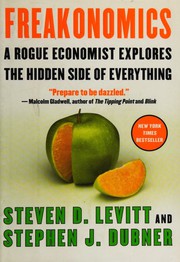
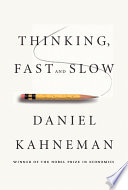
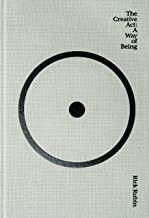
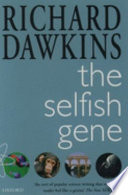
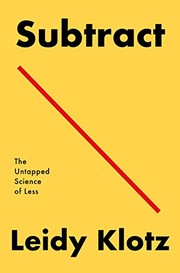

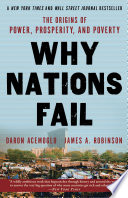
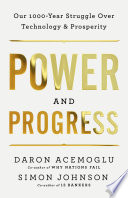

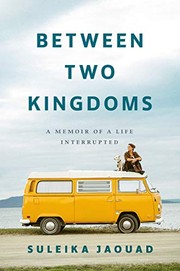
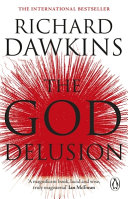
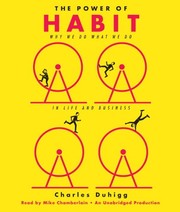
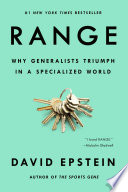
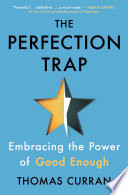
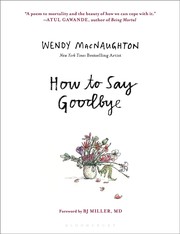
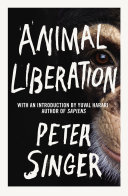
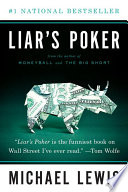
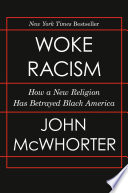
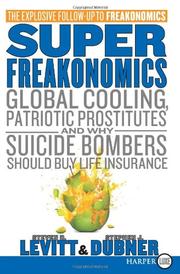
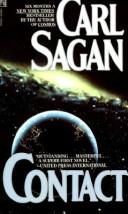
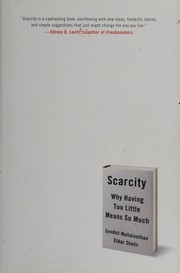
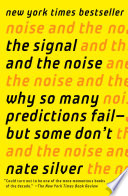
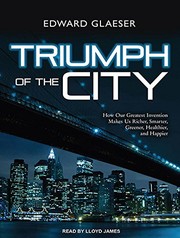

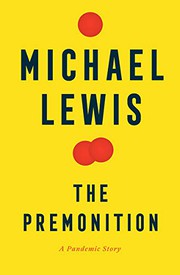
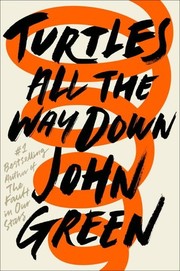

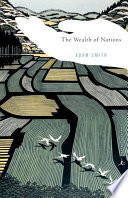
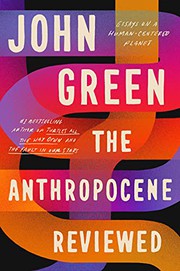
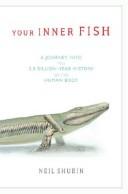
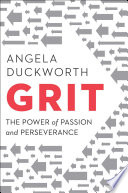
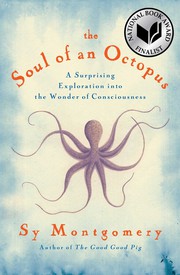
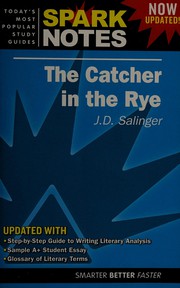
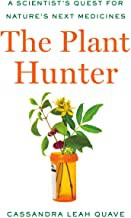
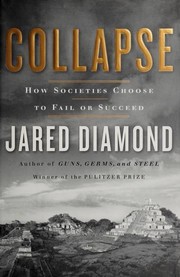
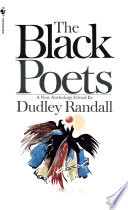
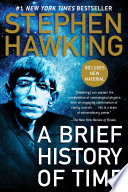

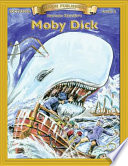
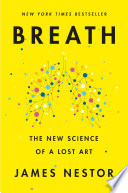

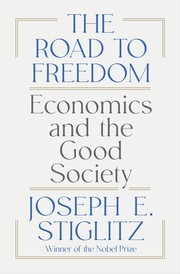
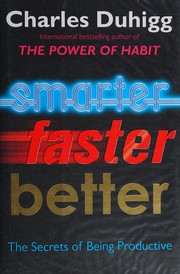
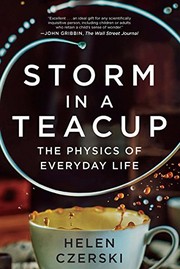
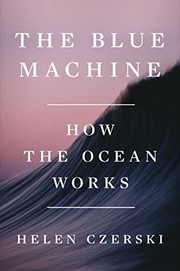



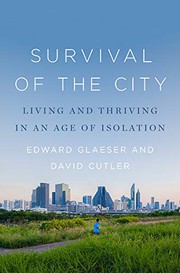
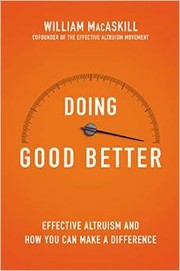



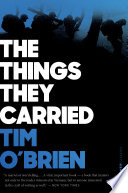
![Black Boy [Seventy-fifth Anniversary Edition] Cover](https://mentionedinpodcasts.com/media/books/1e65c866-cc77-7219-ad20-d445b52b35b3.jpg)



